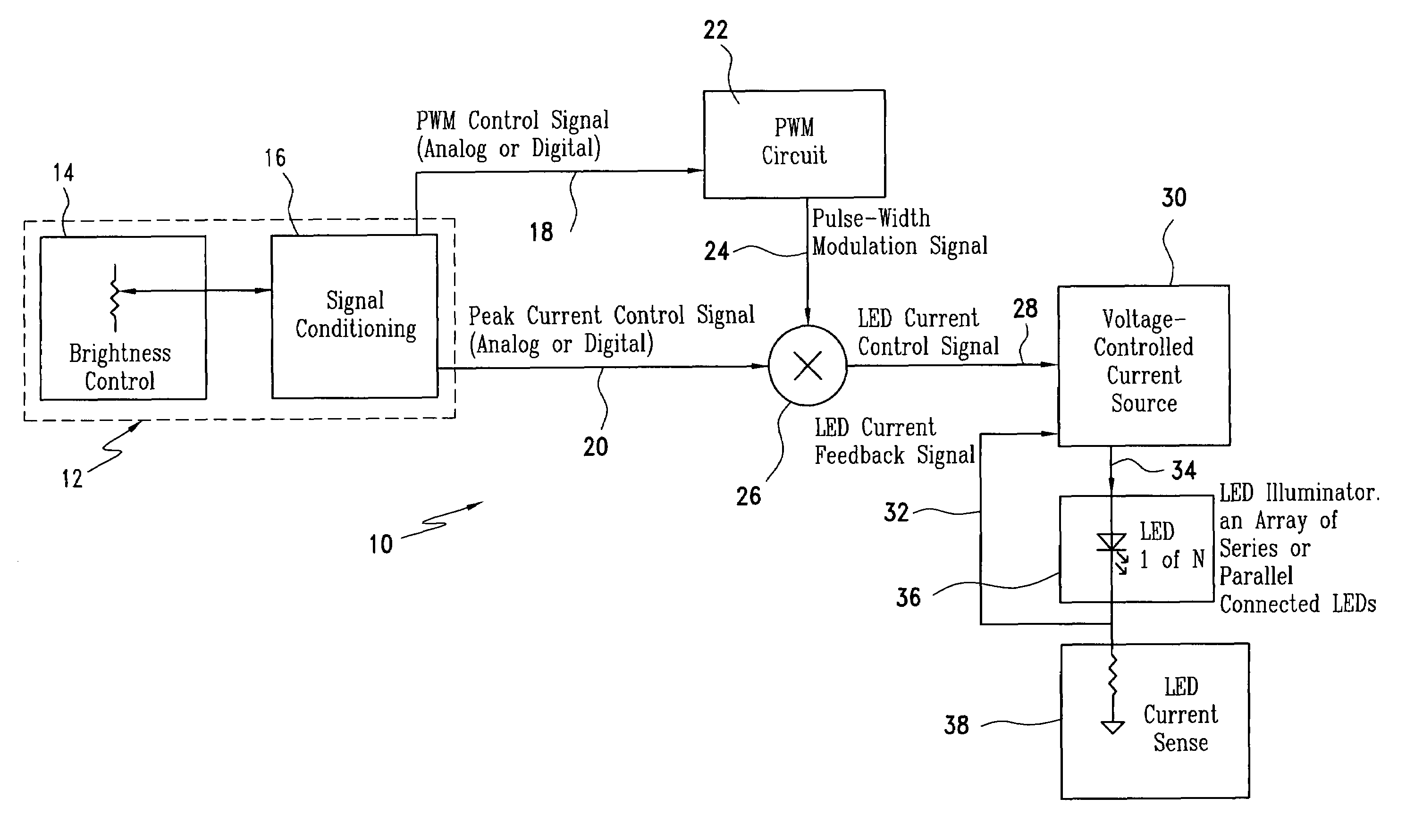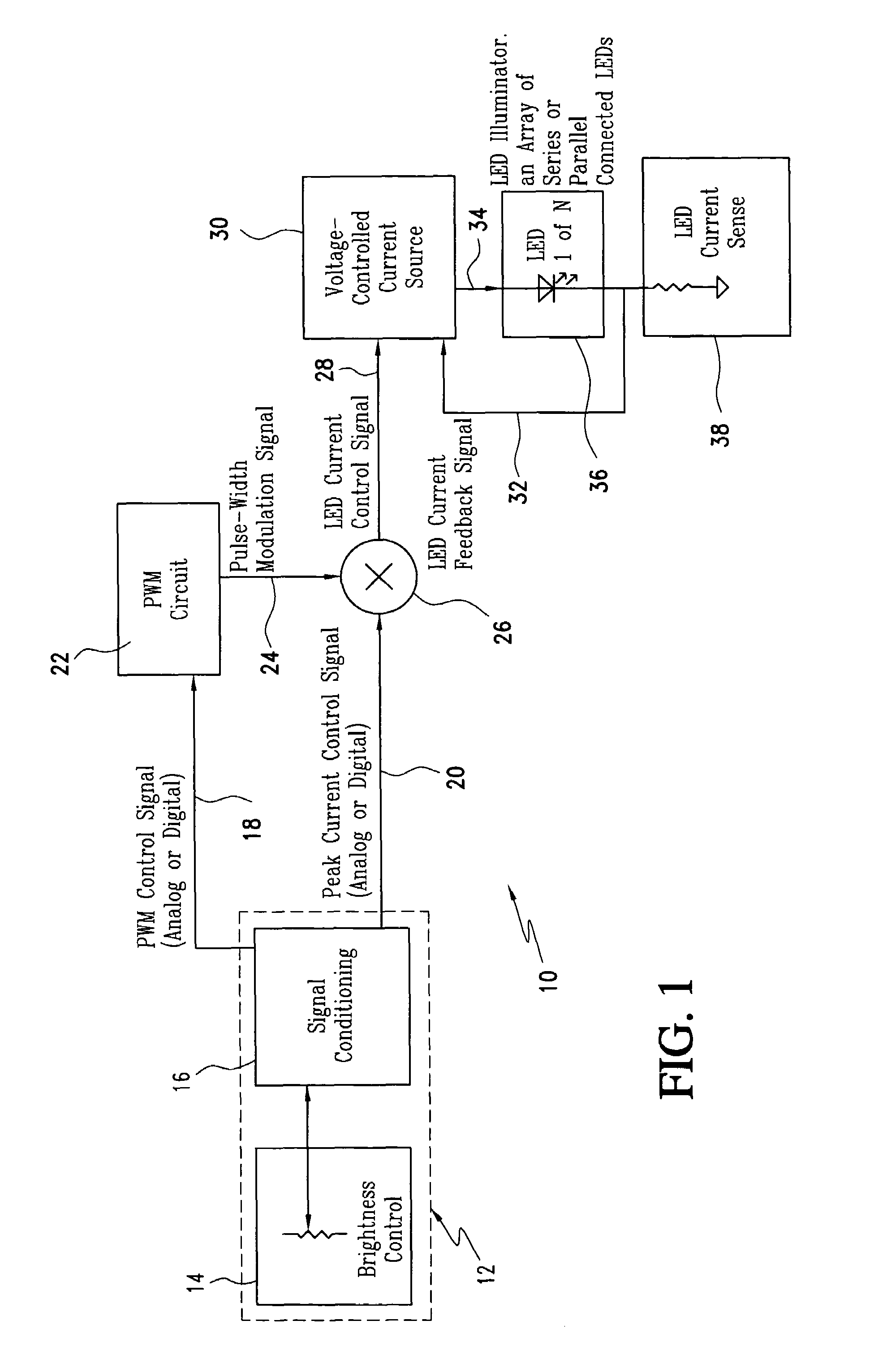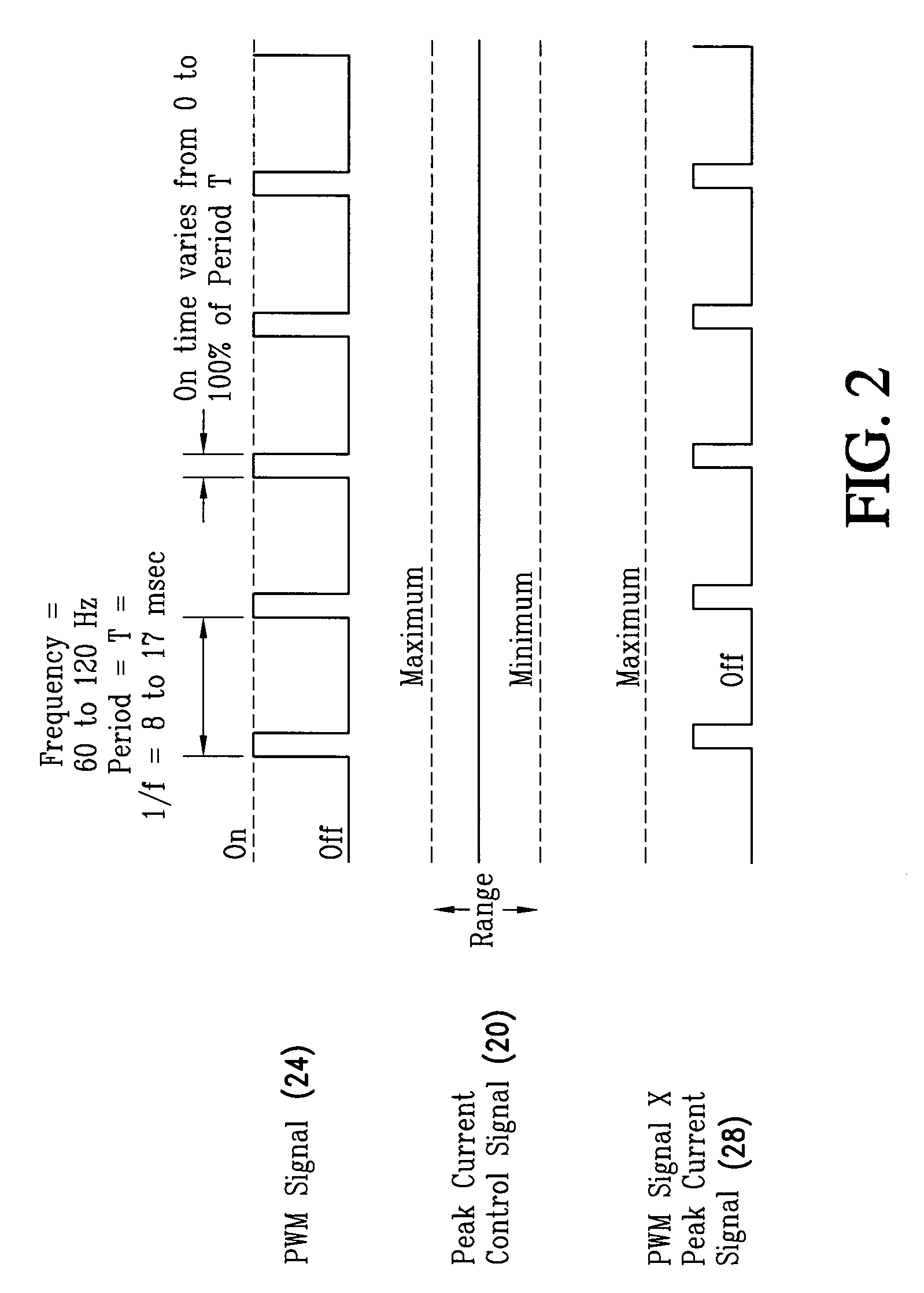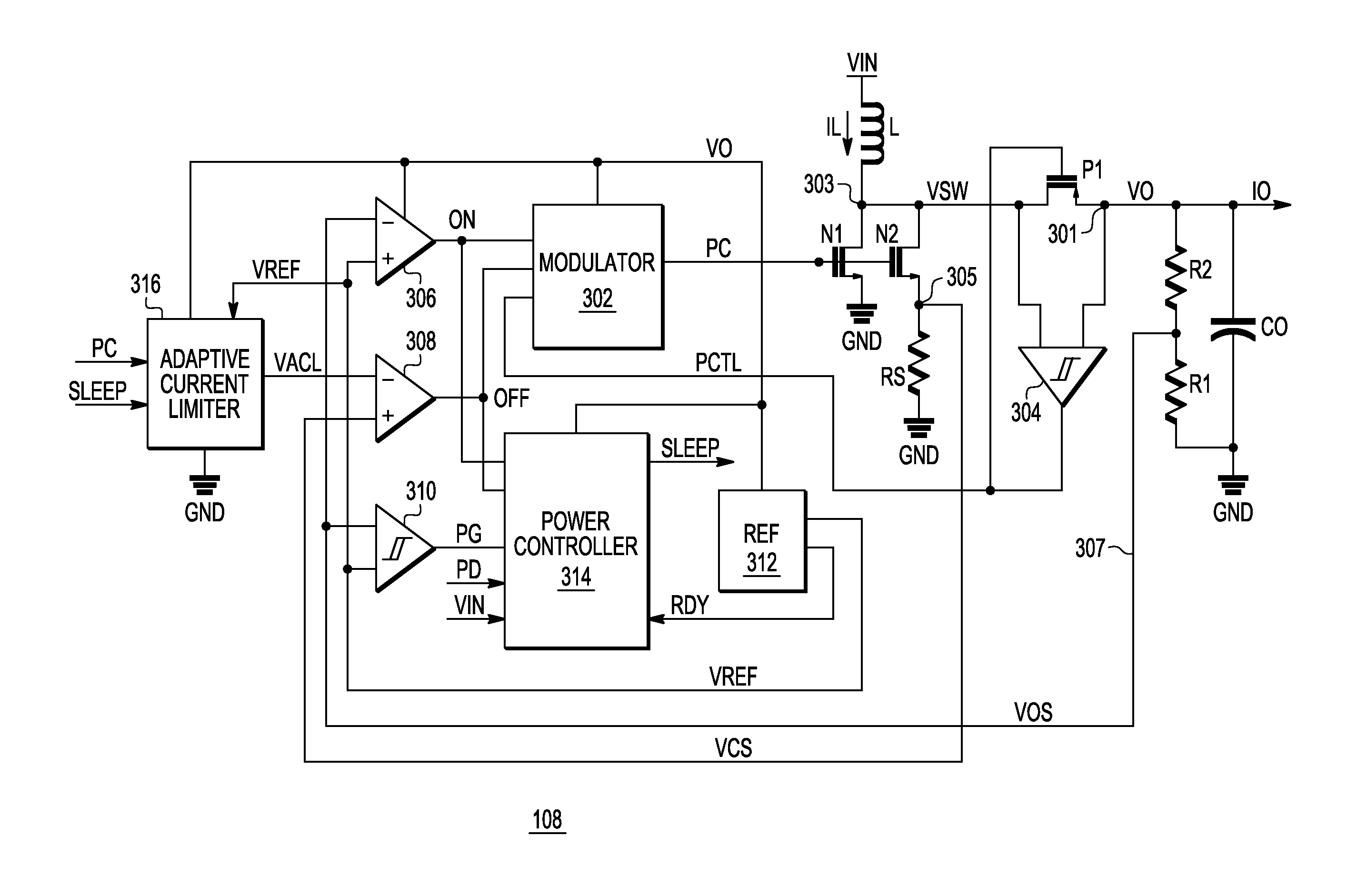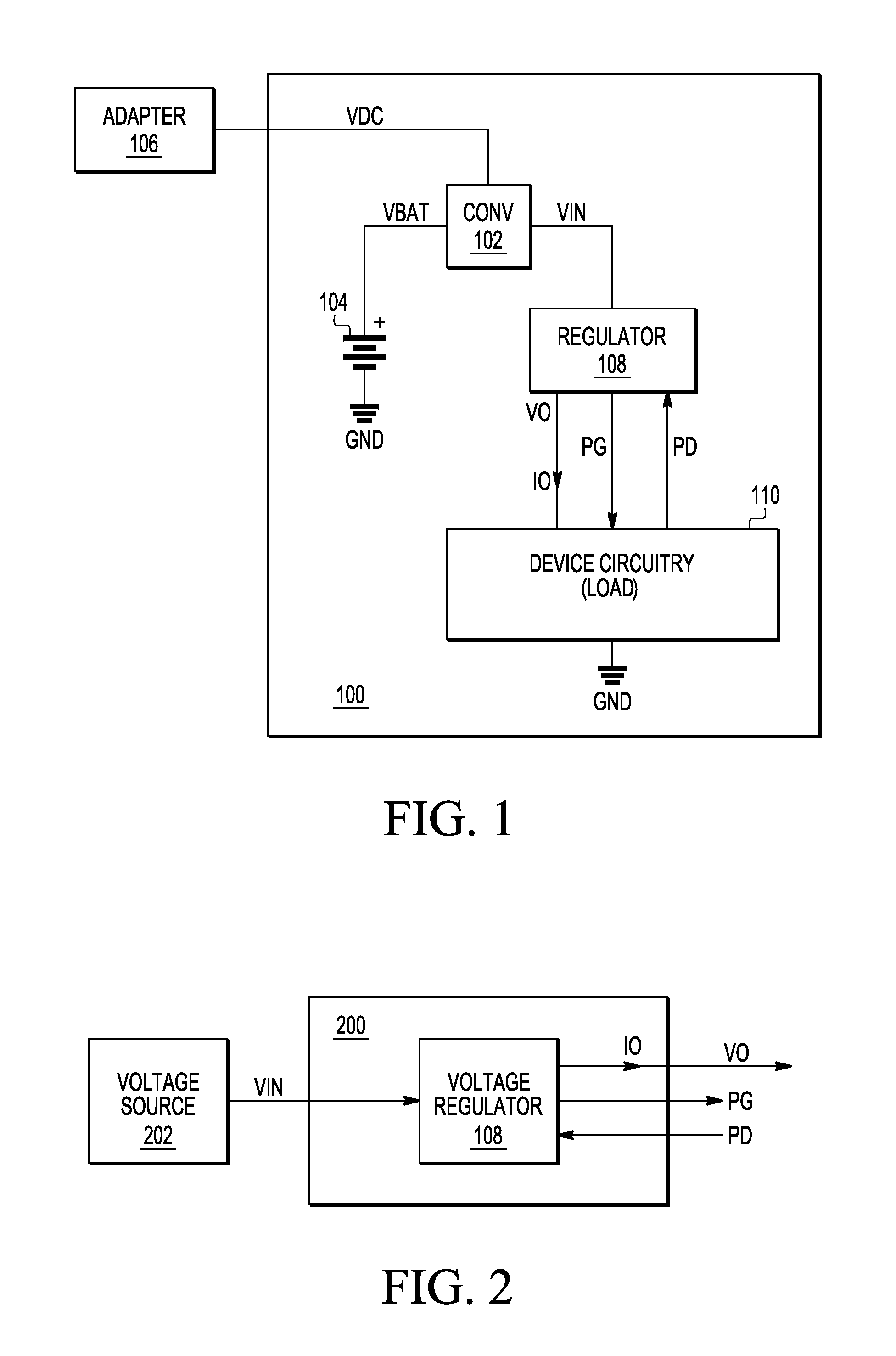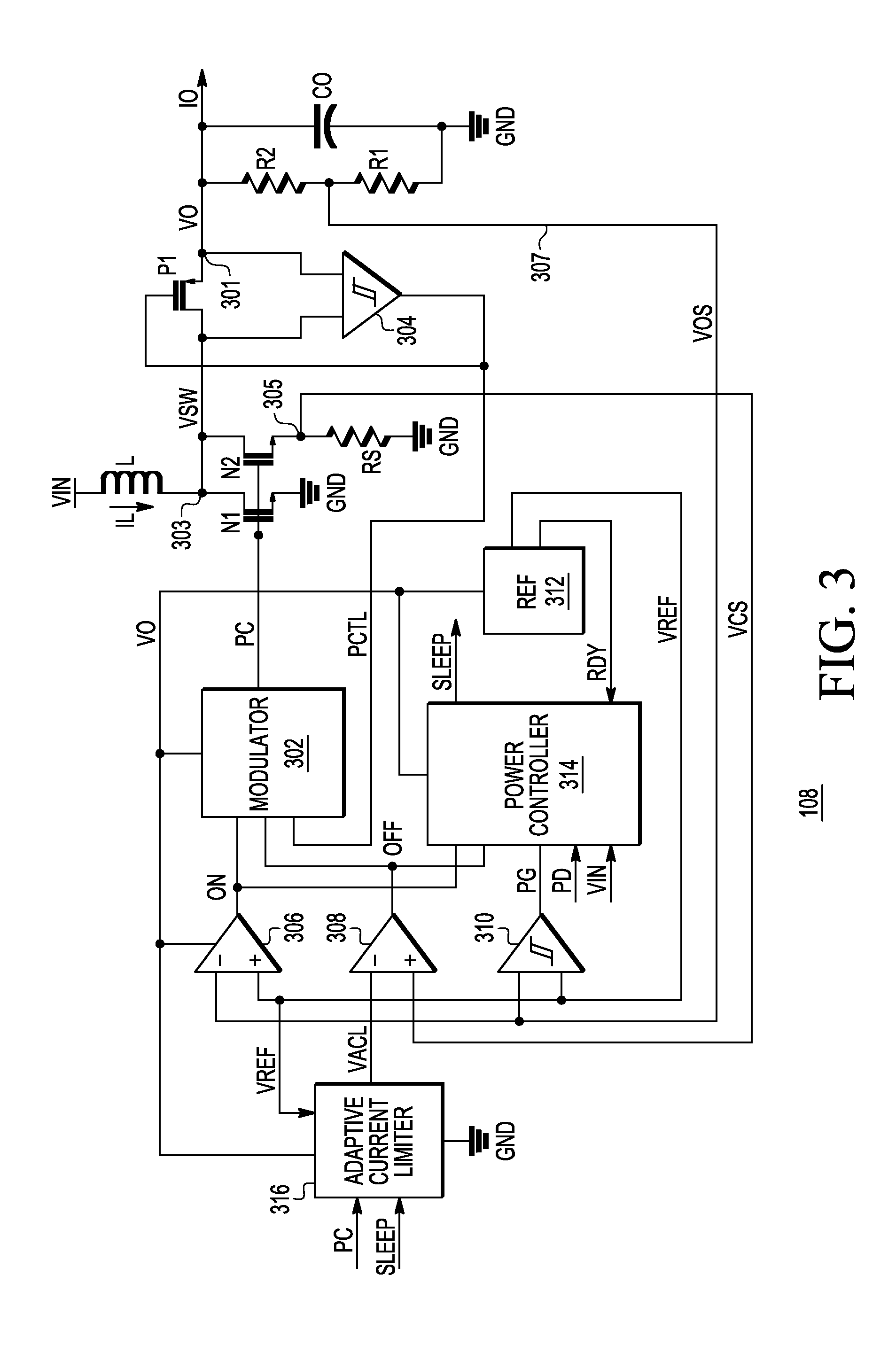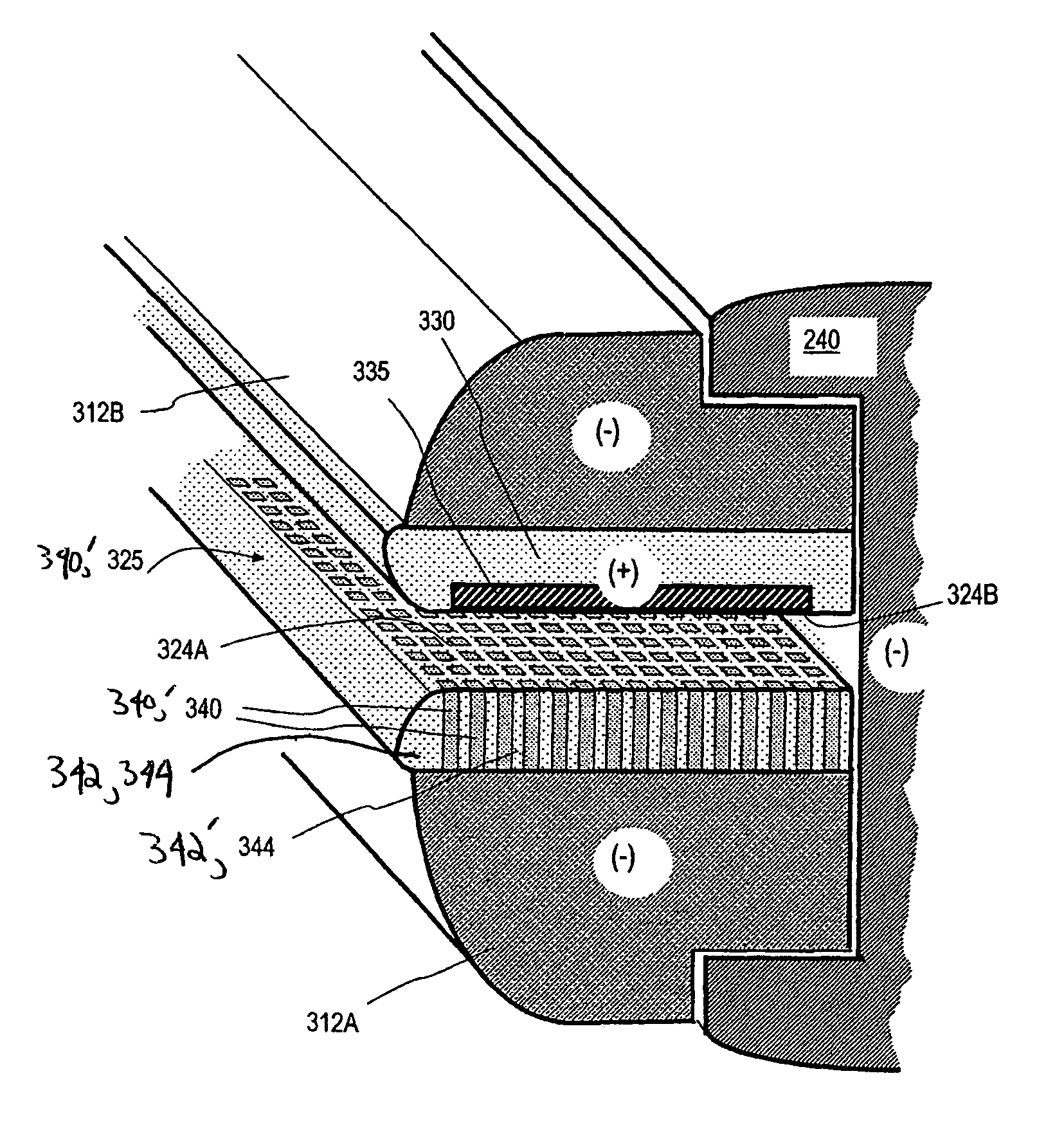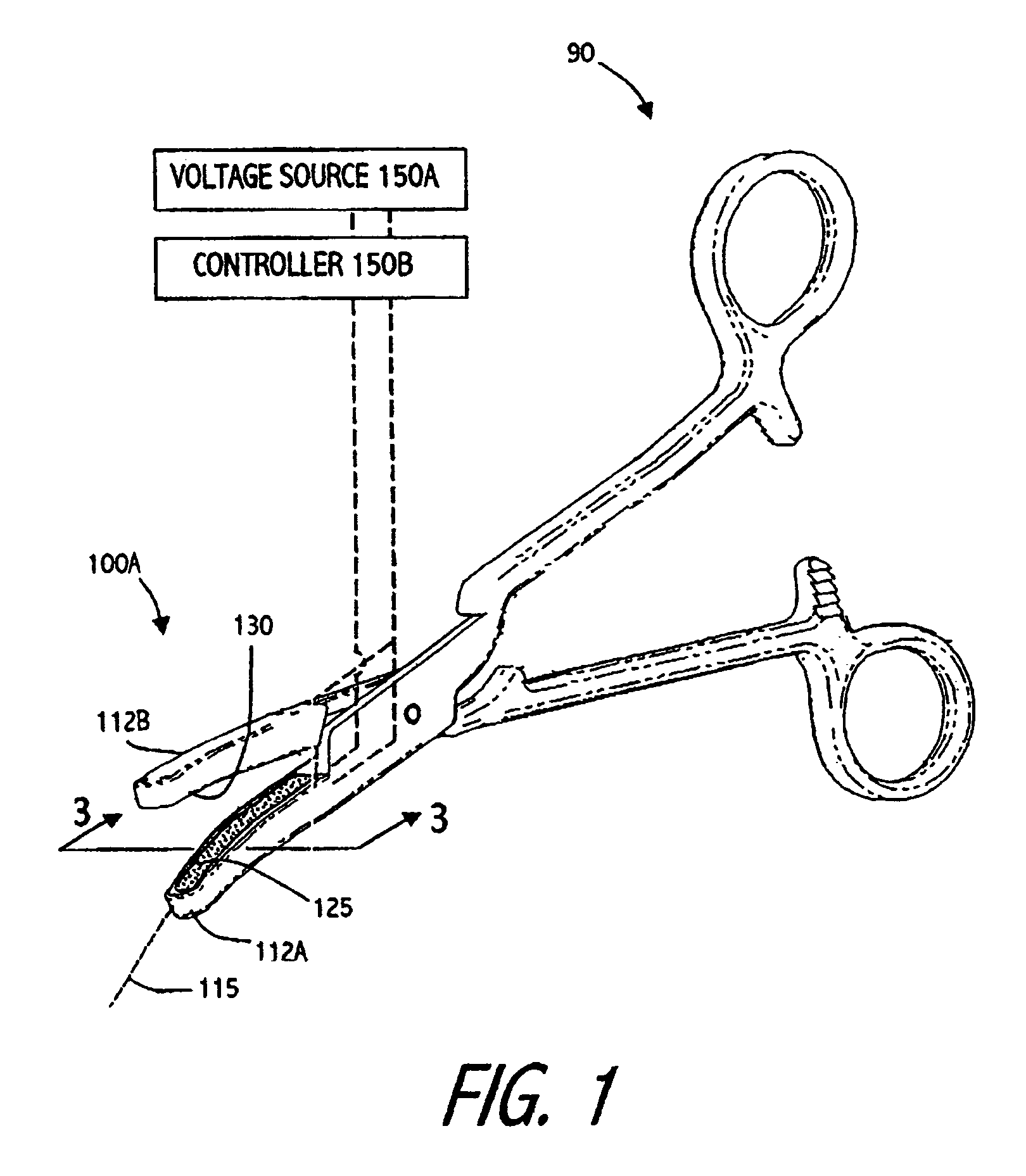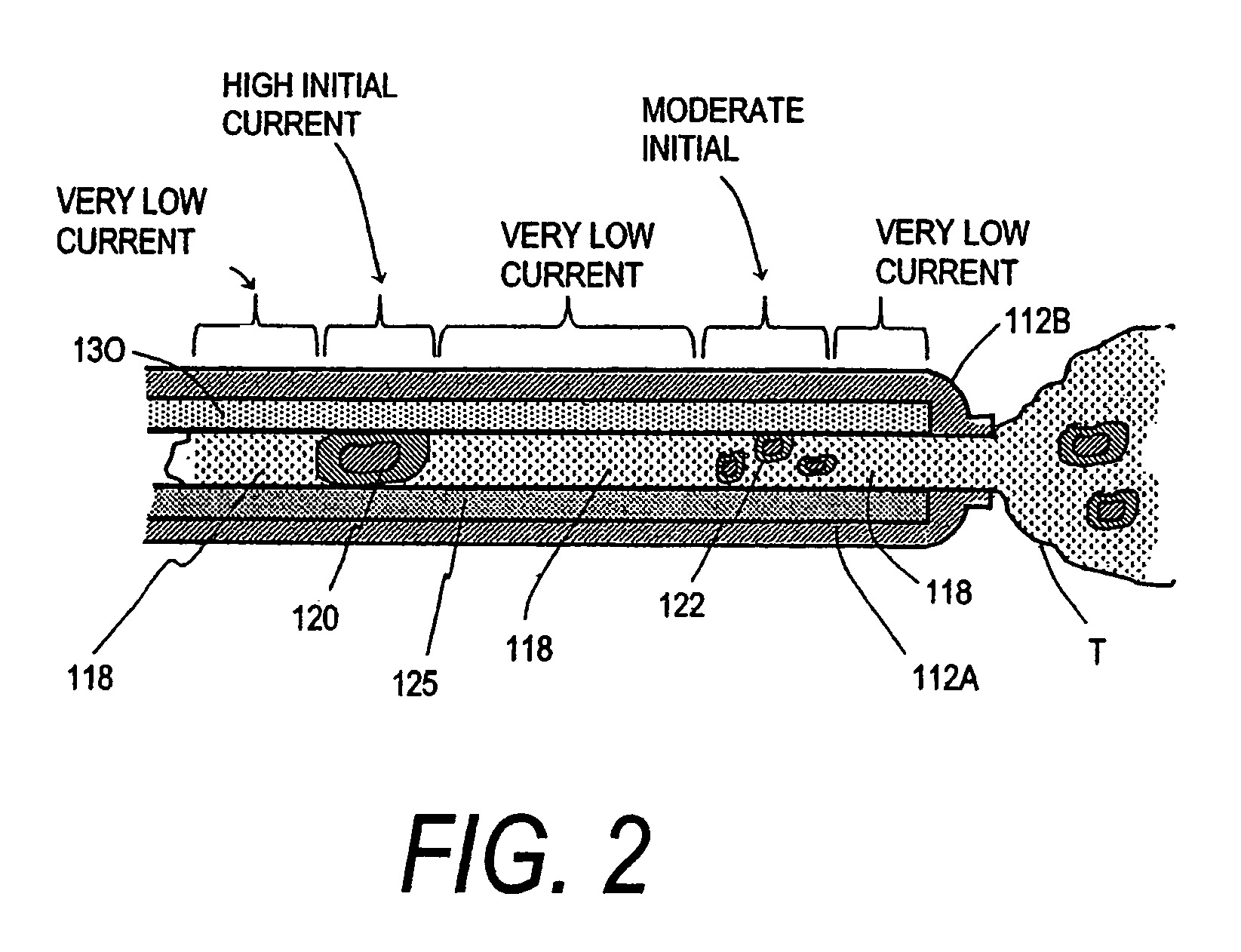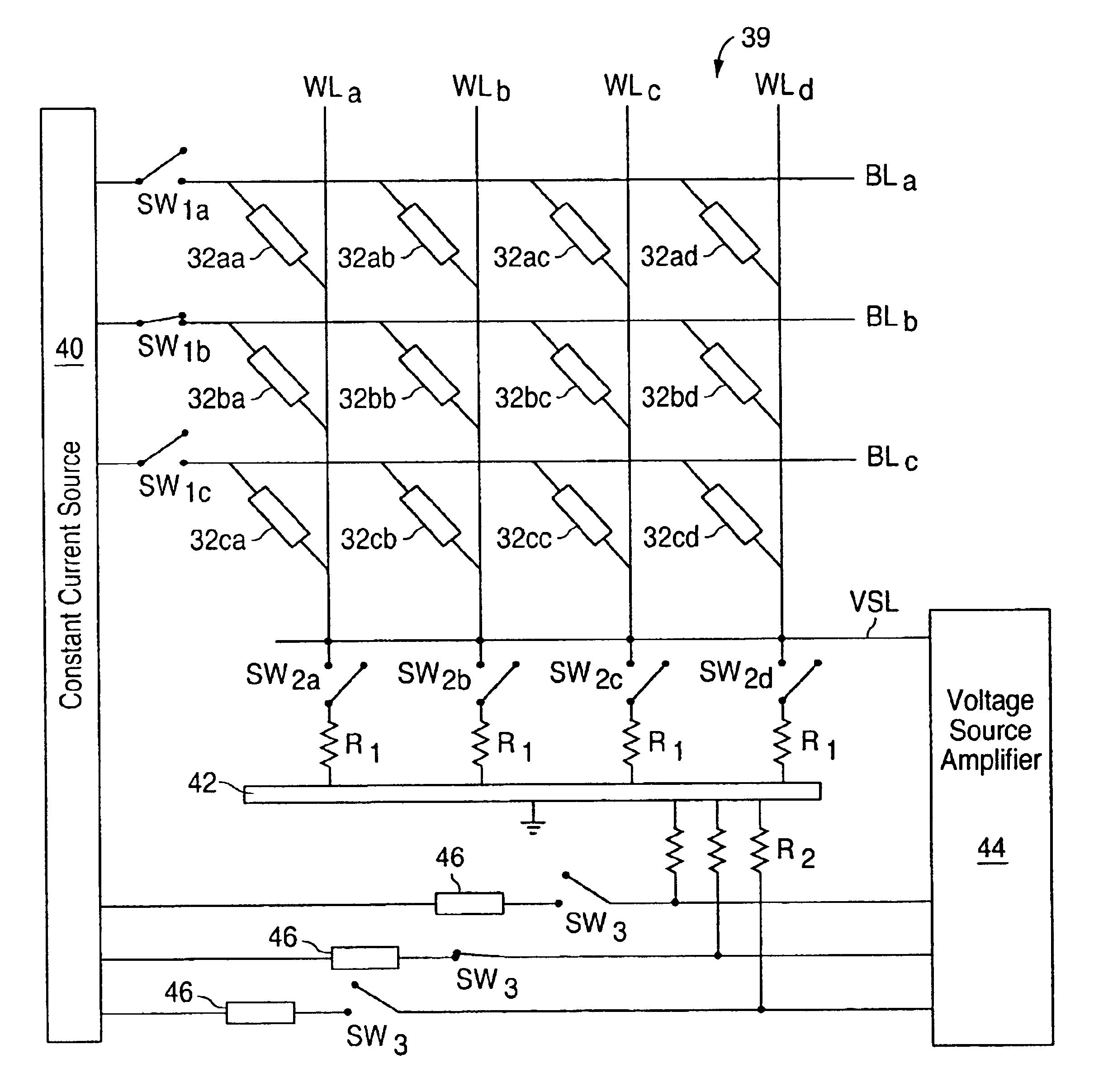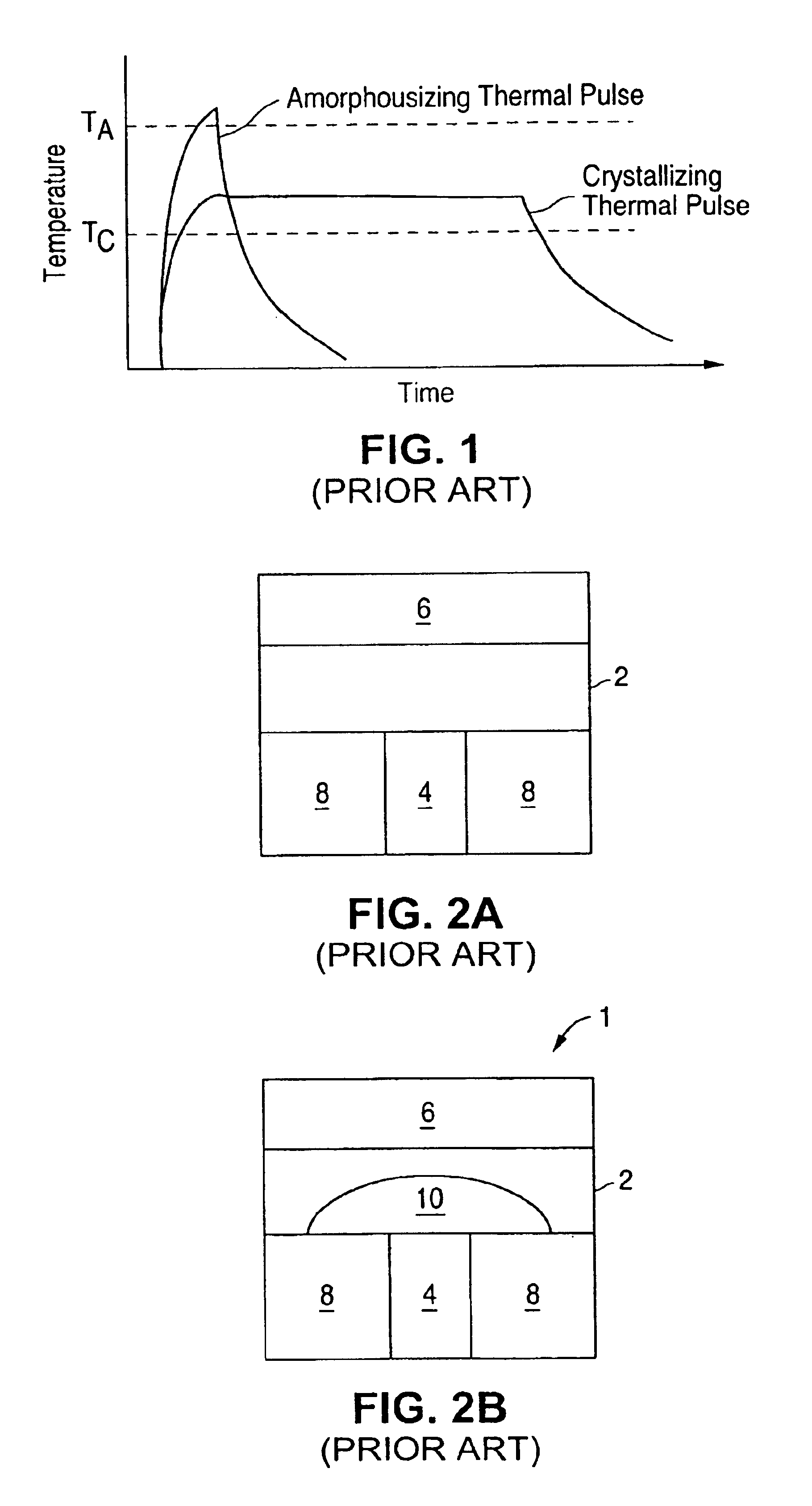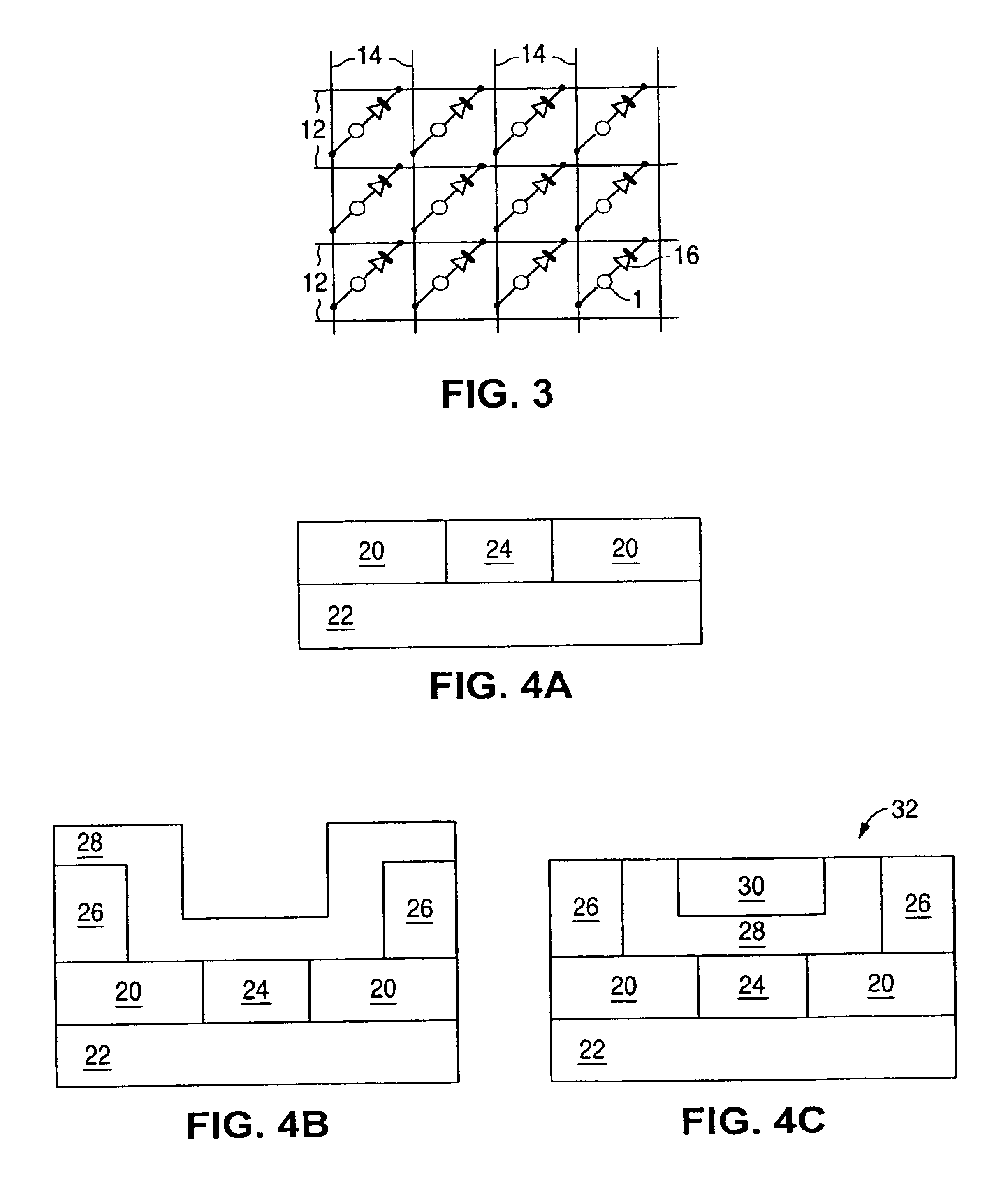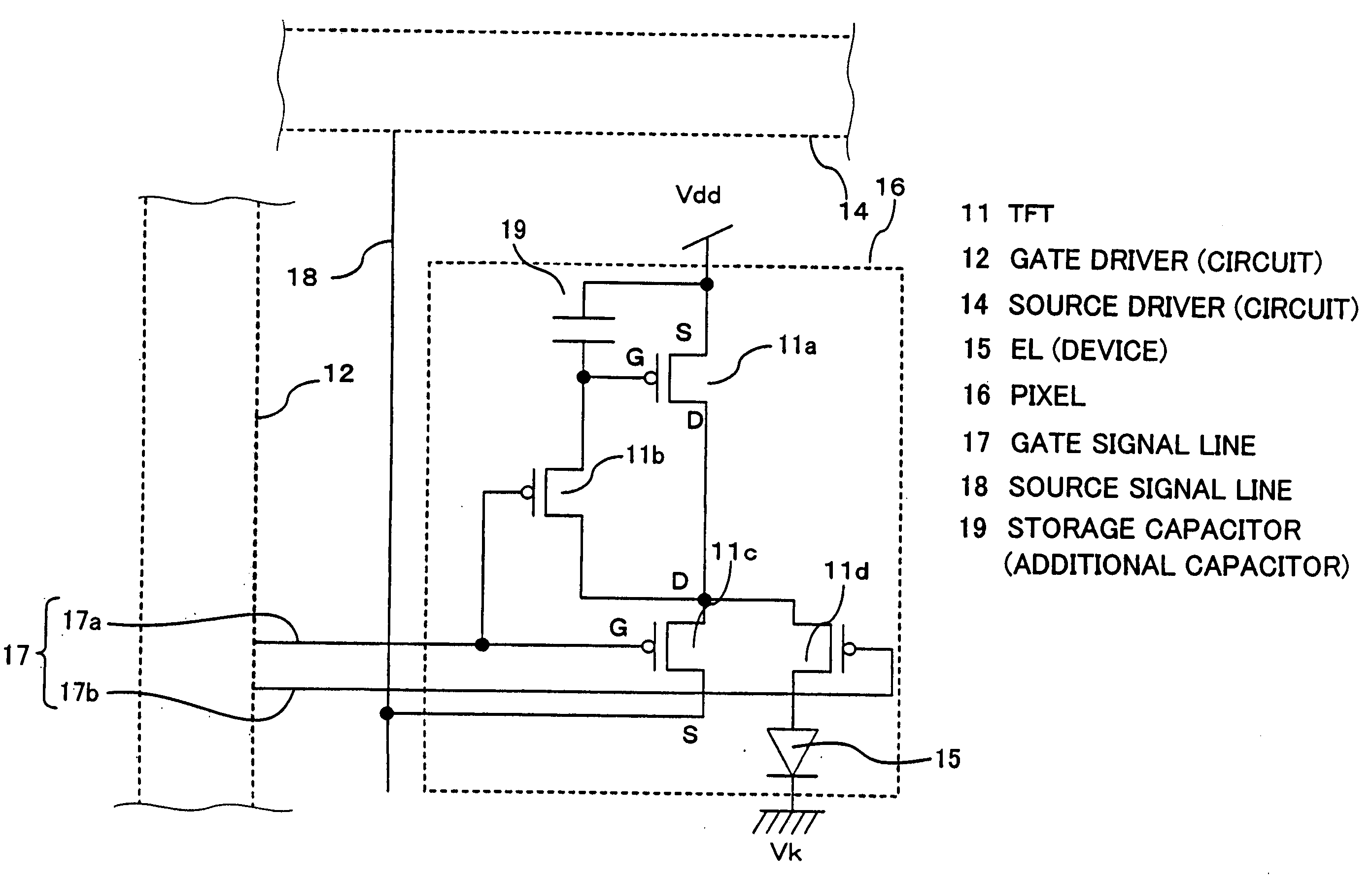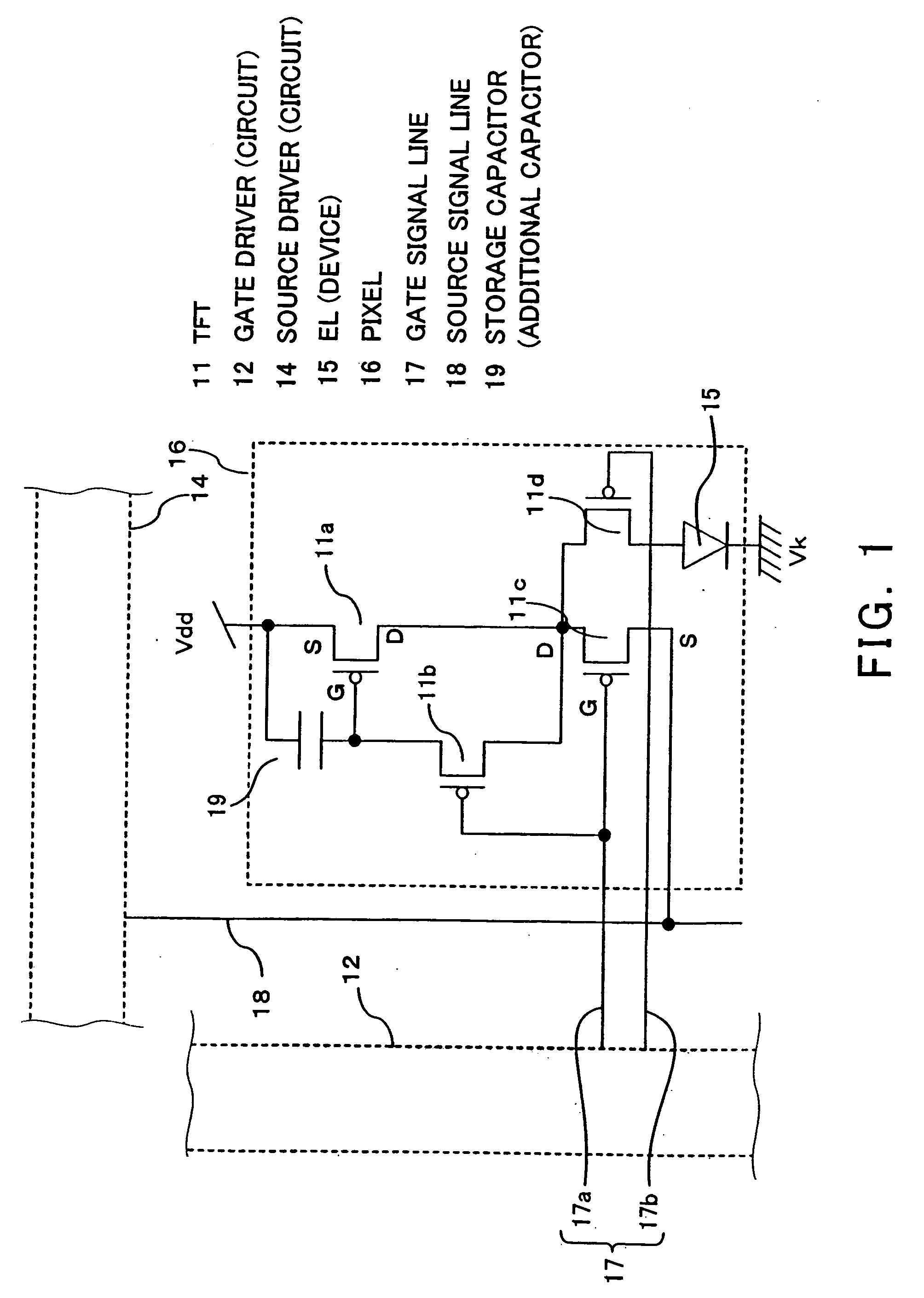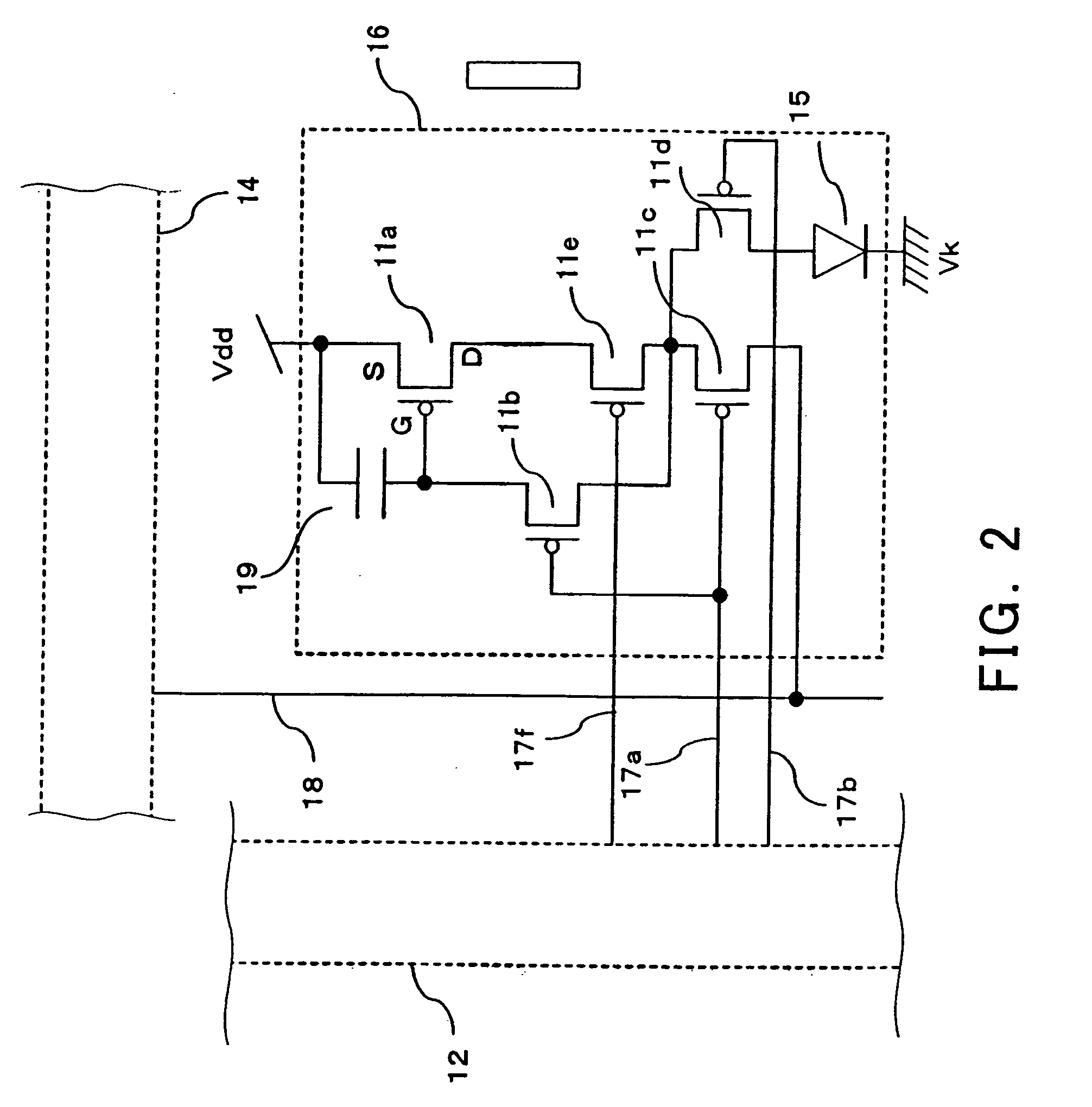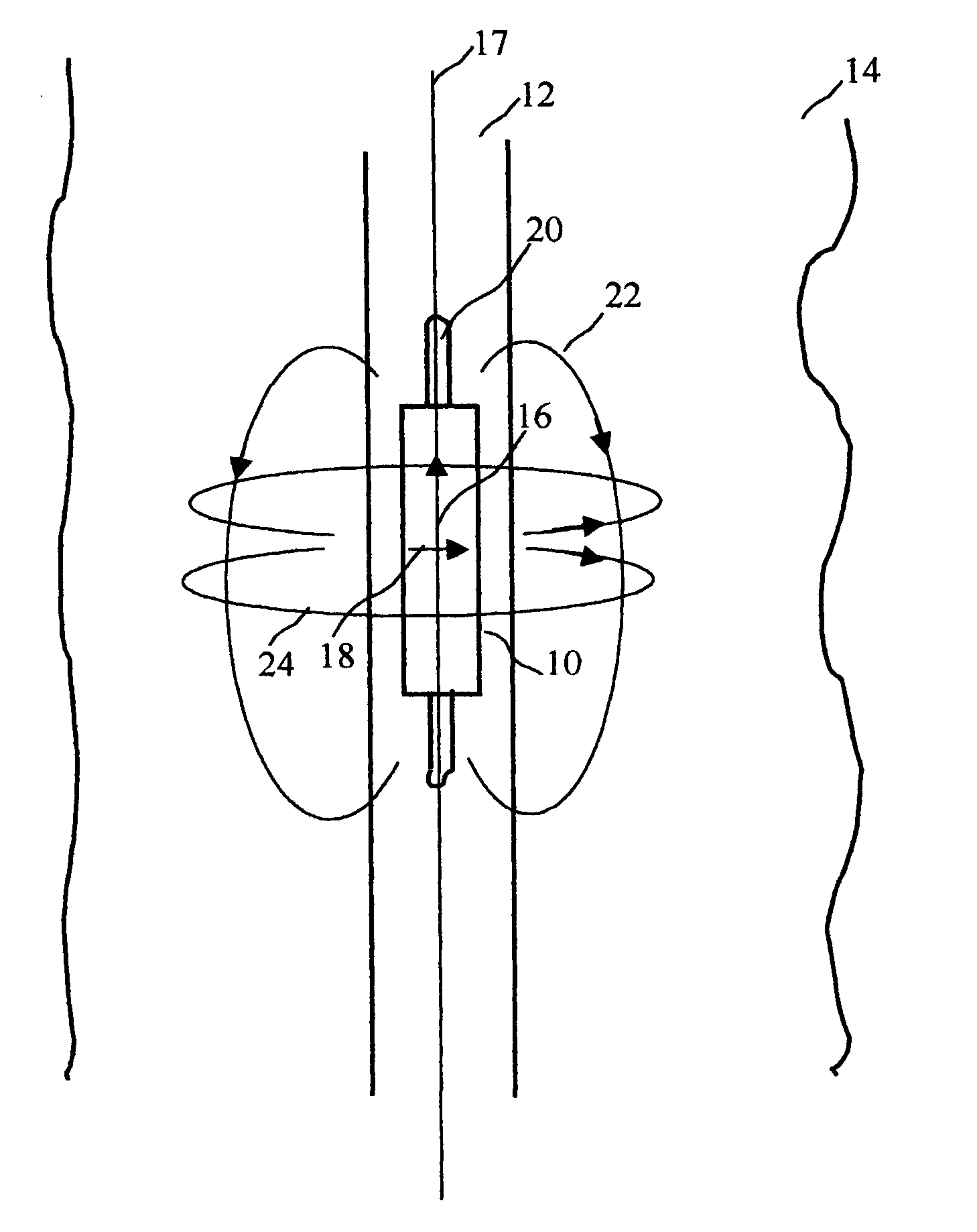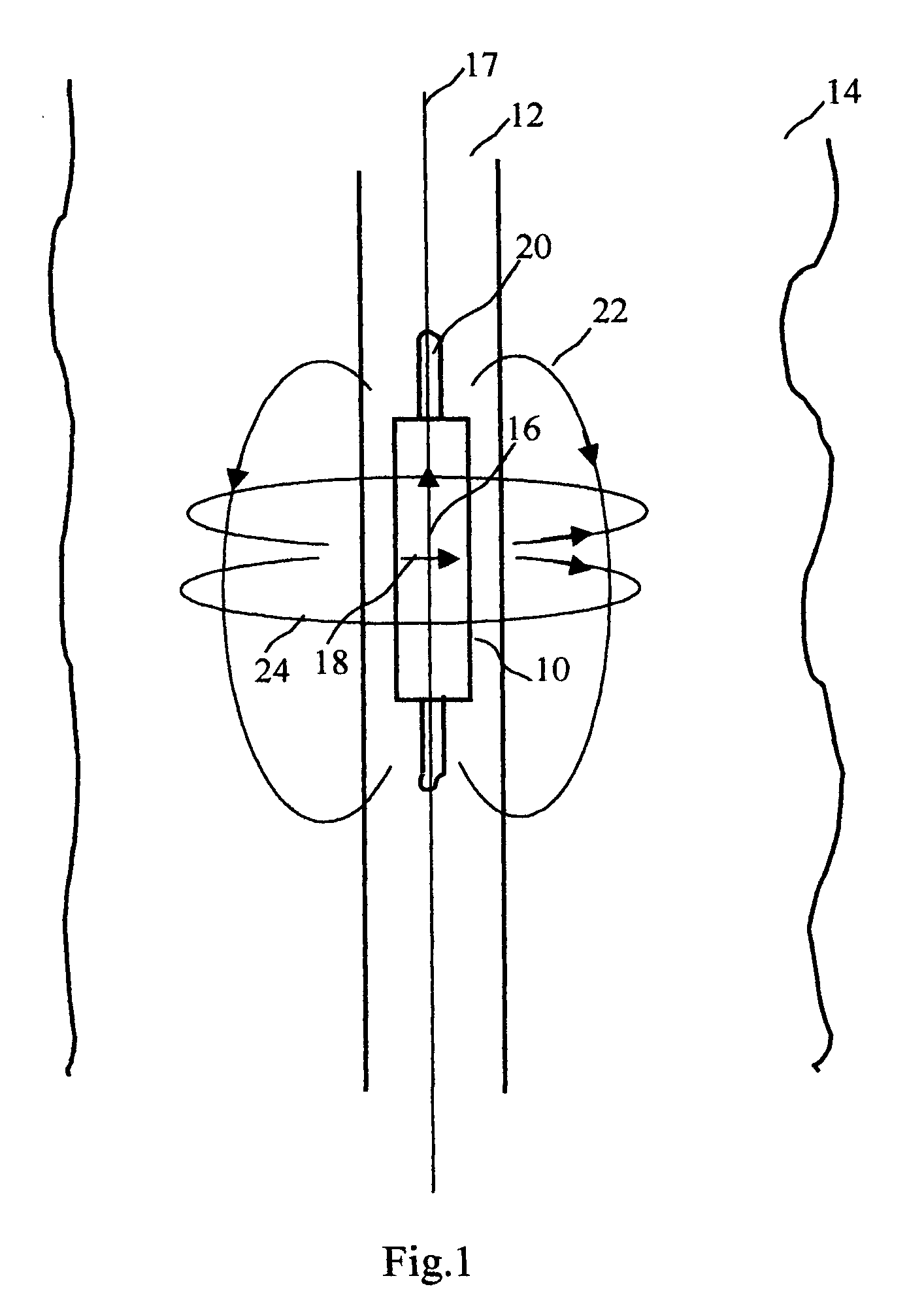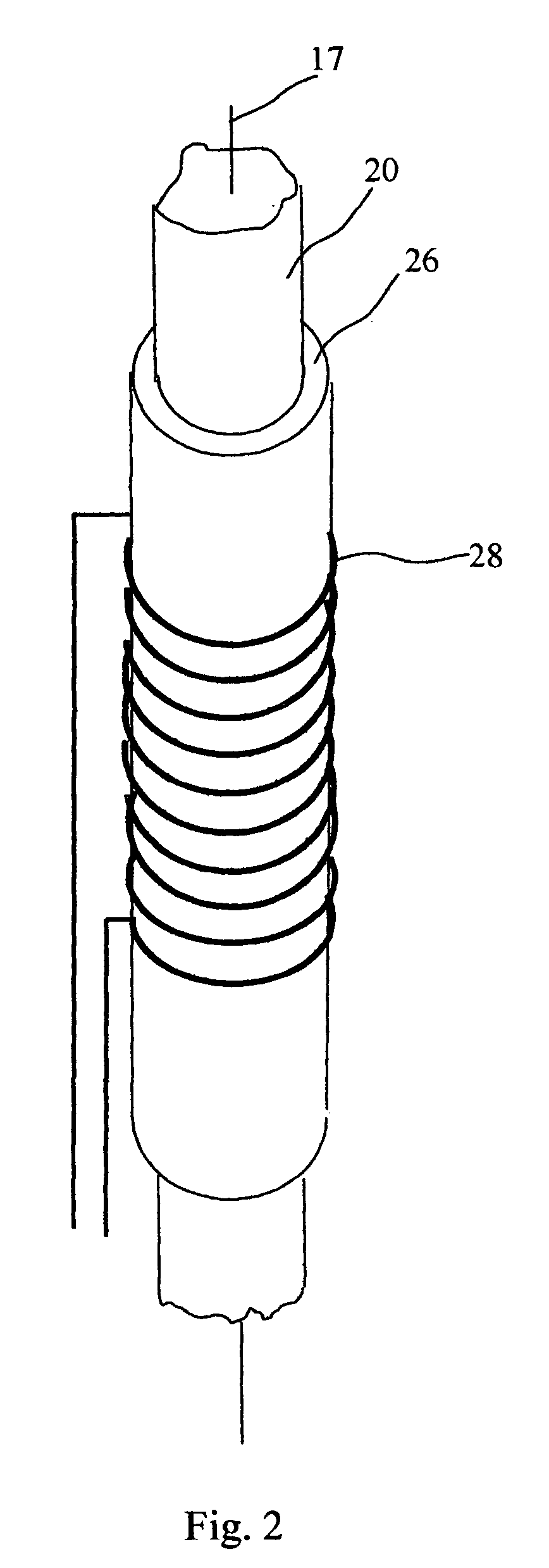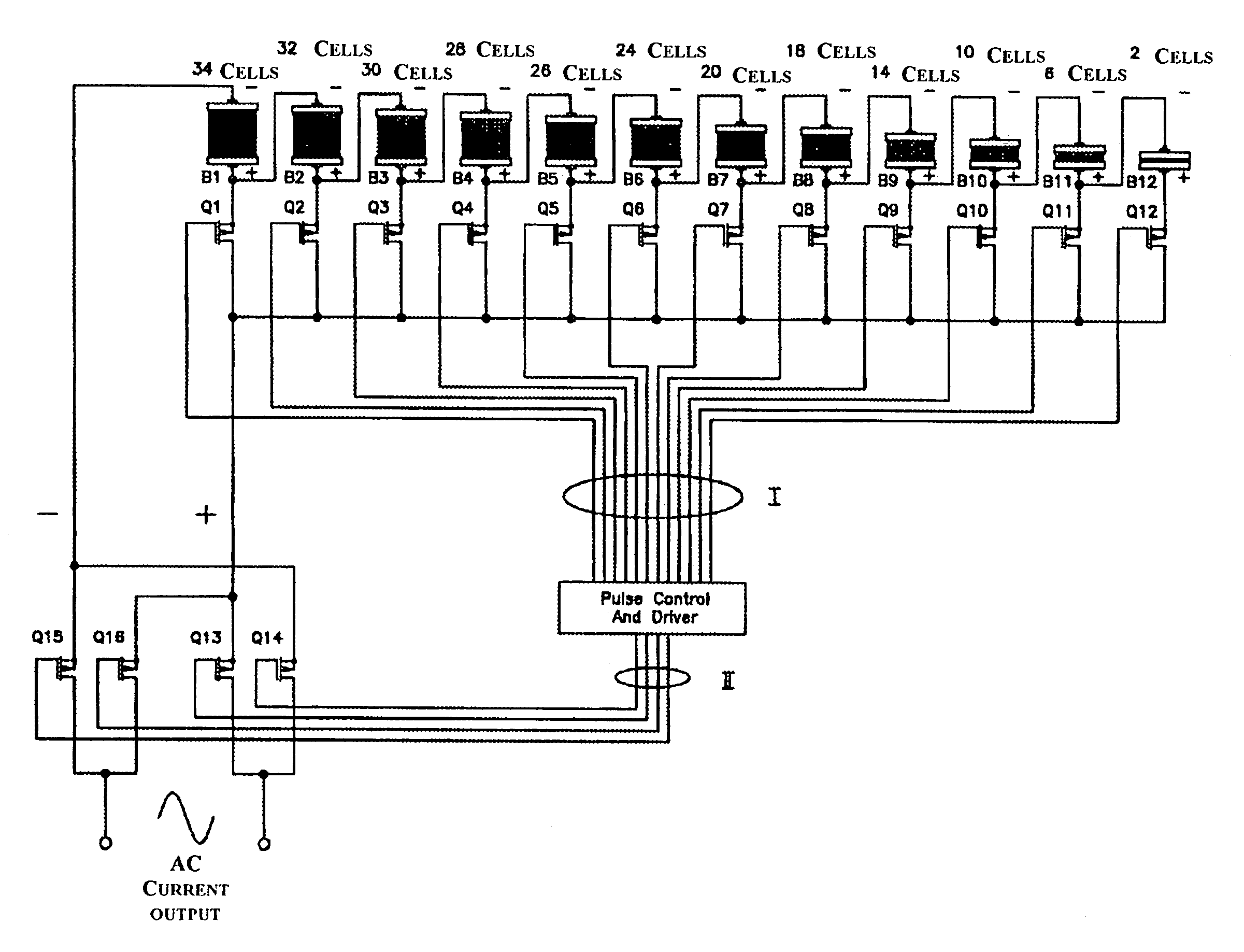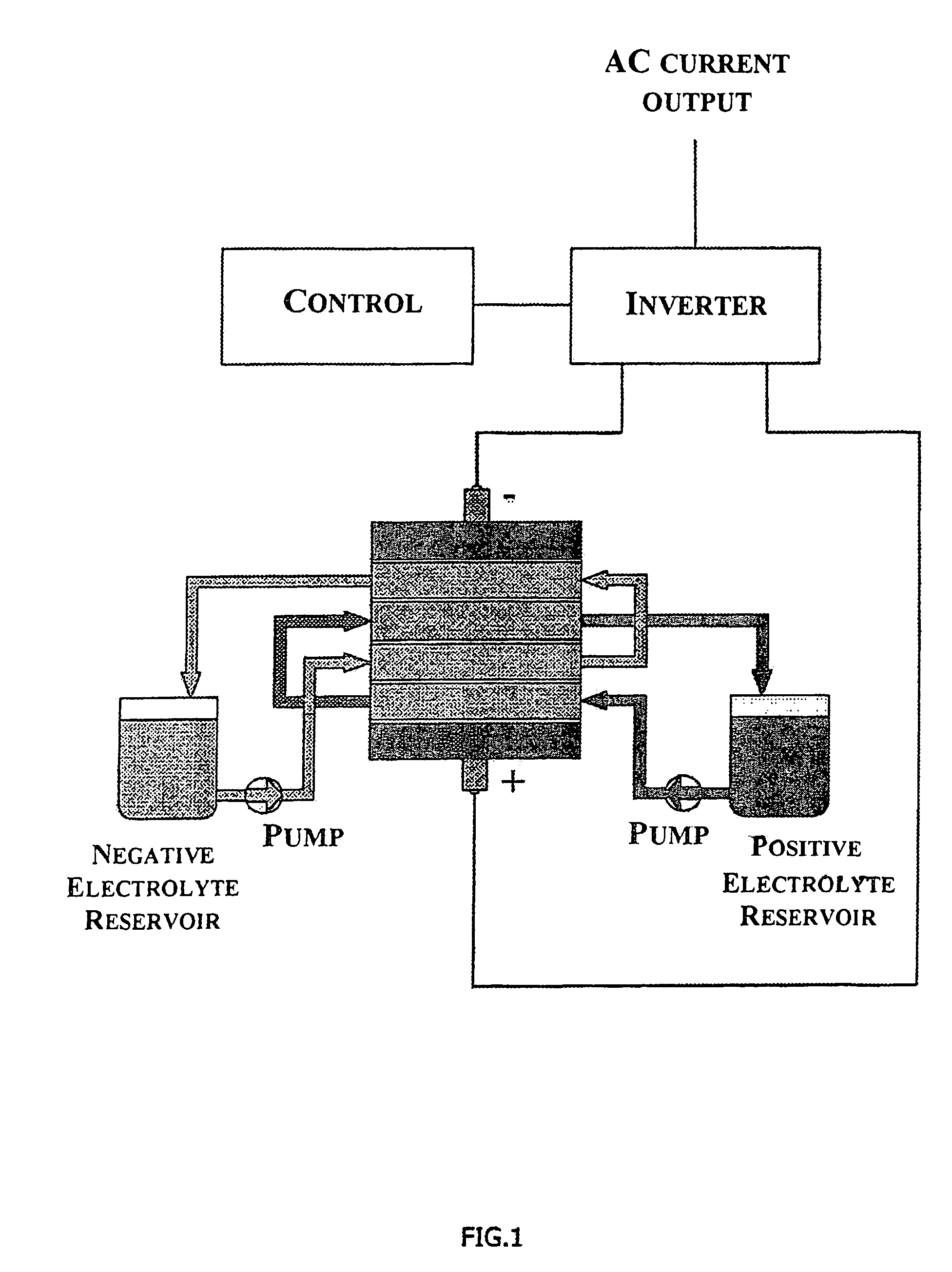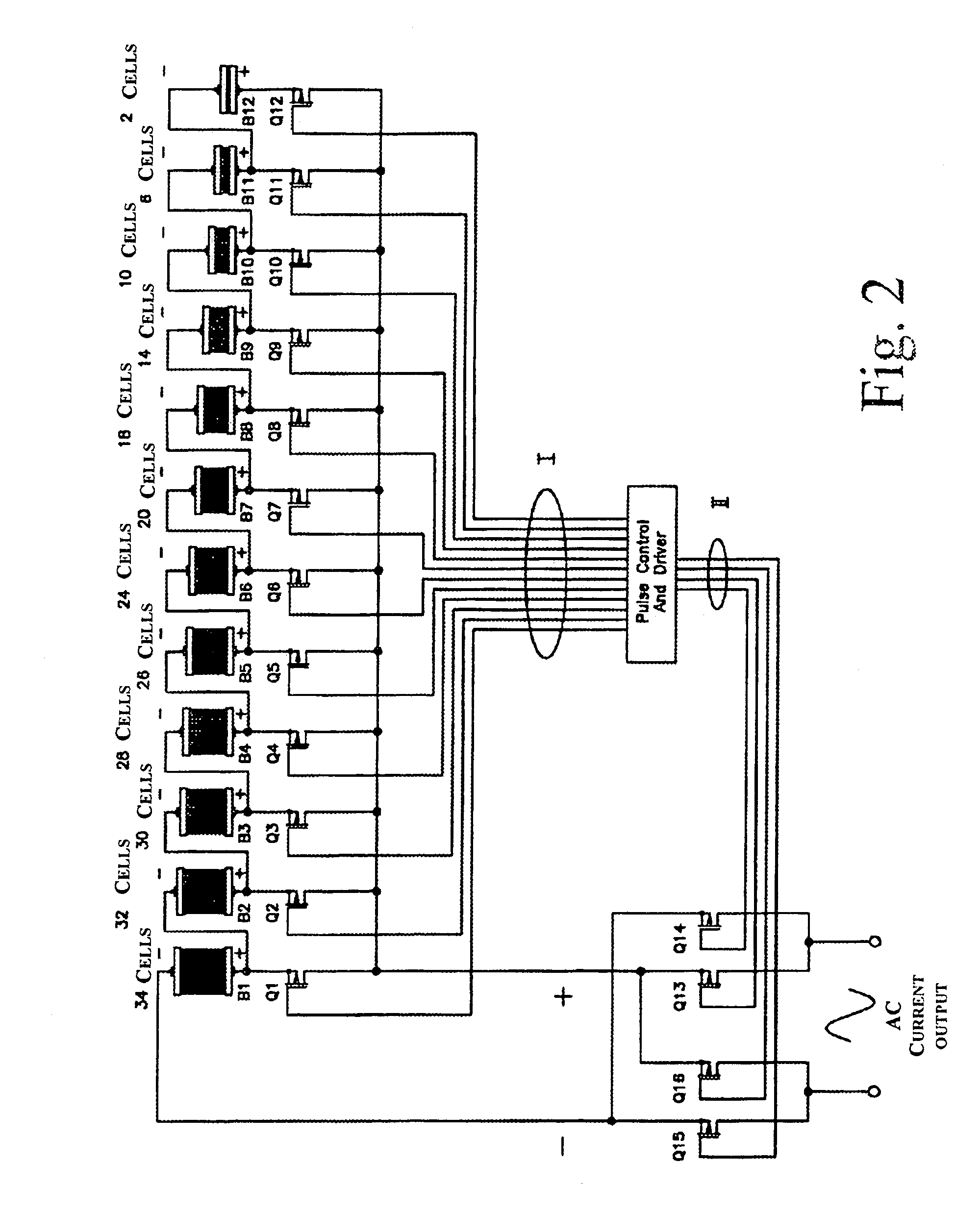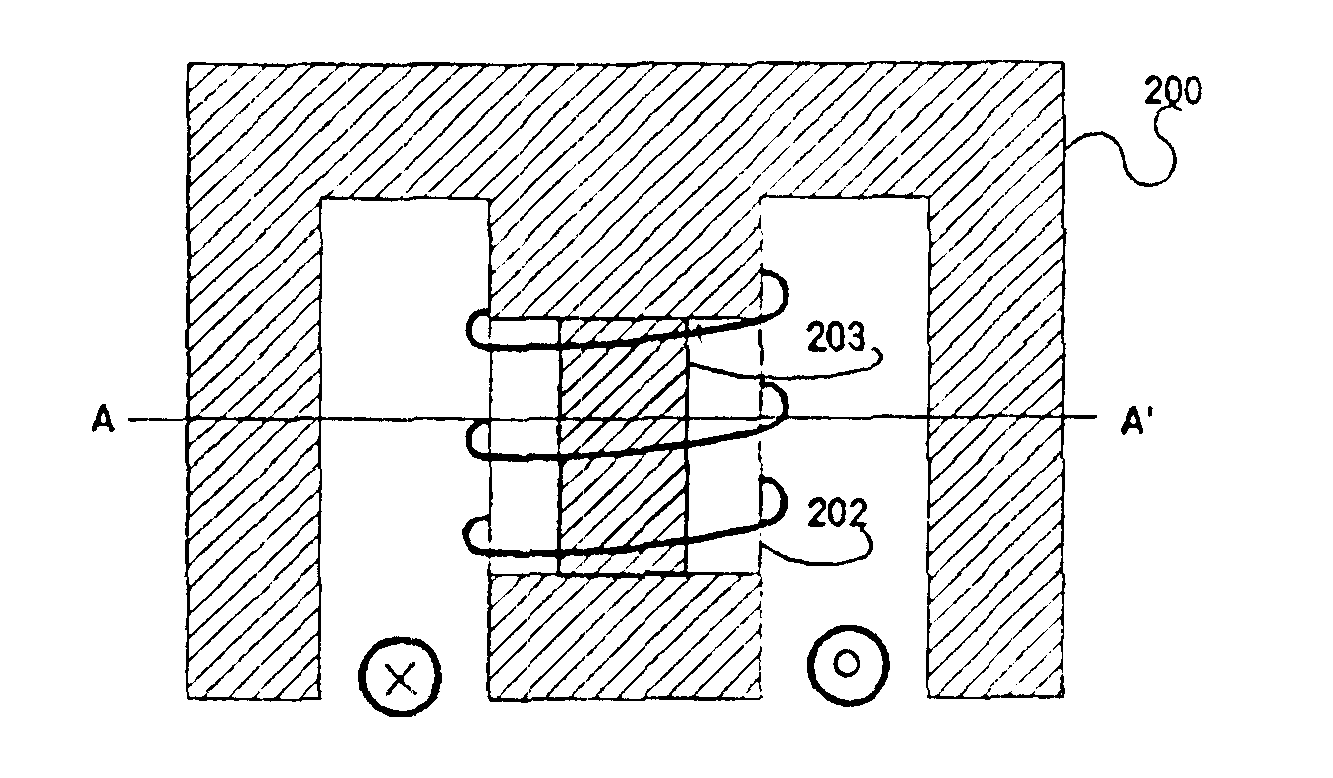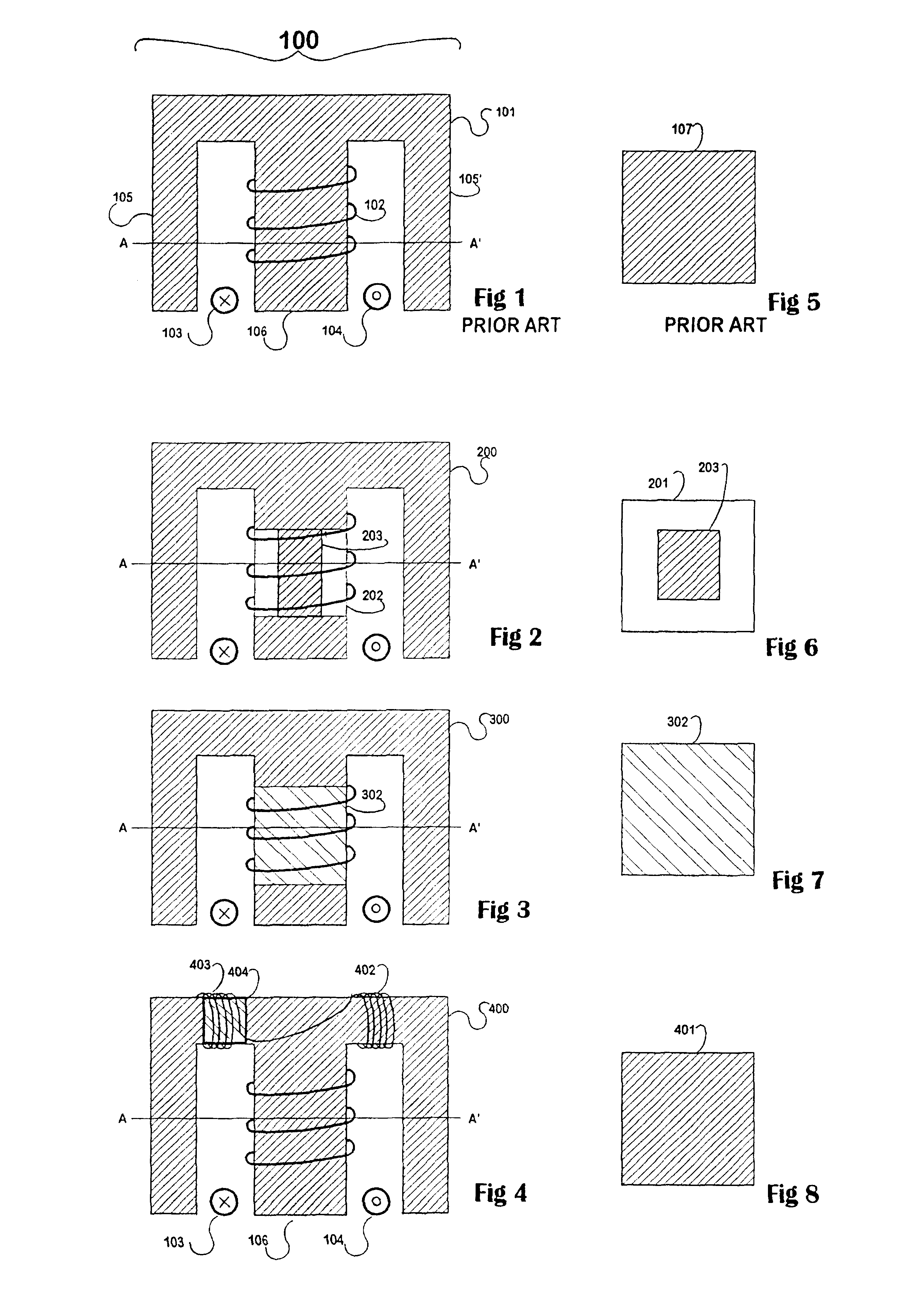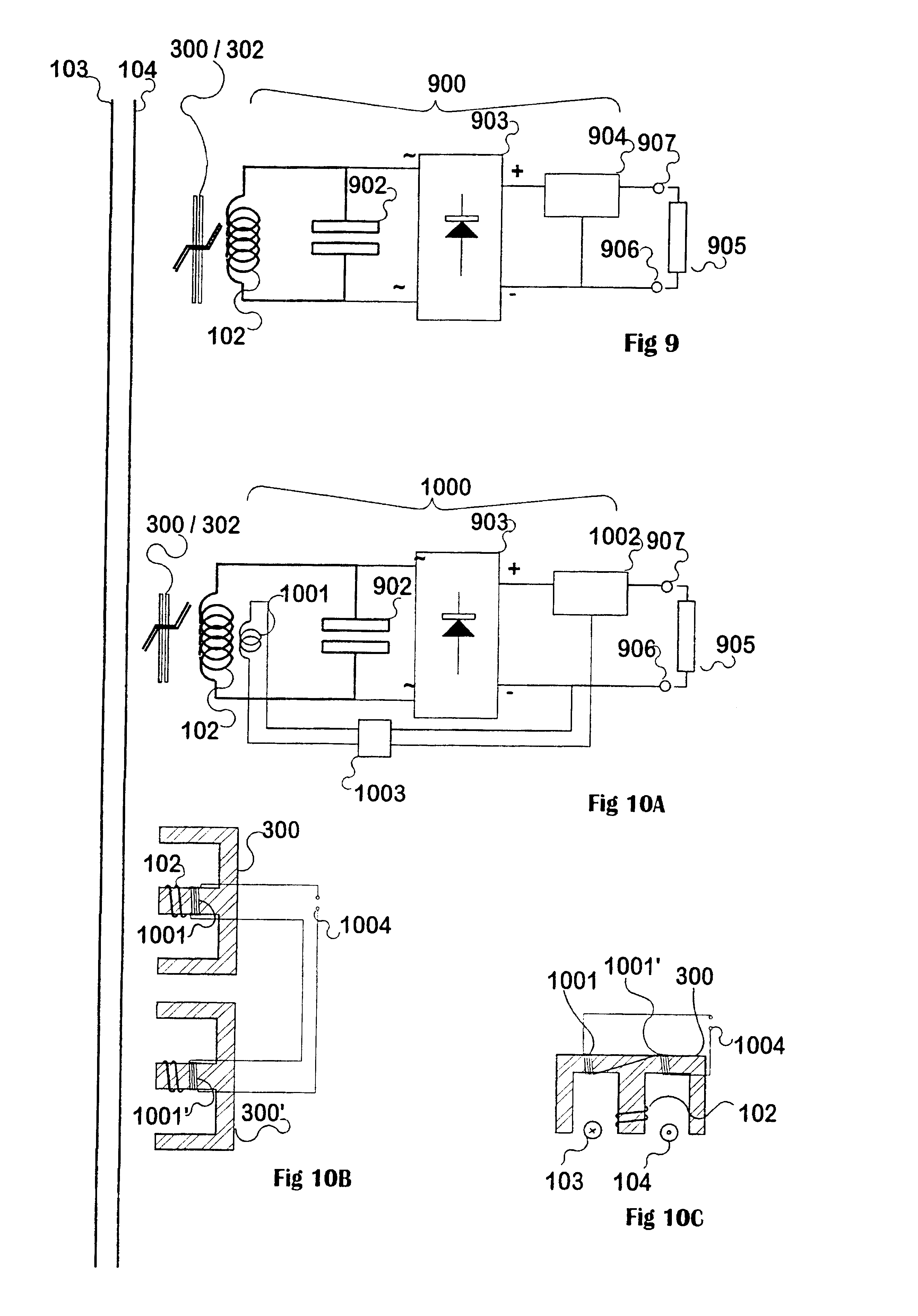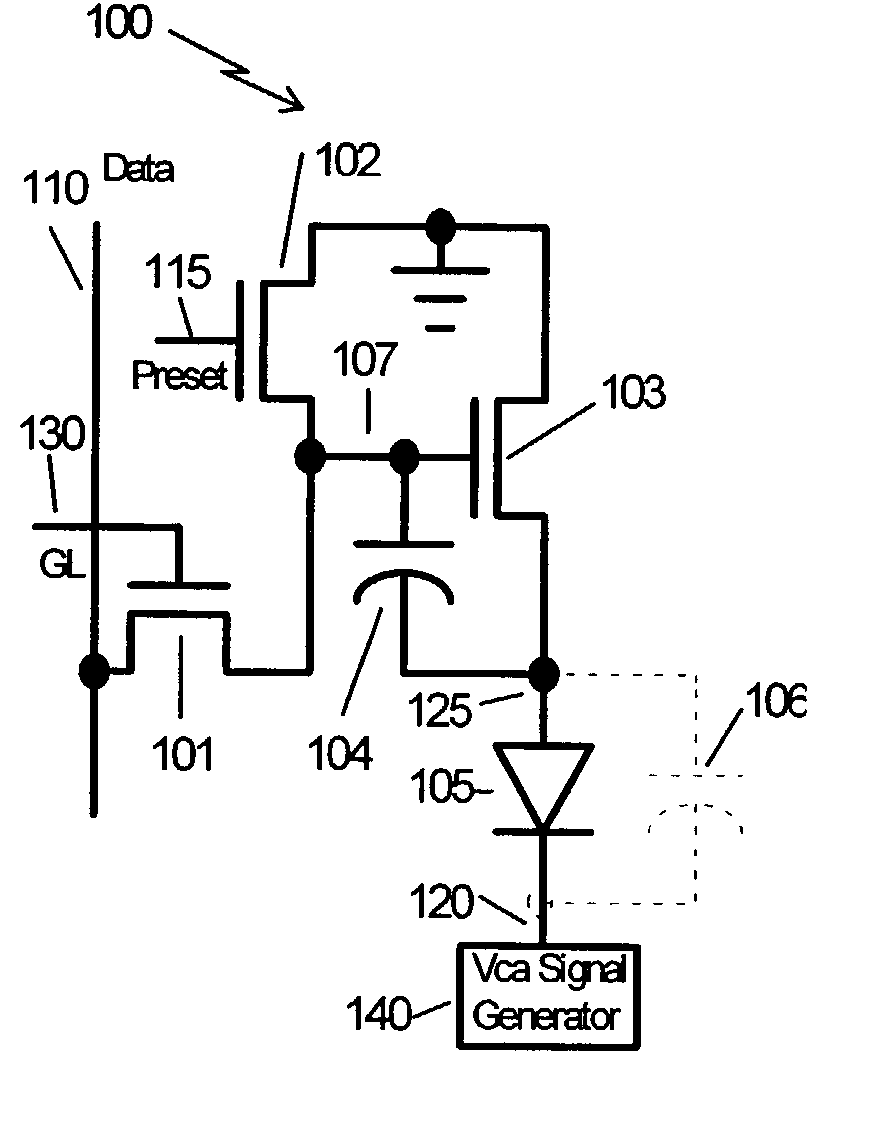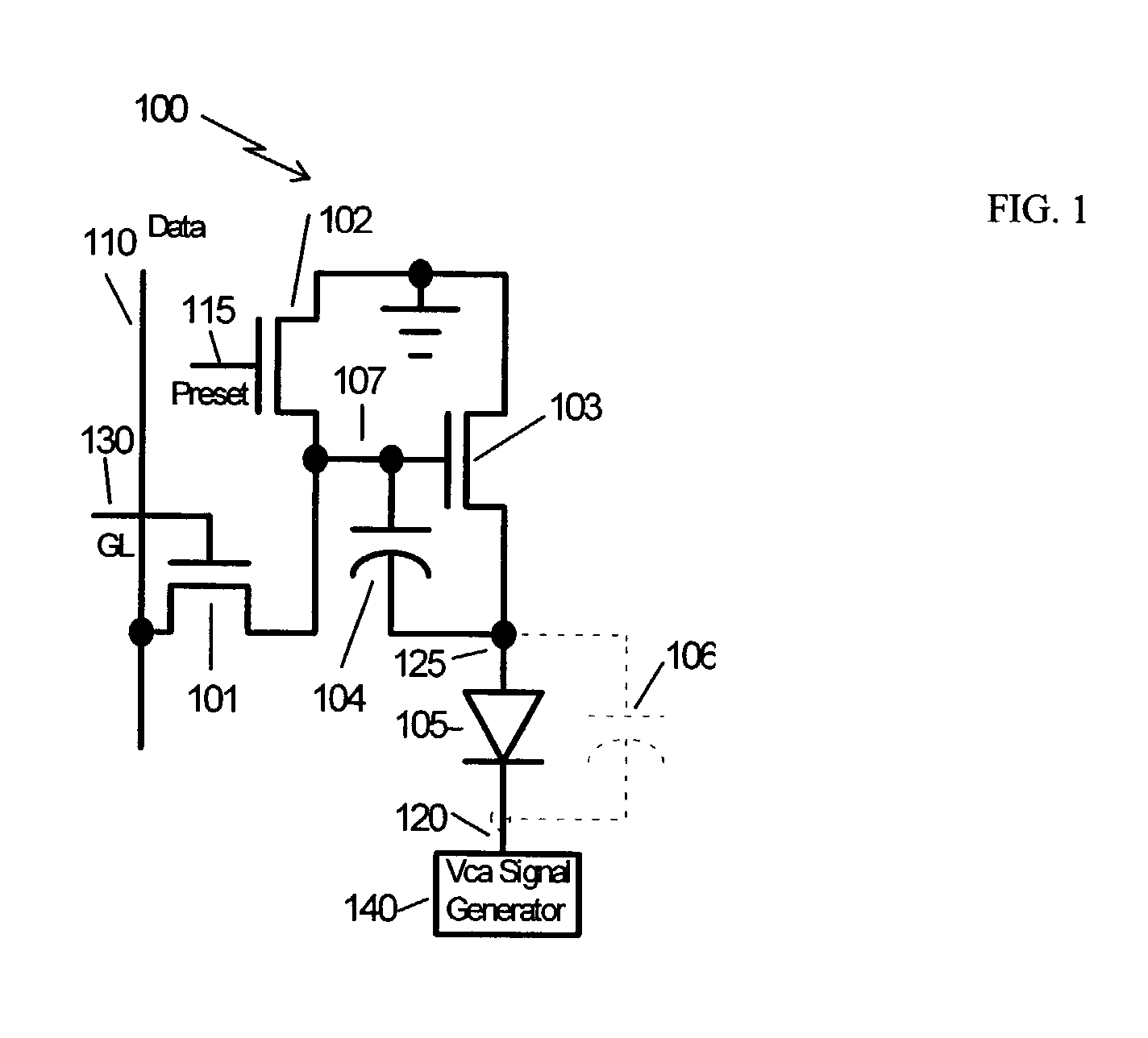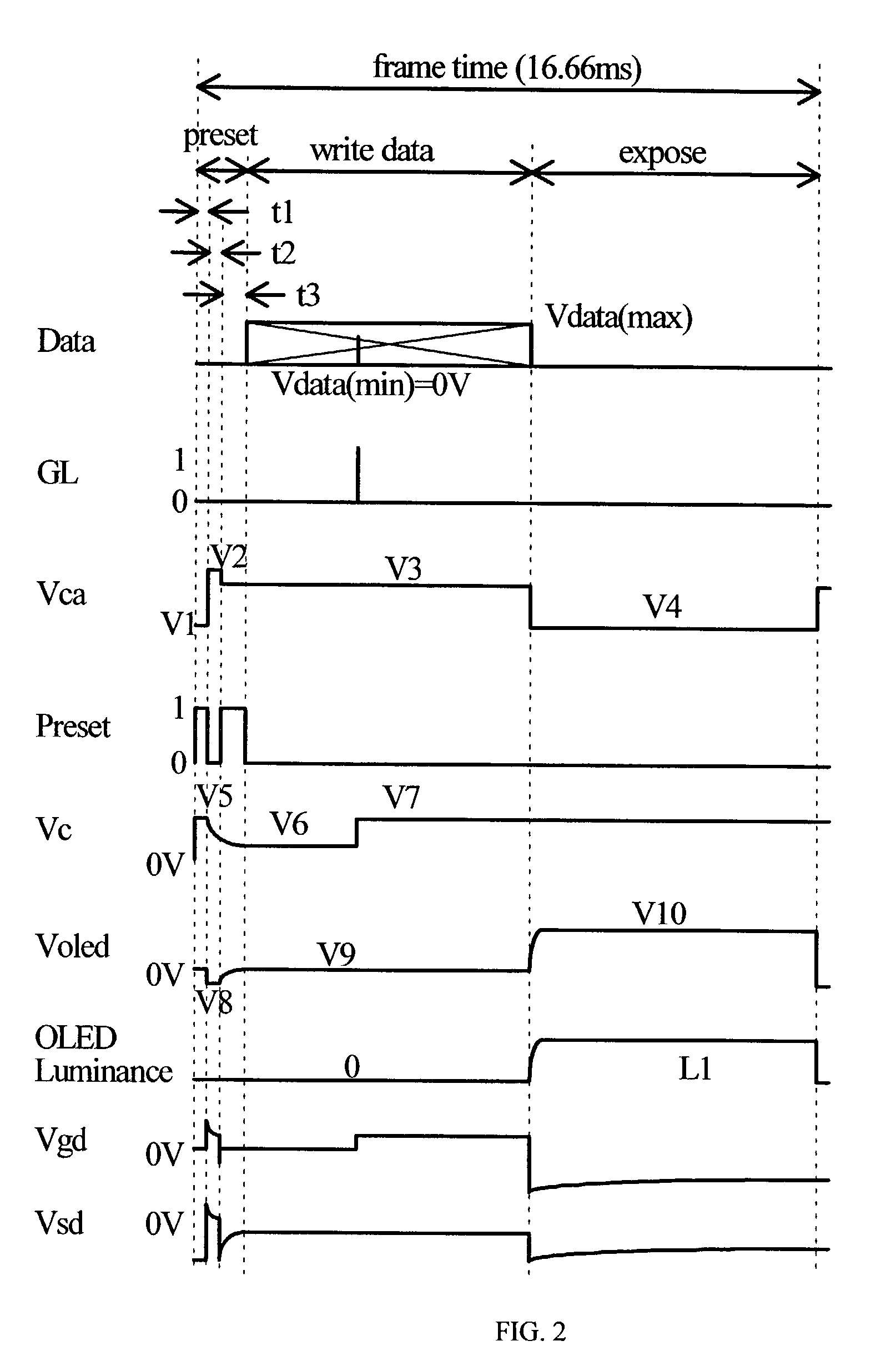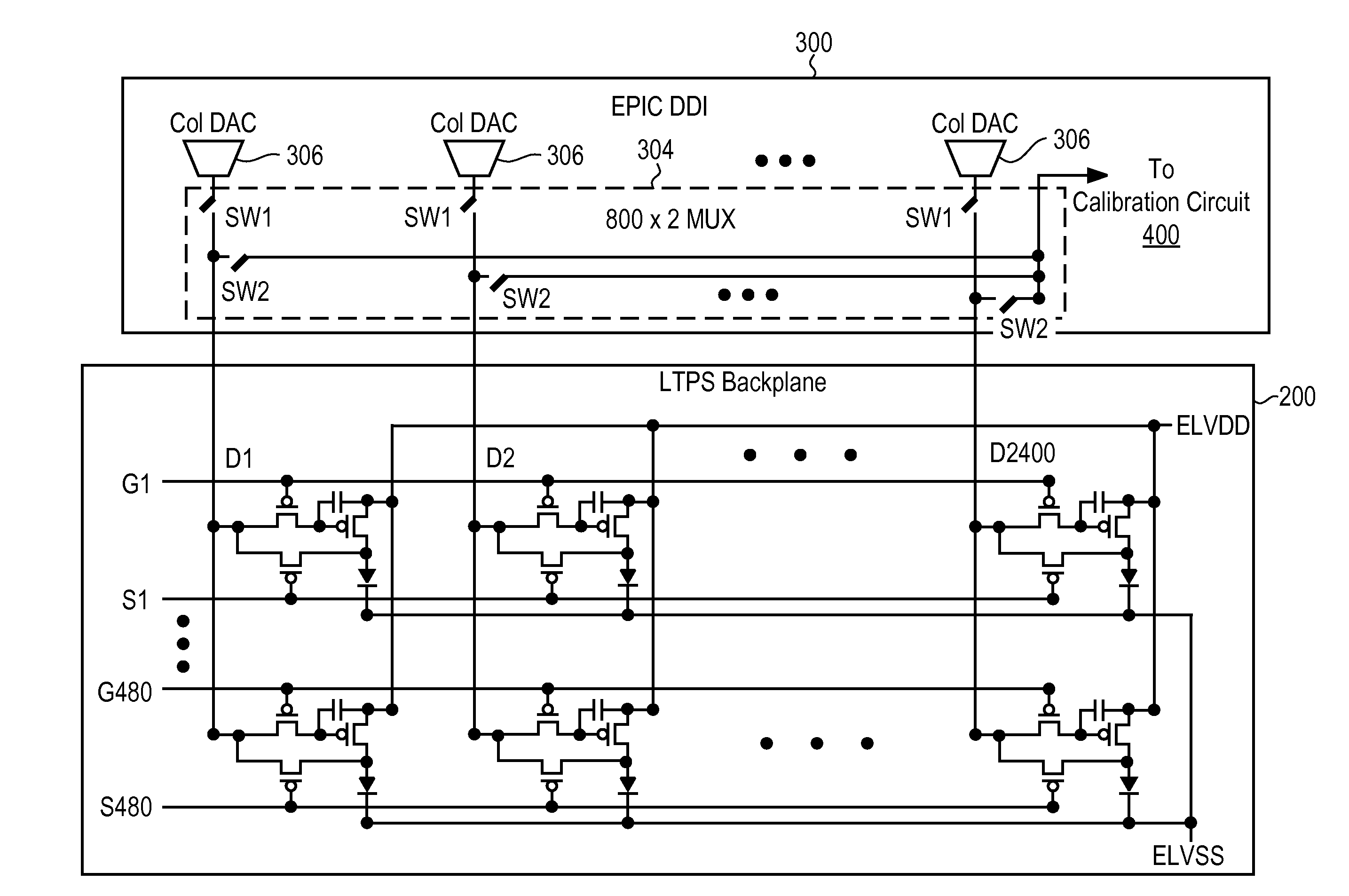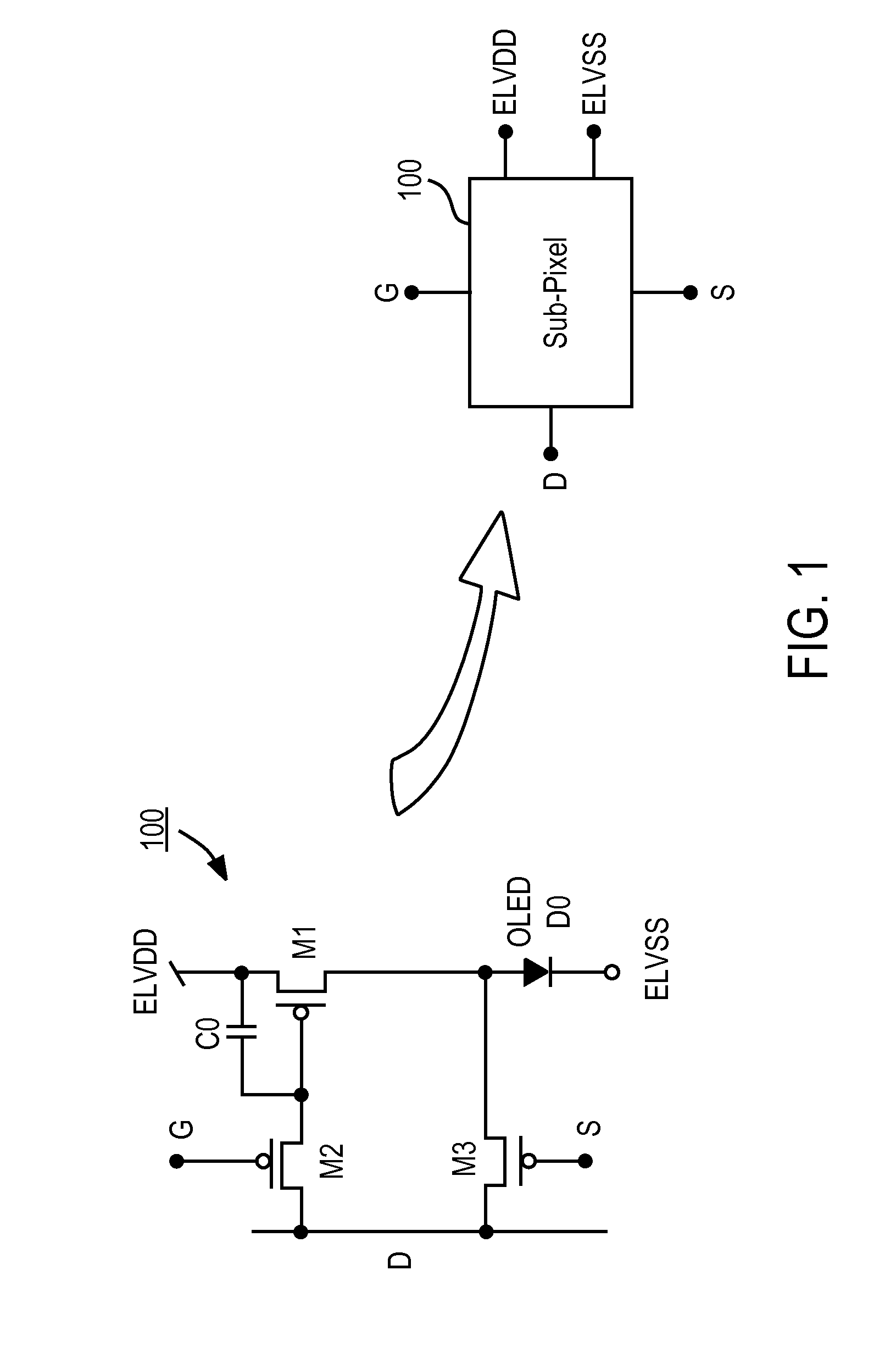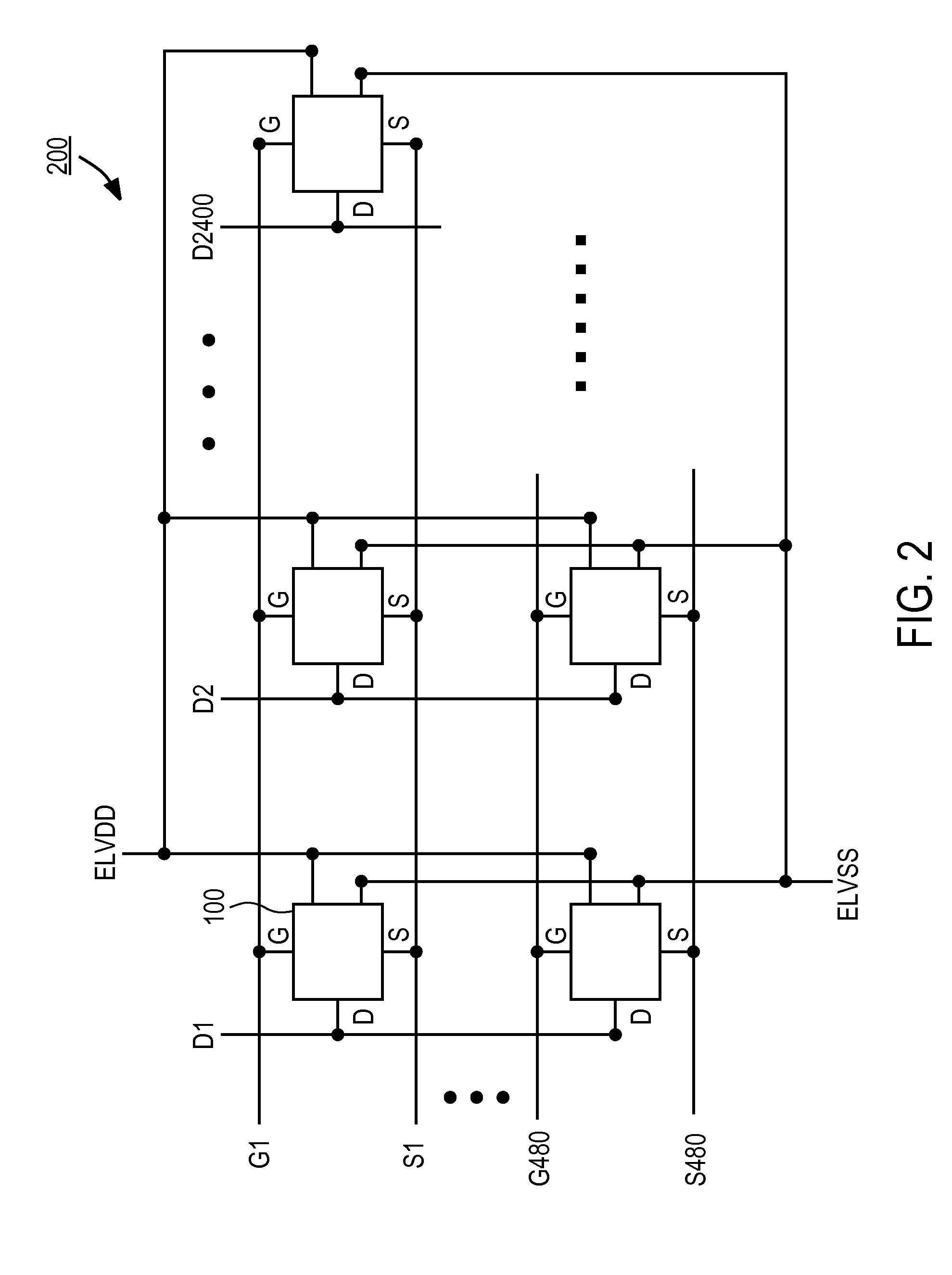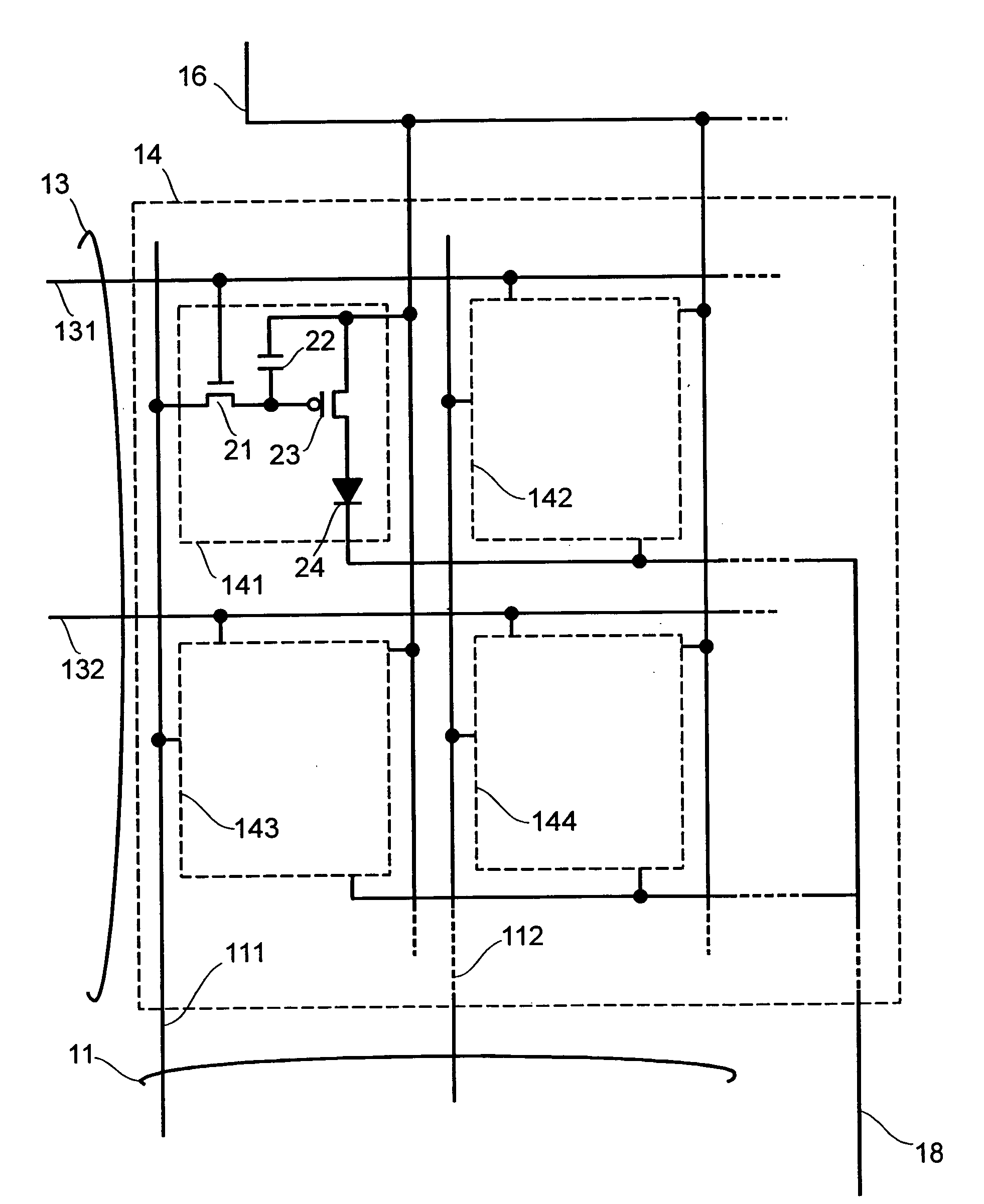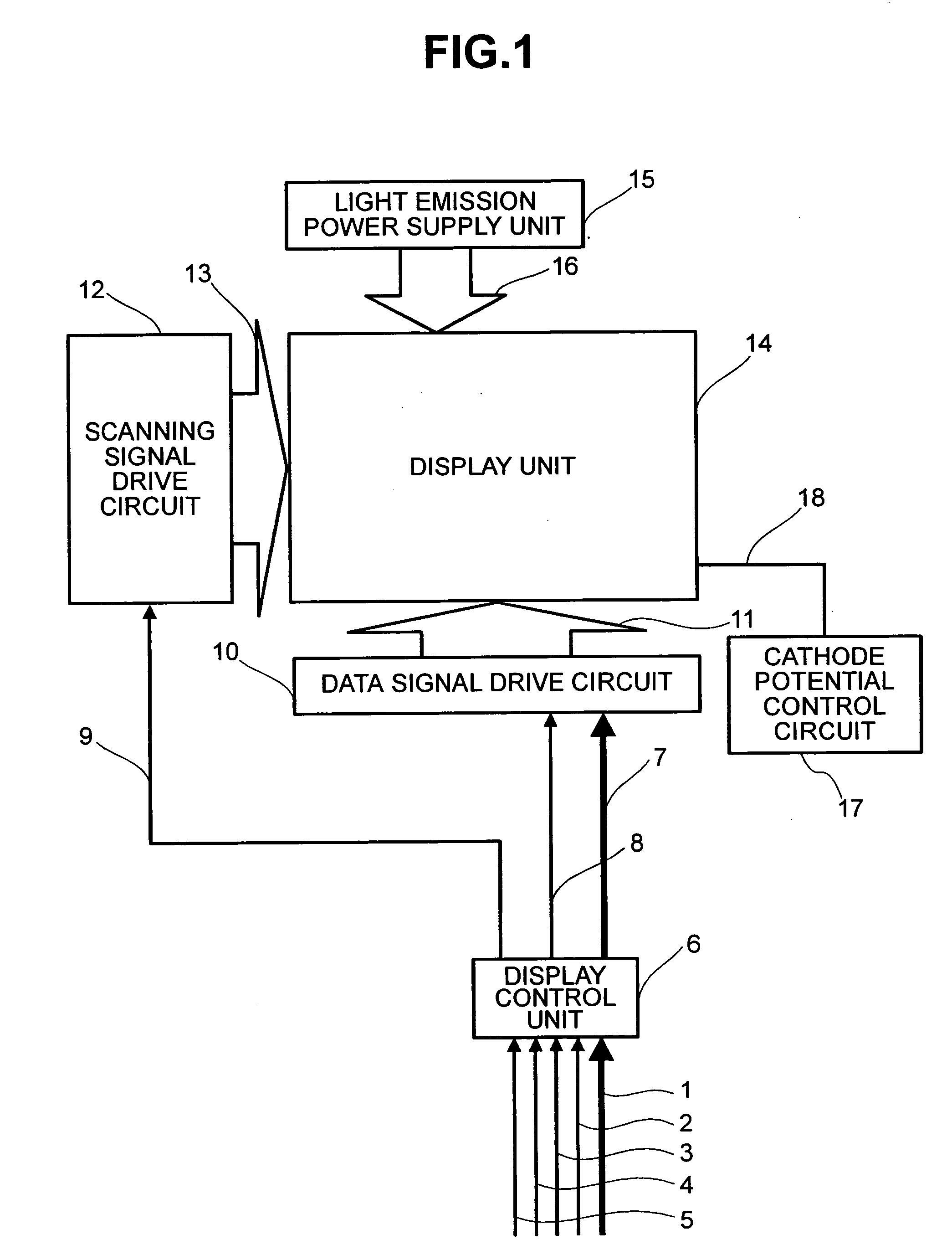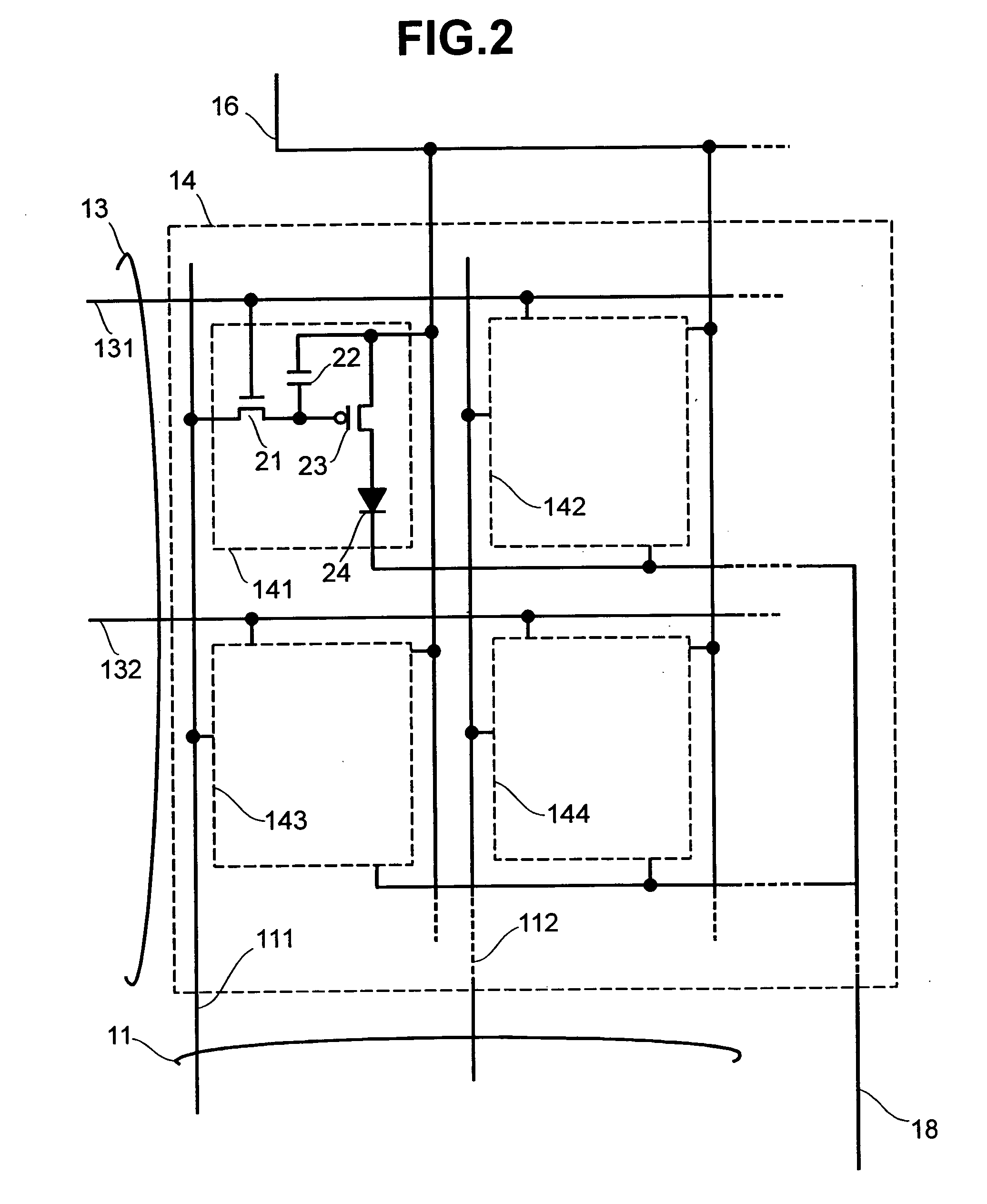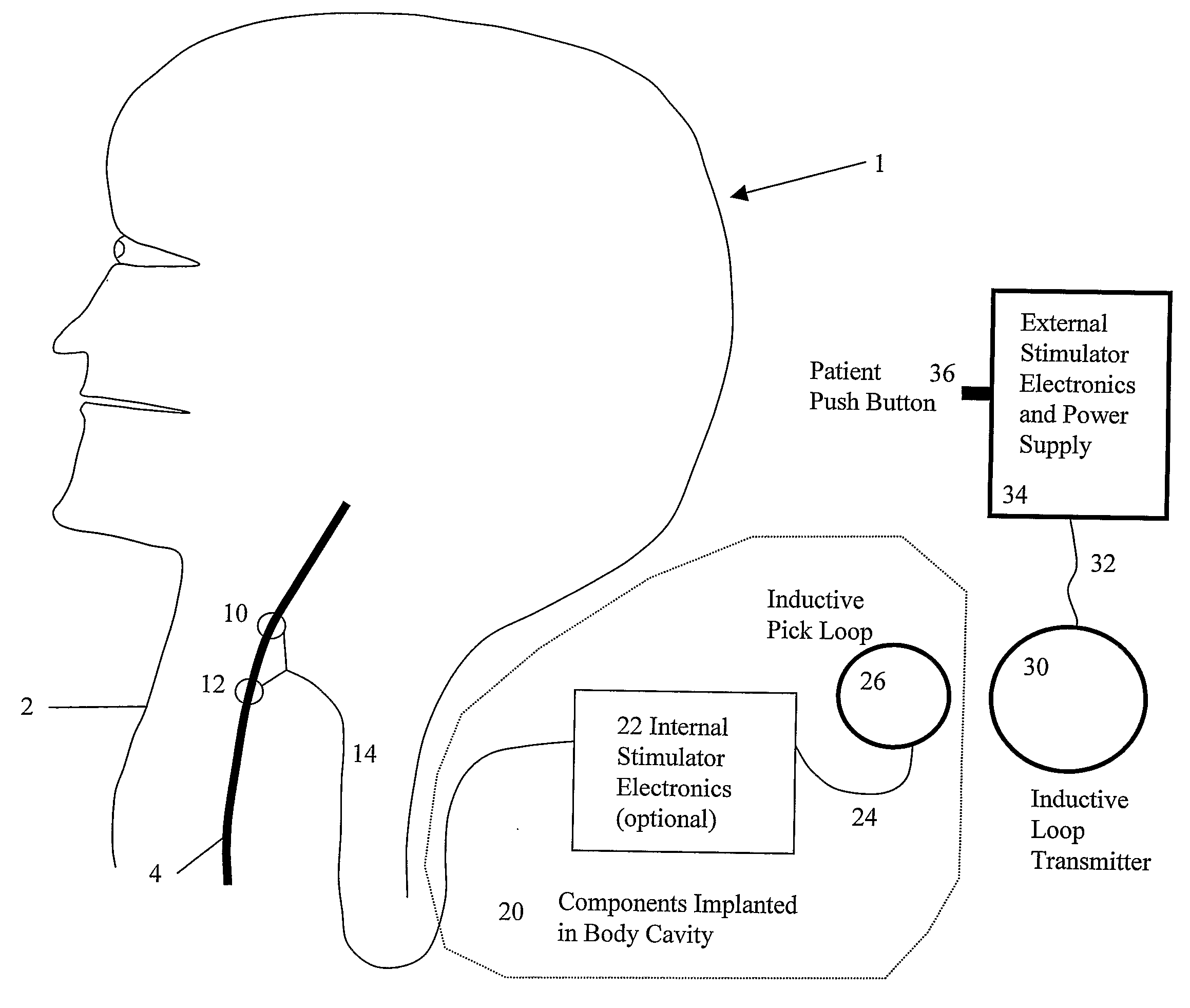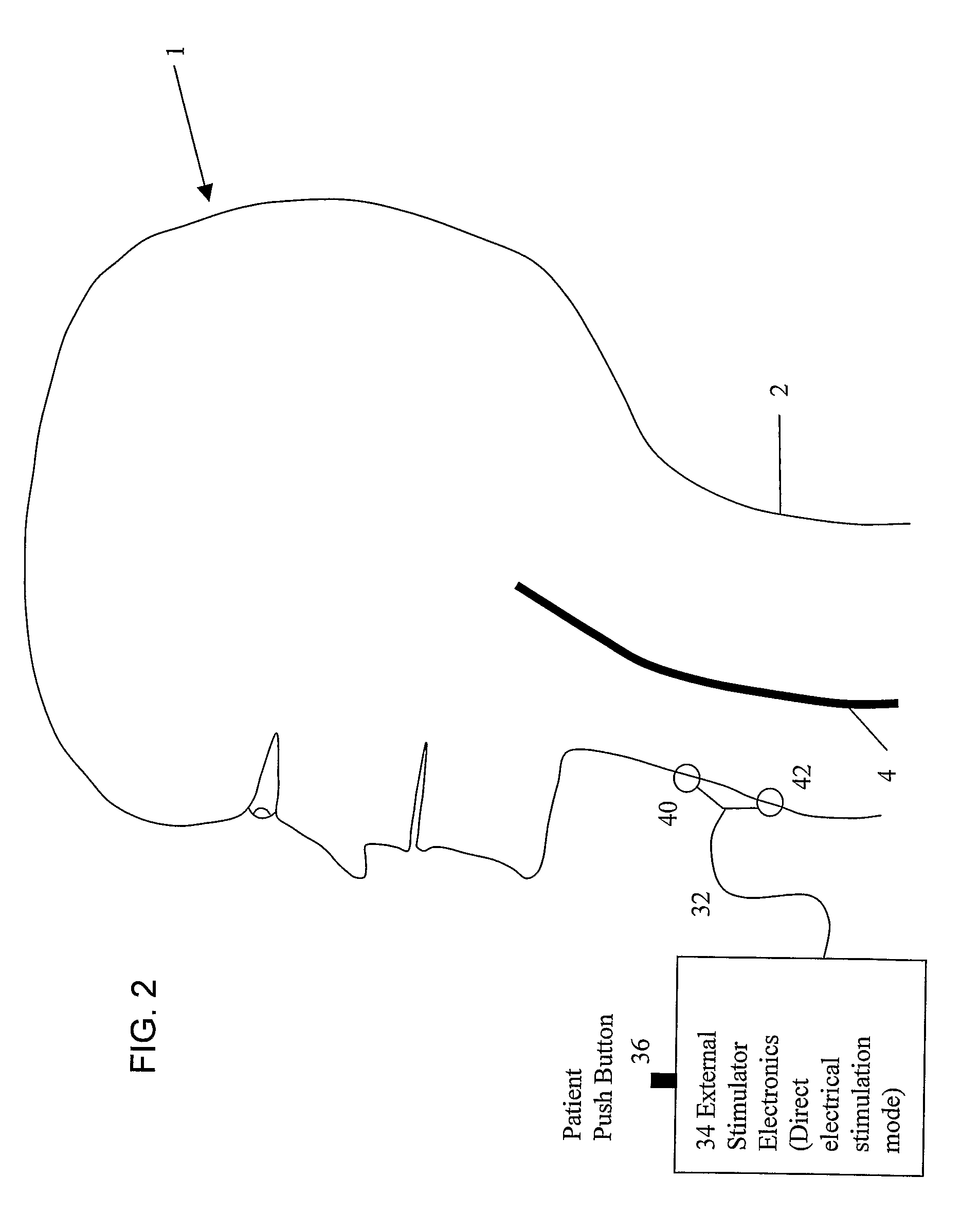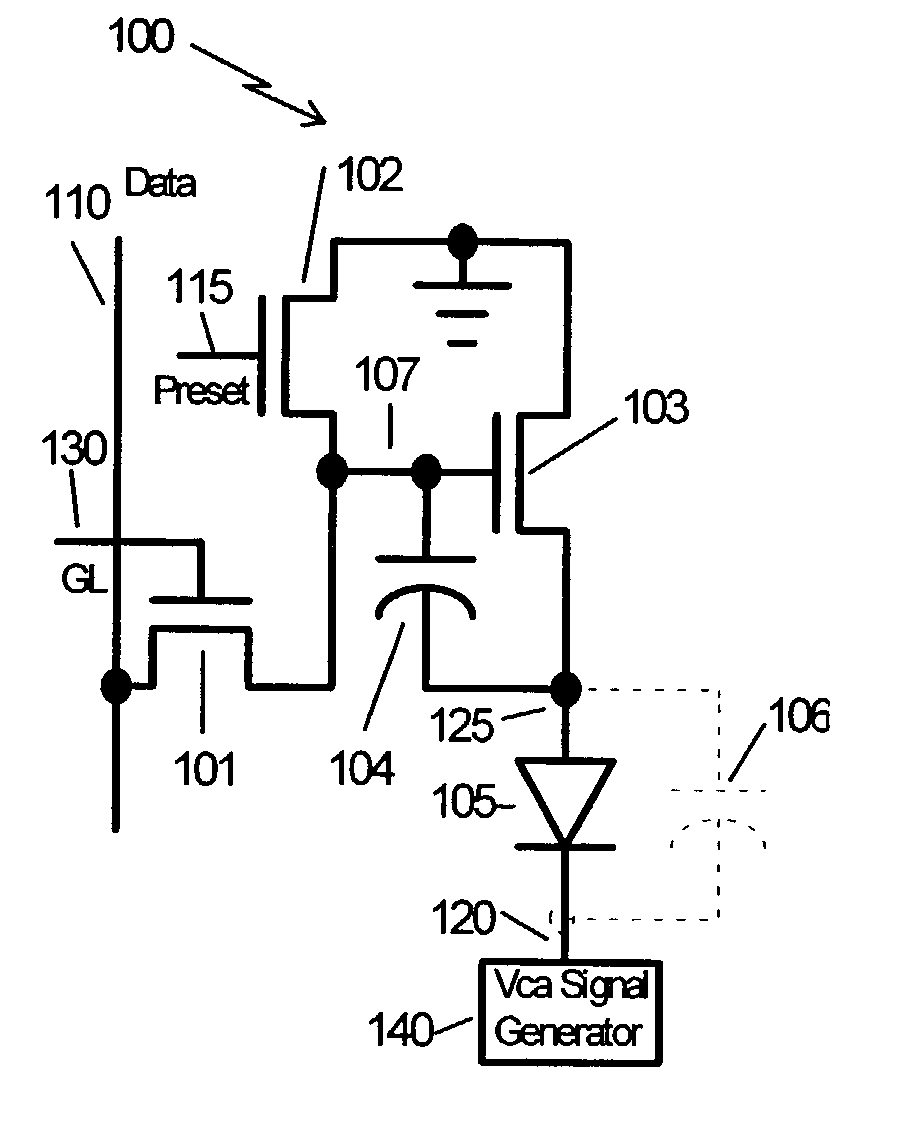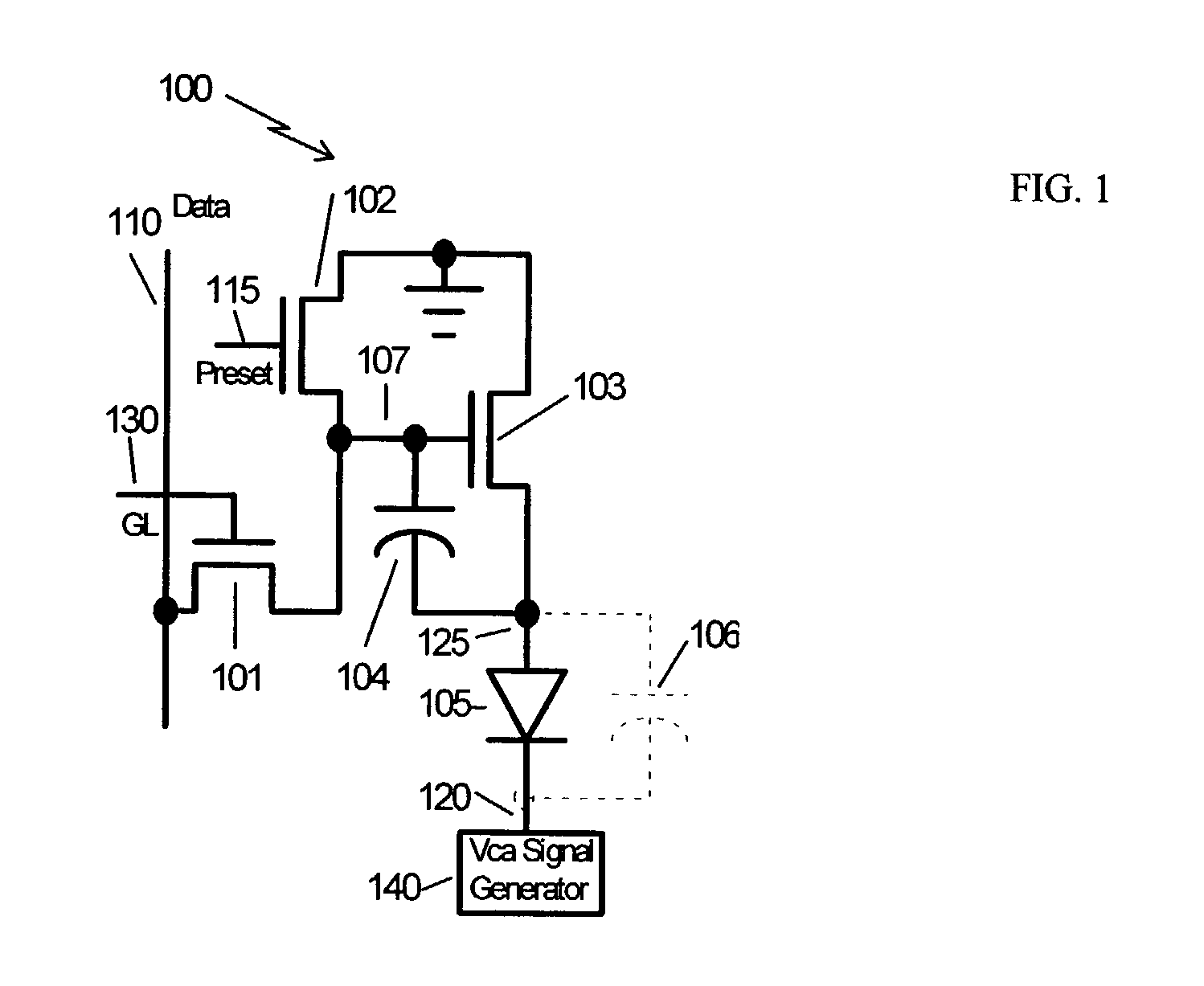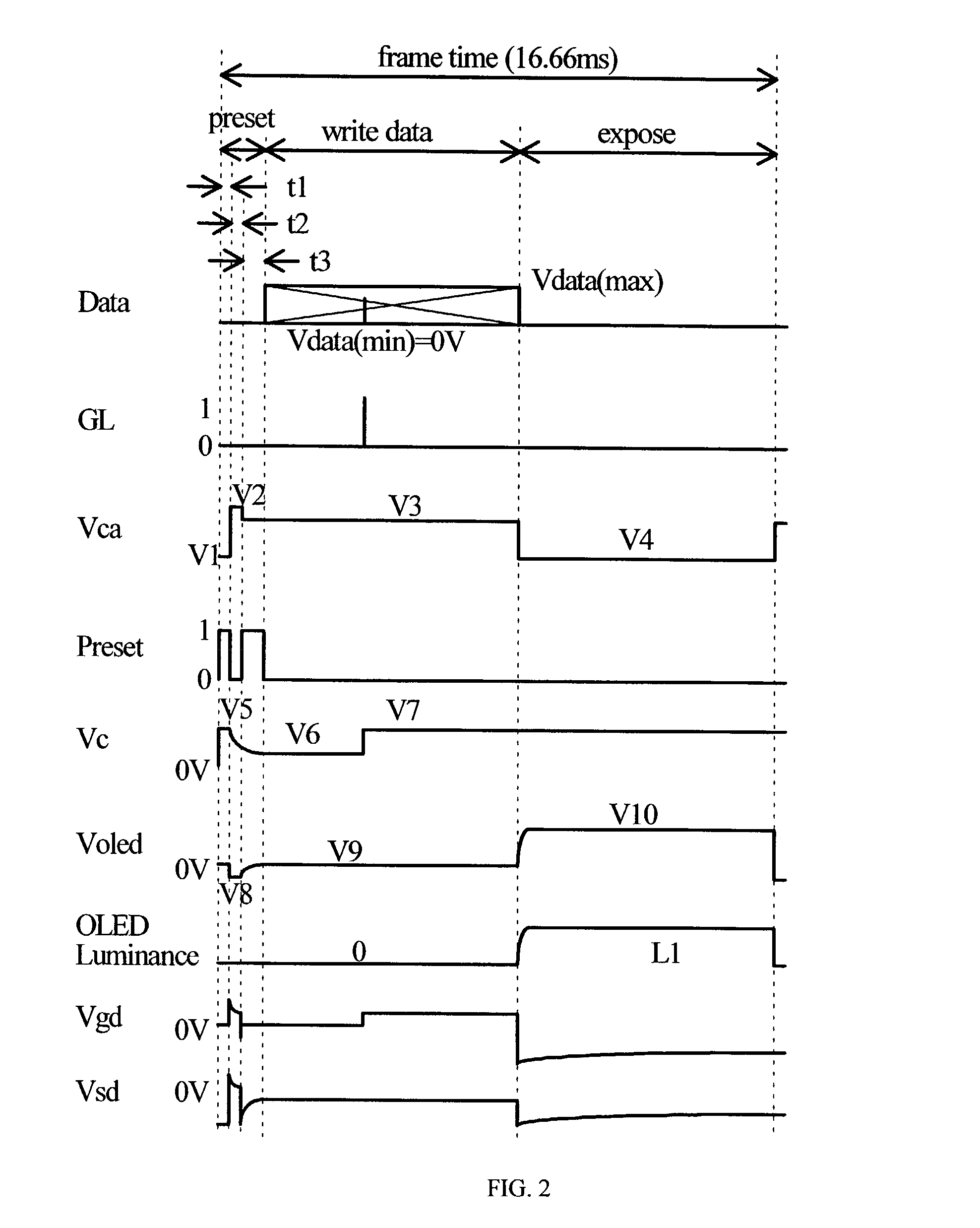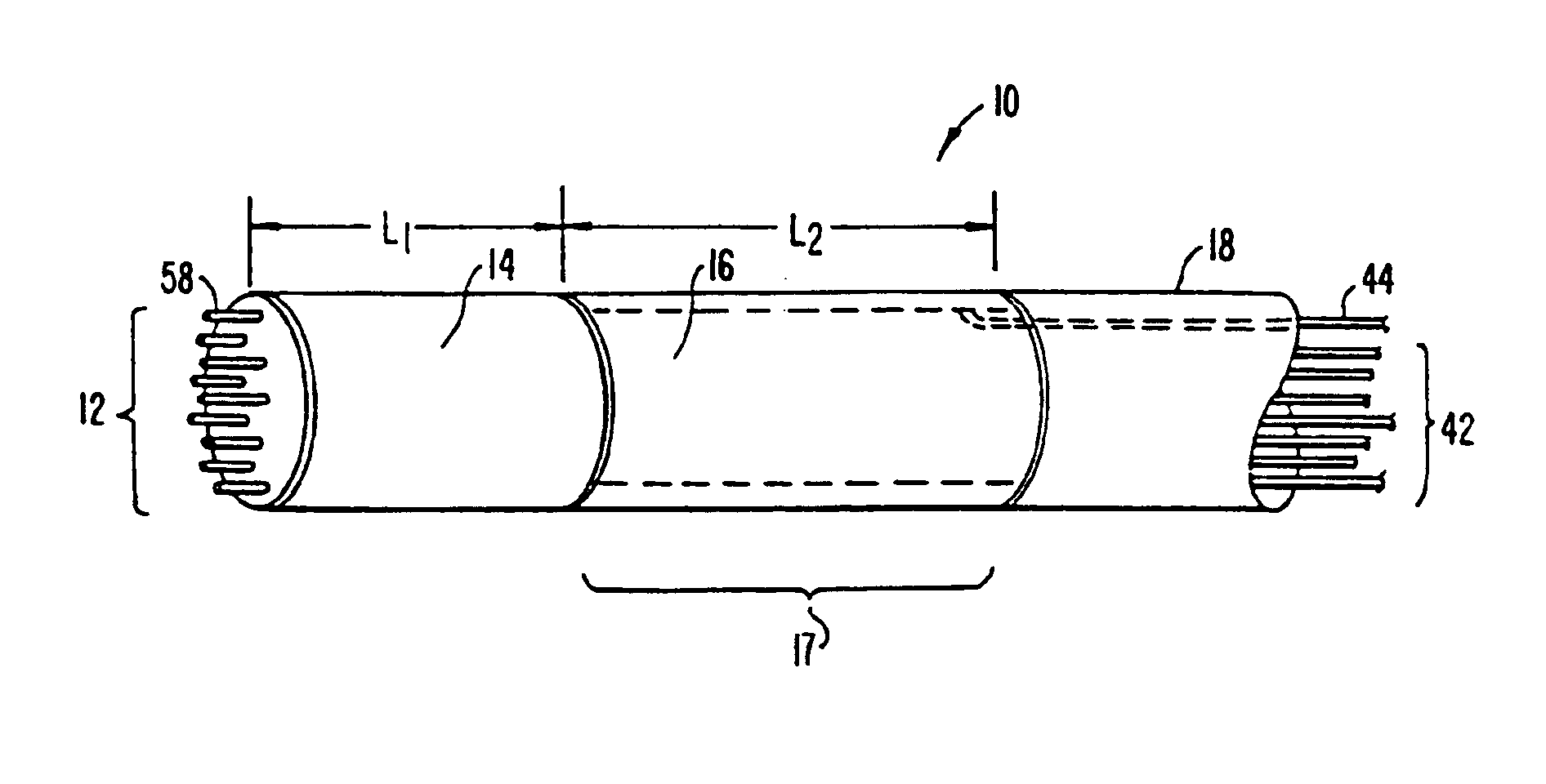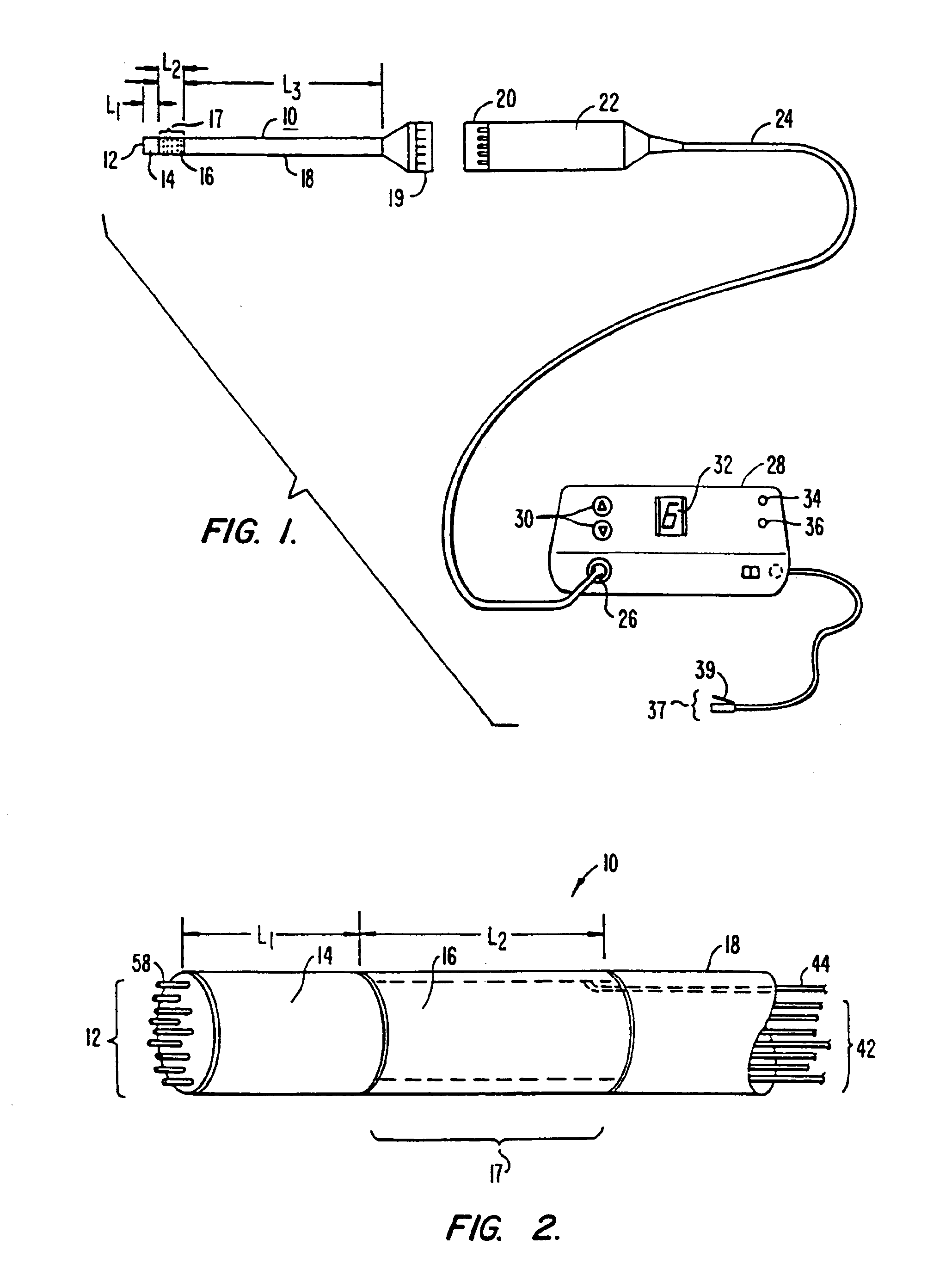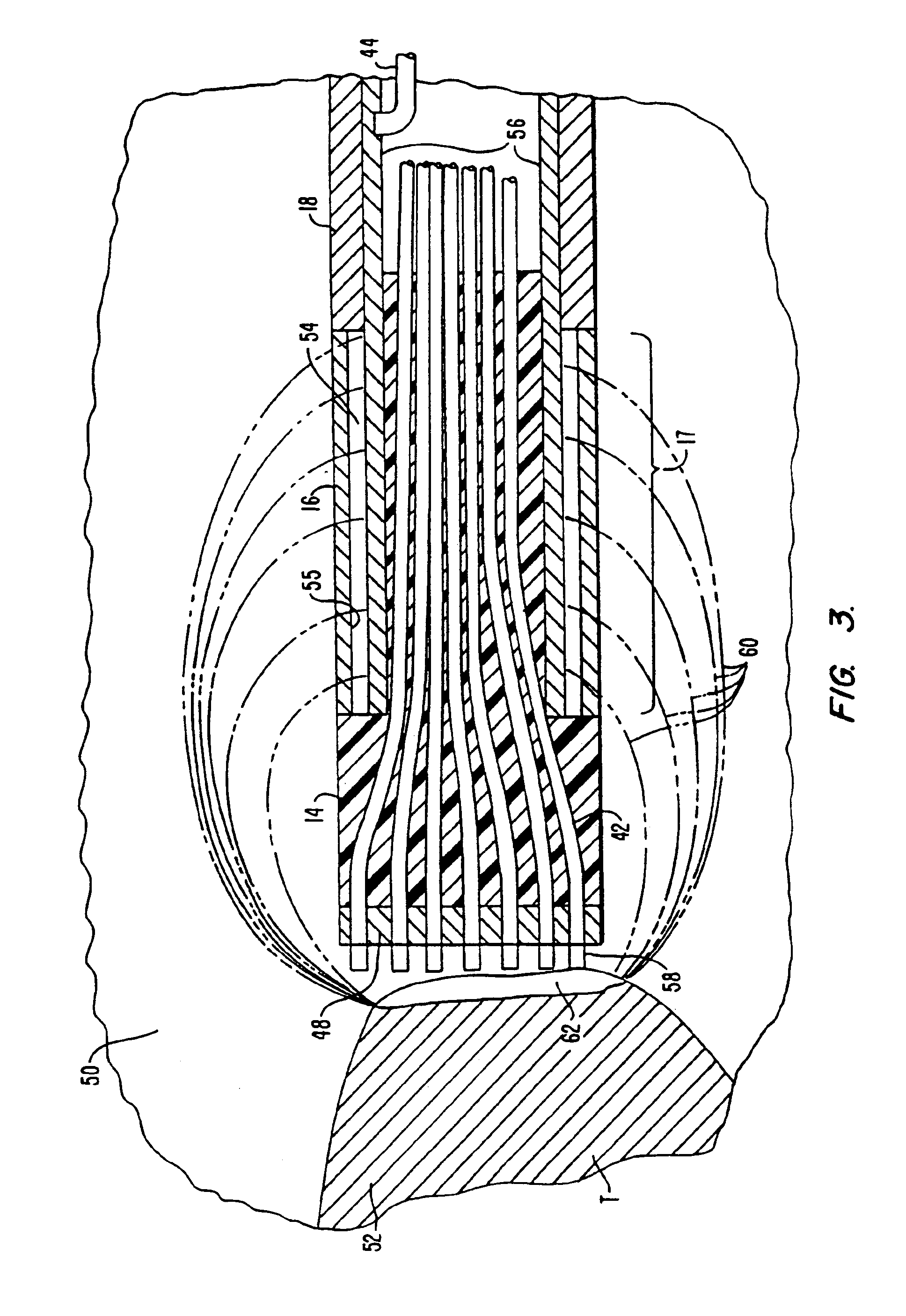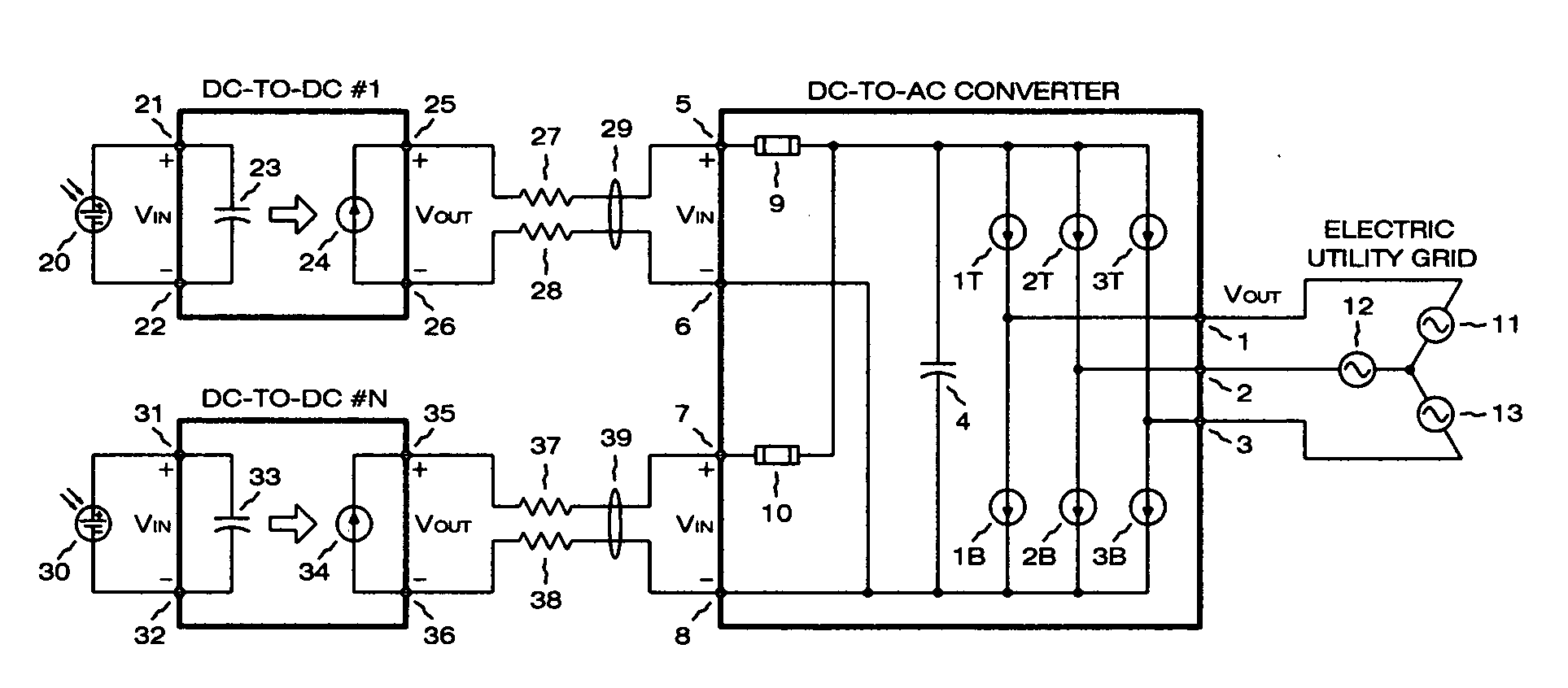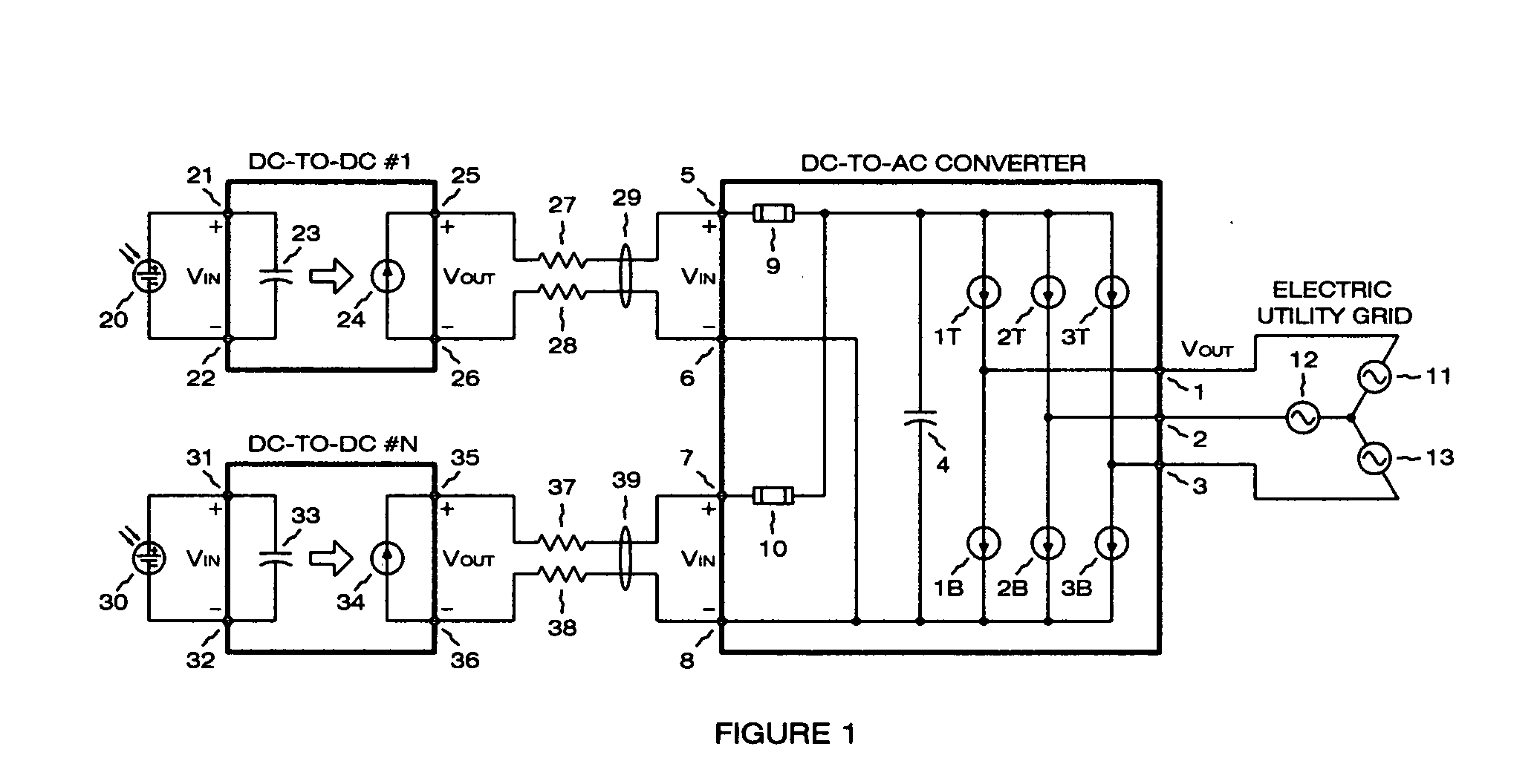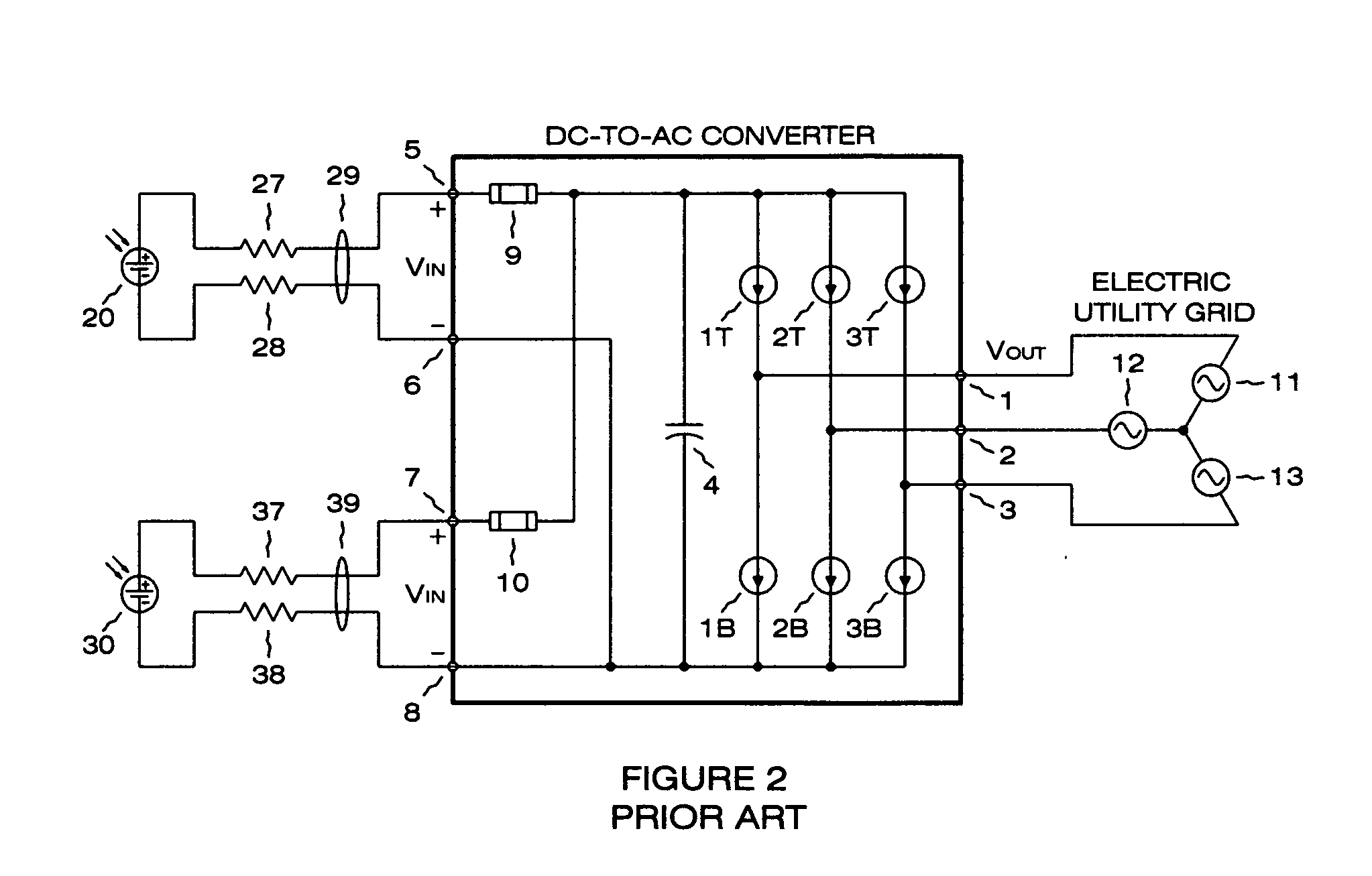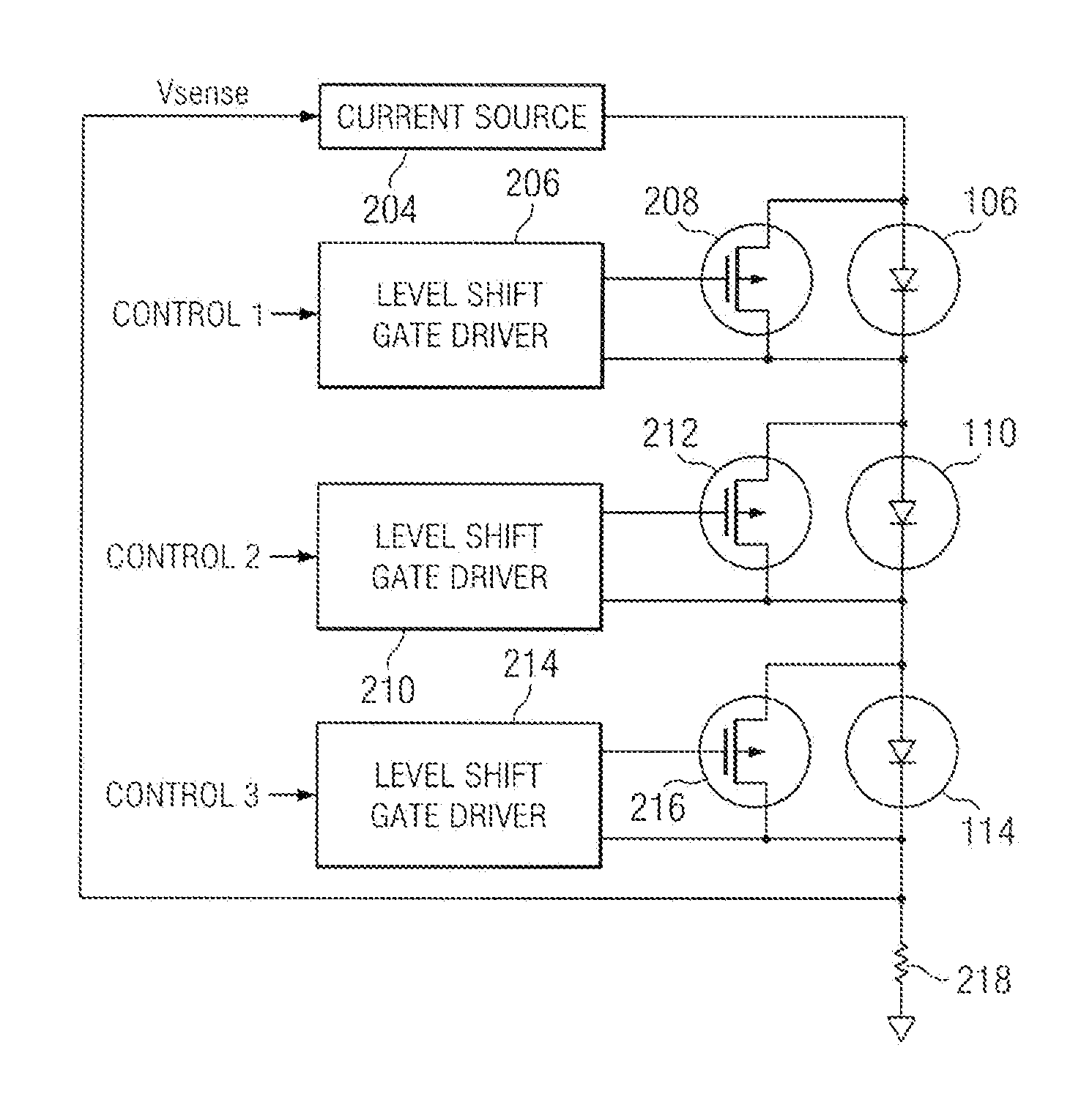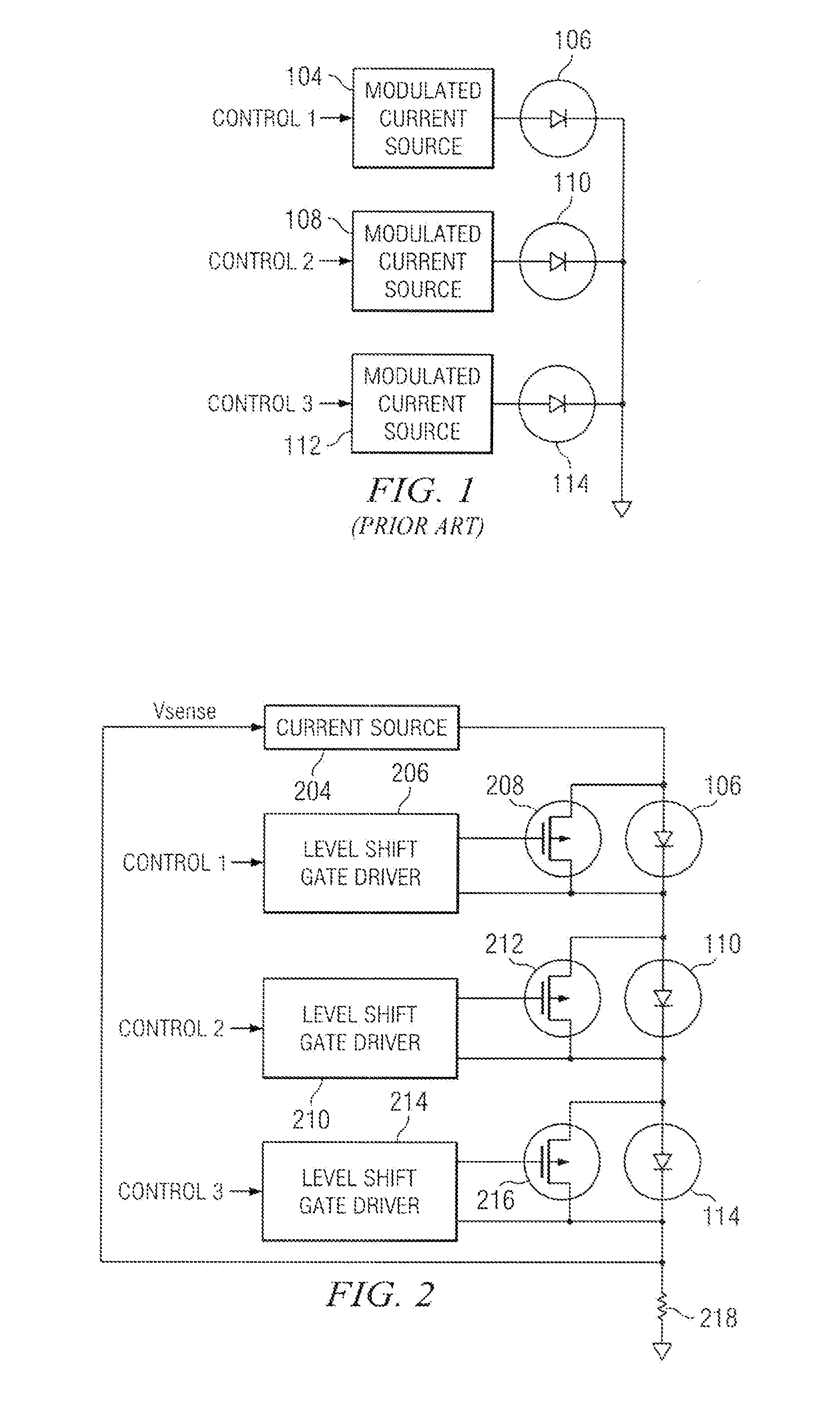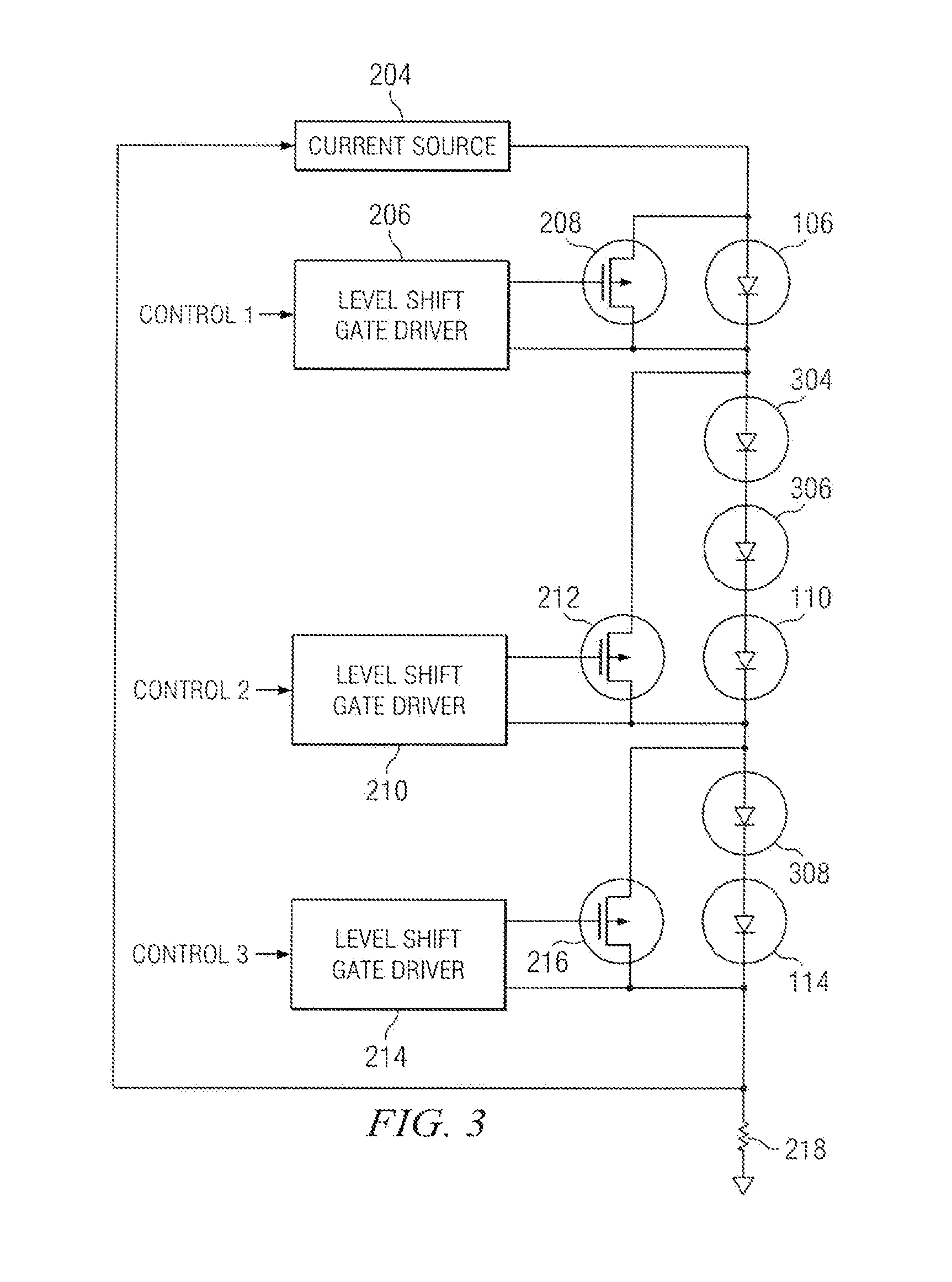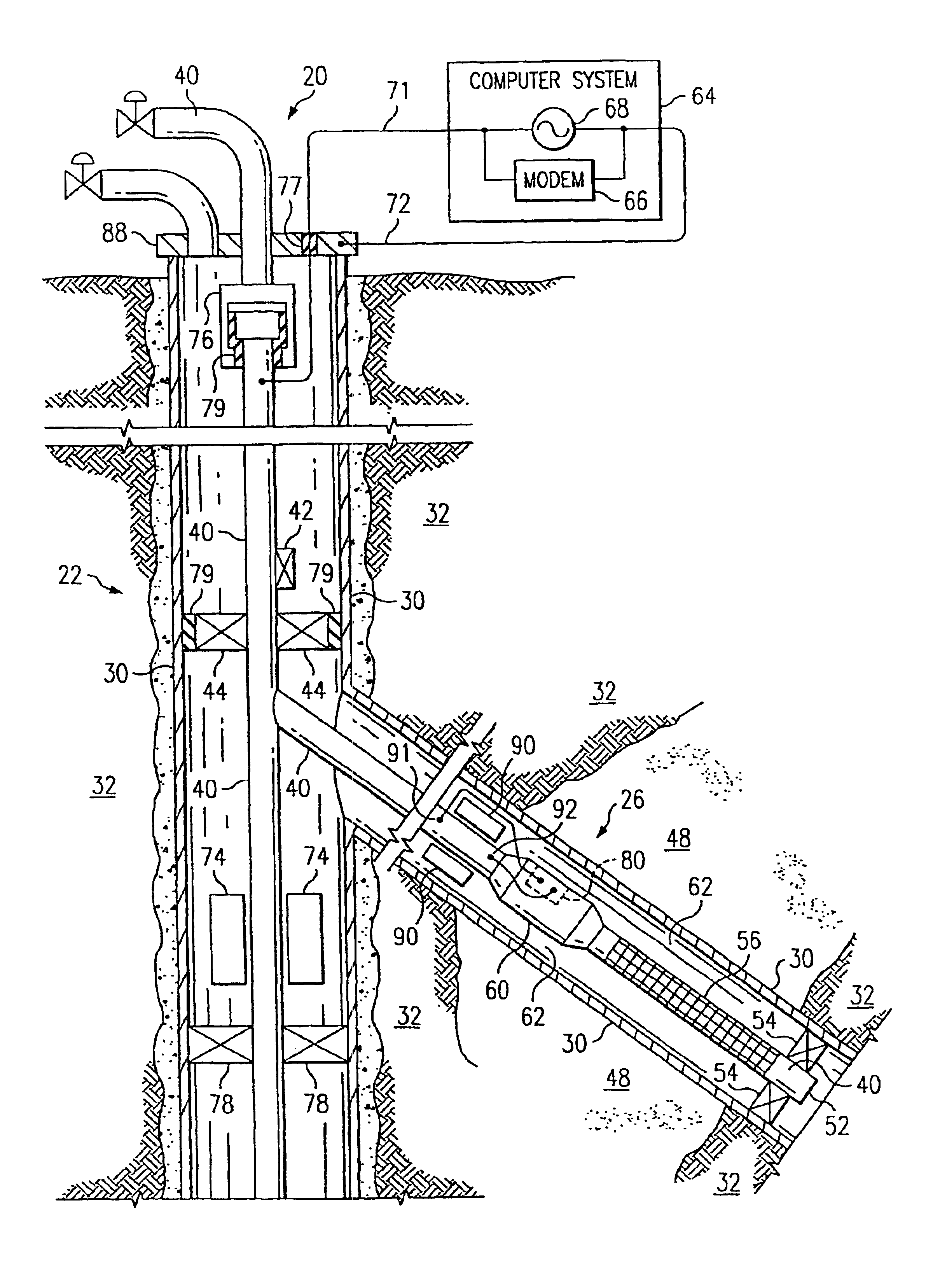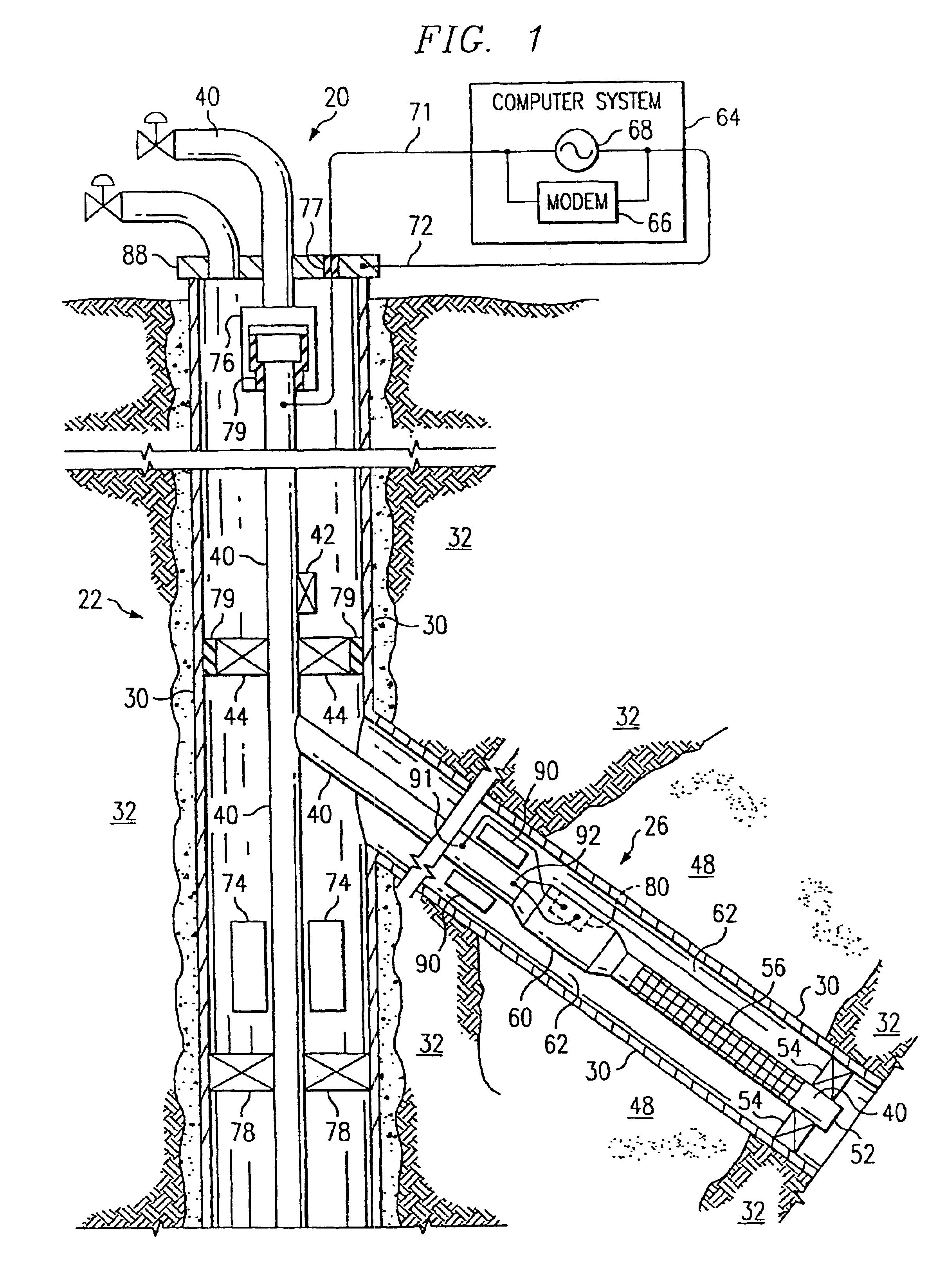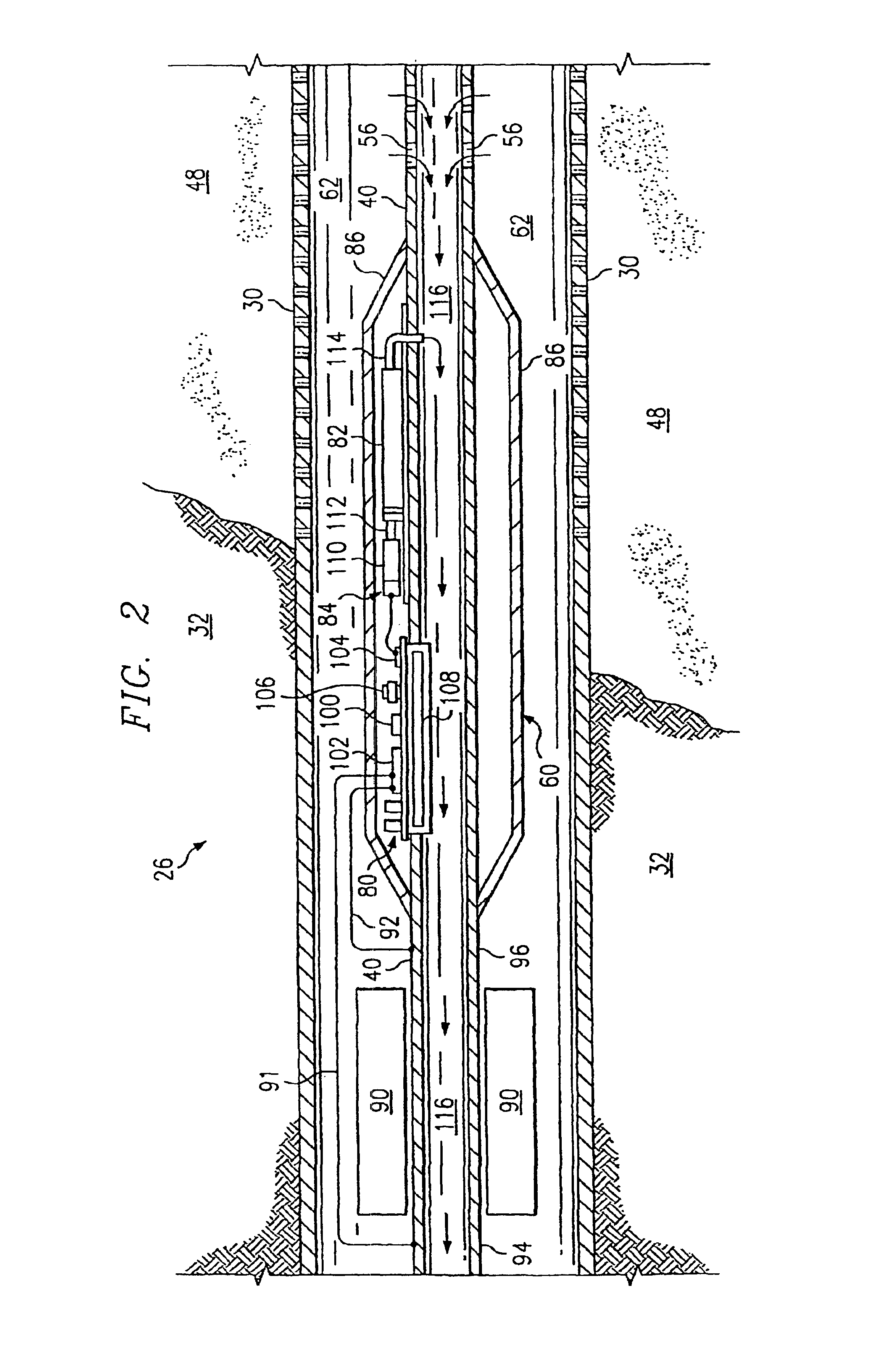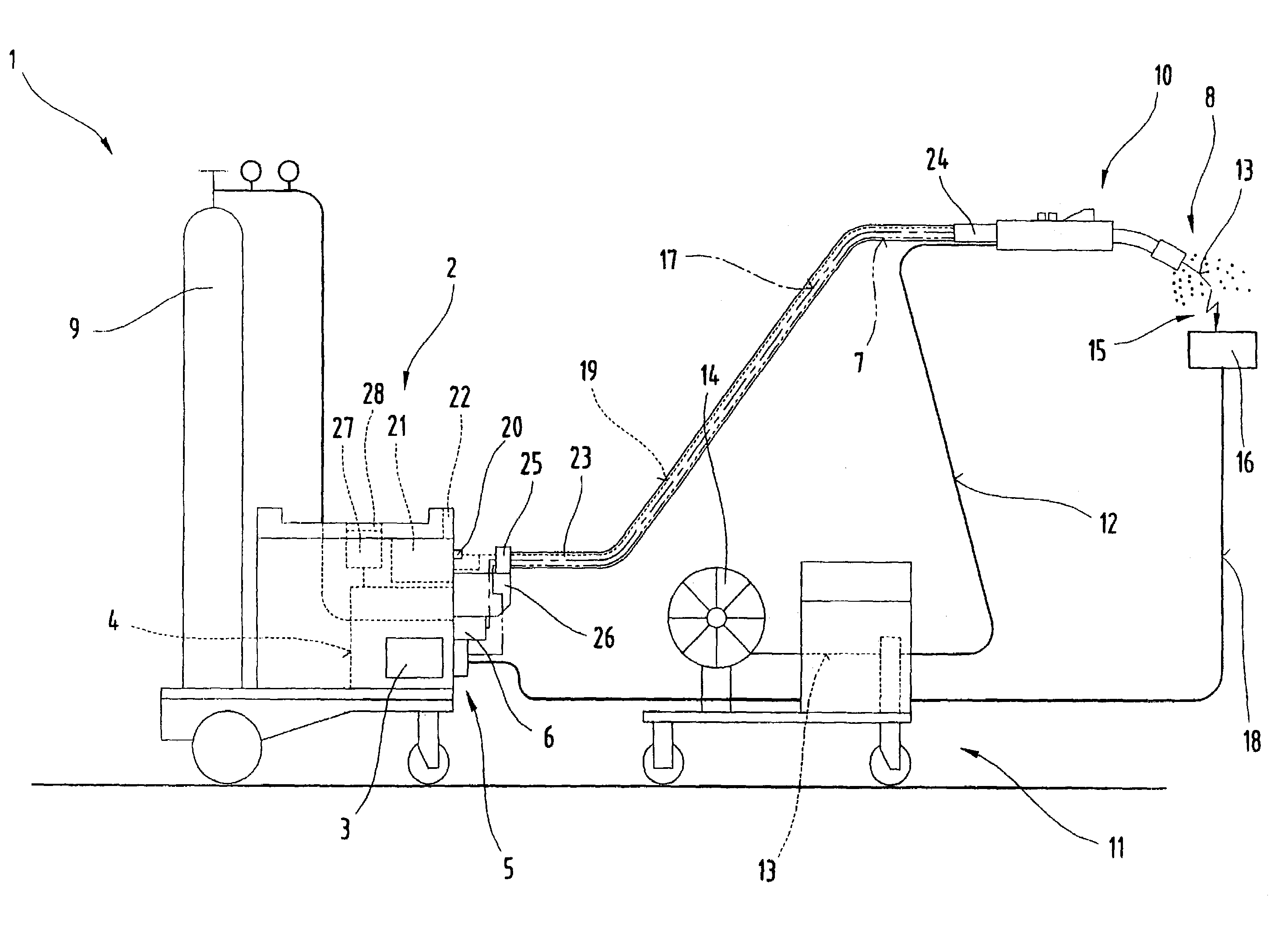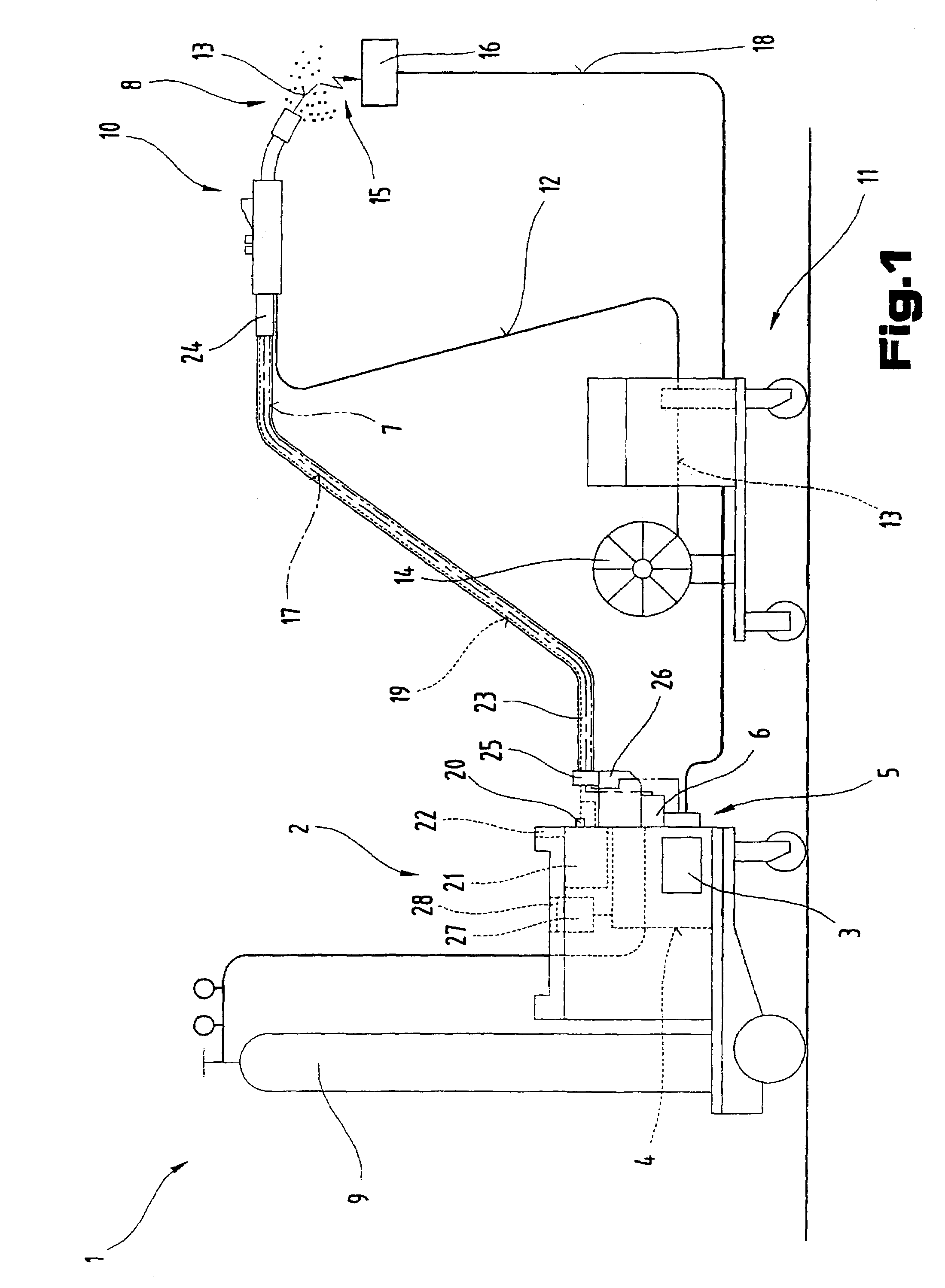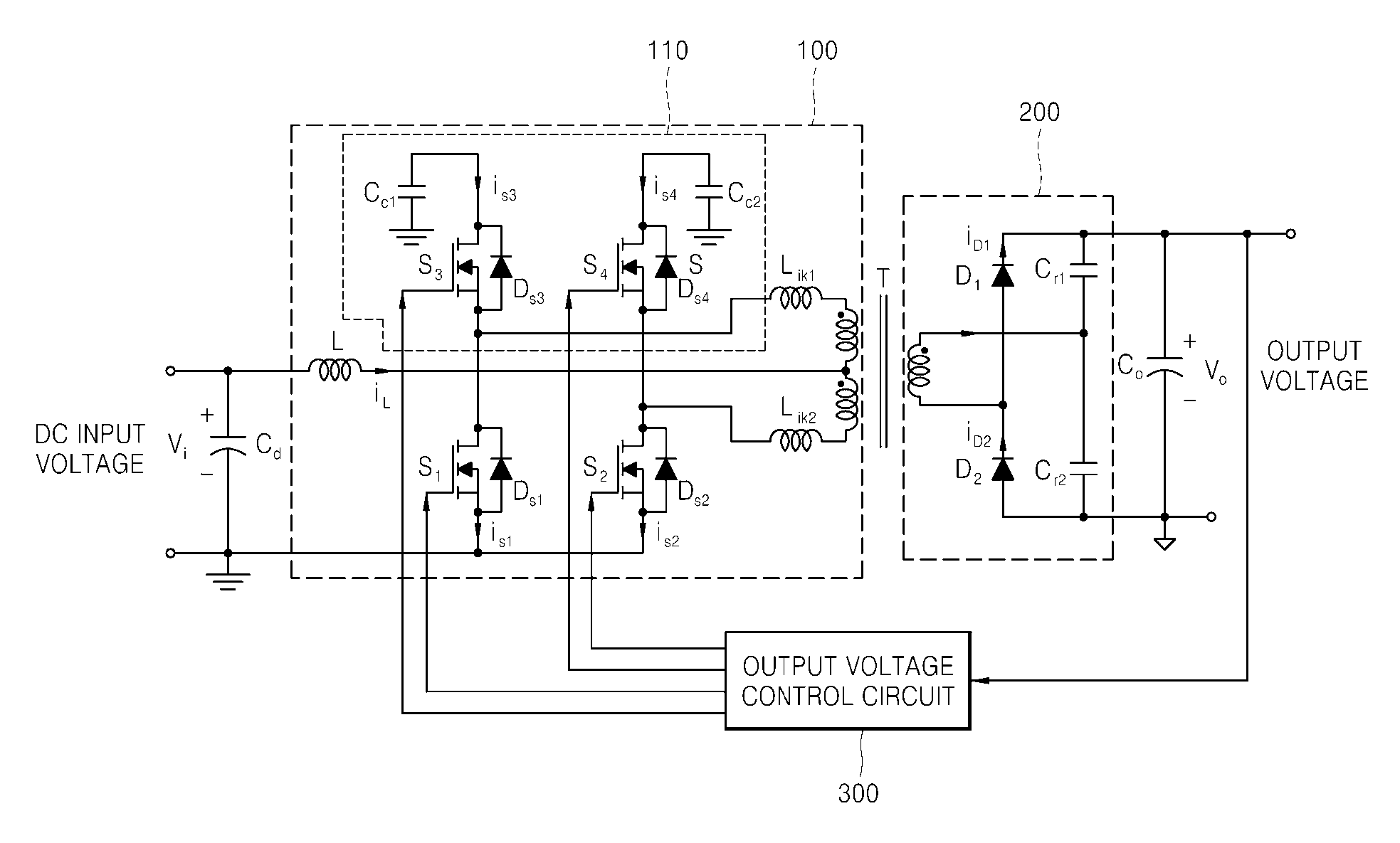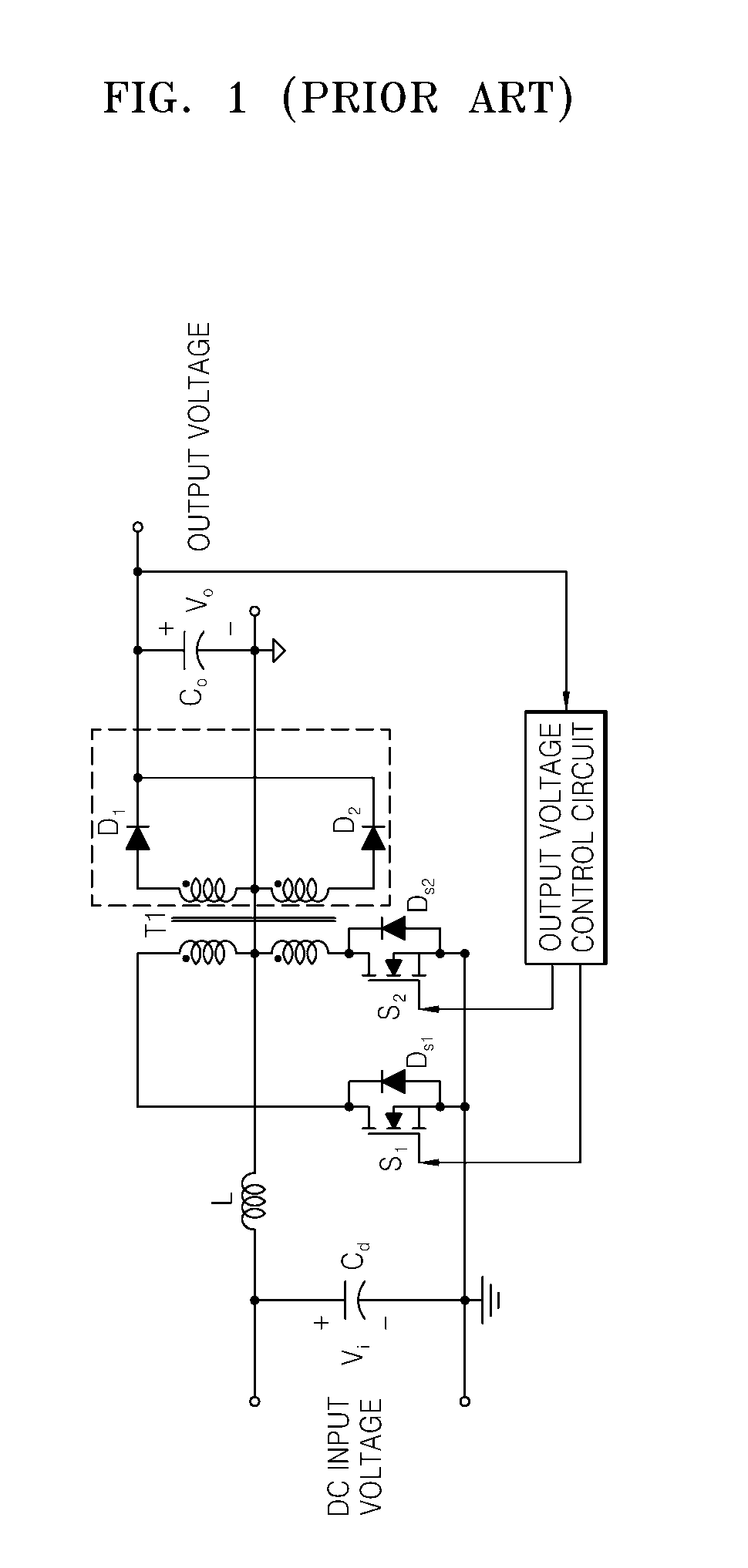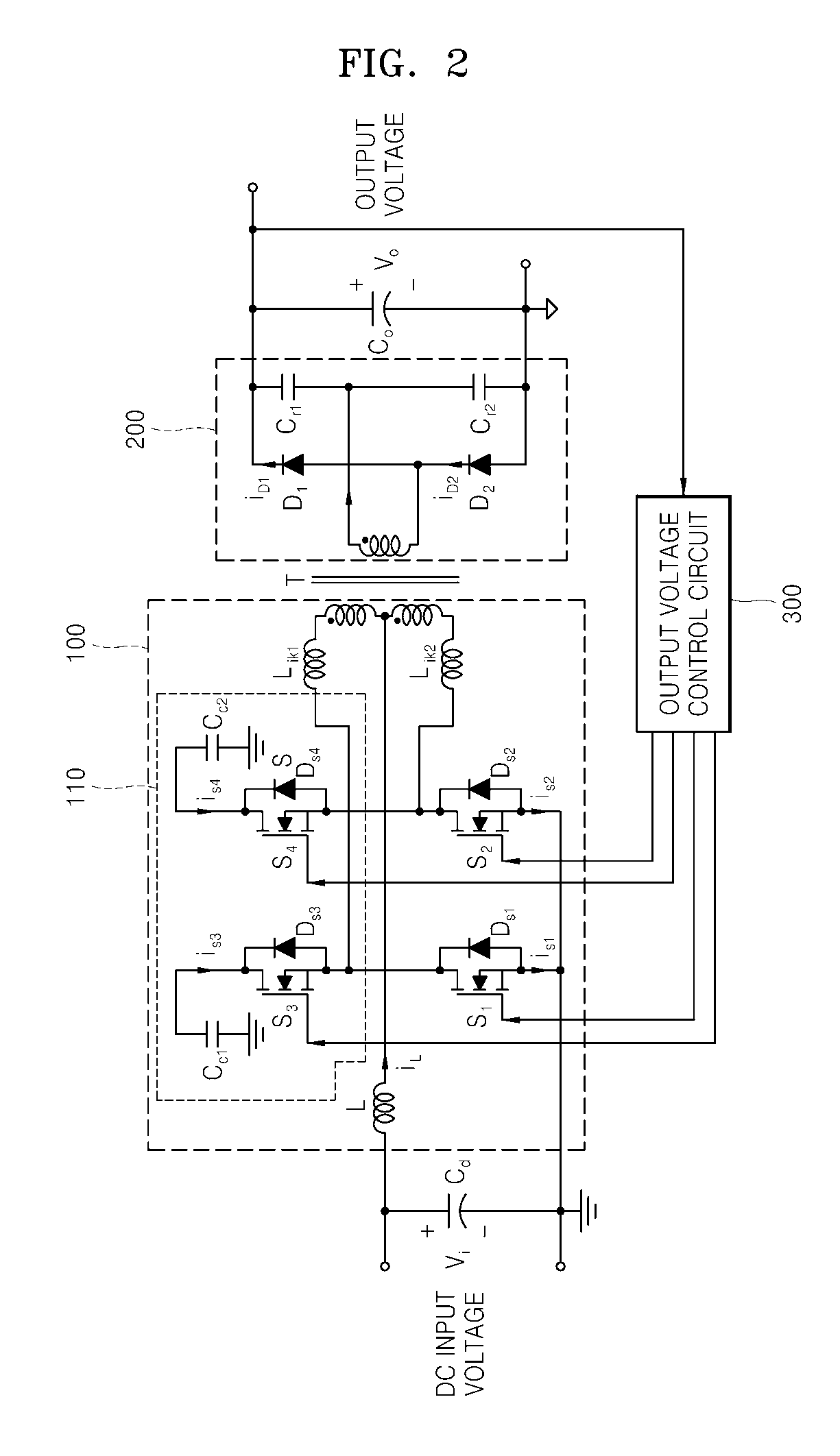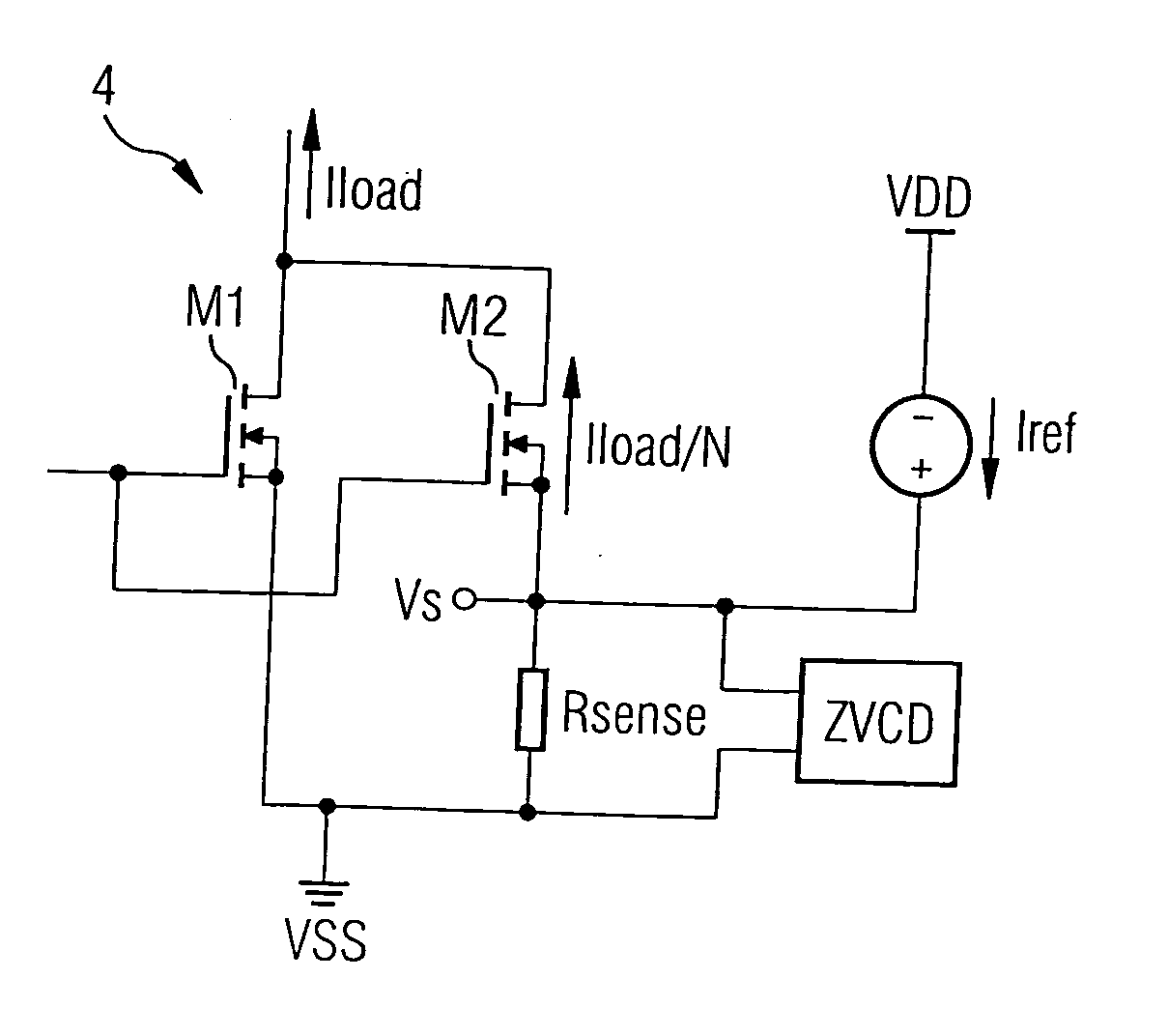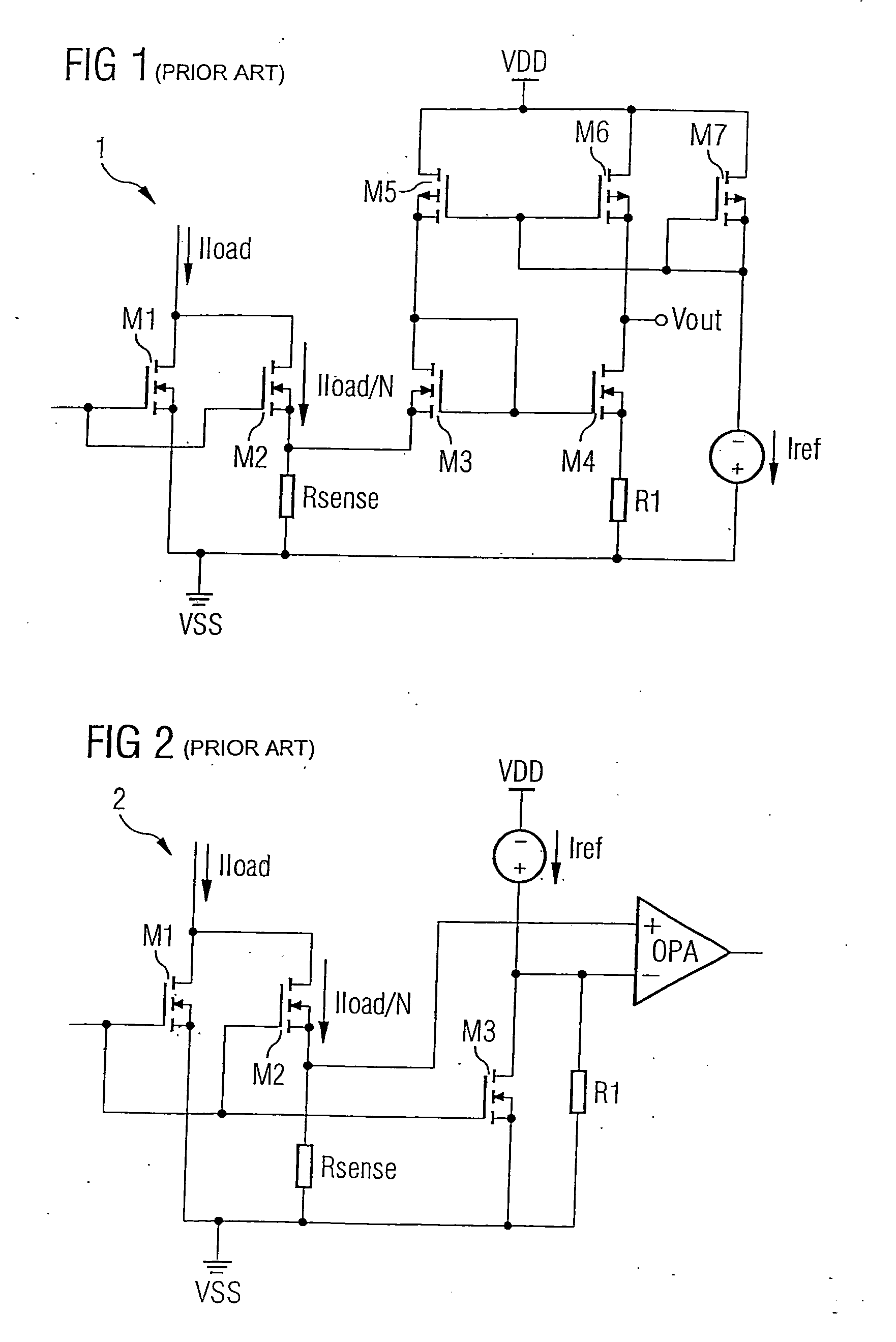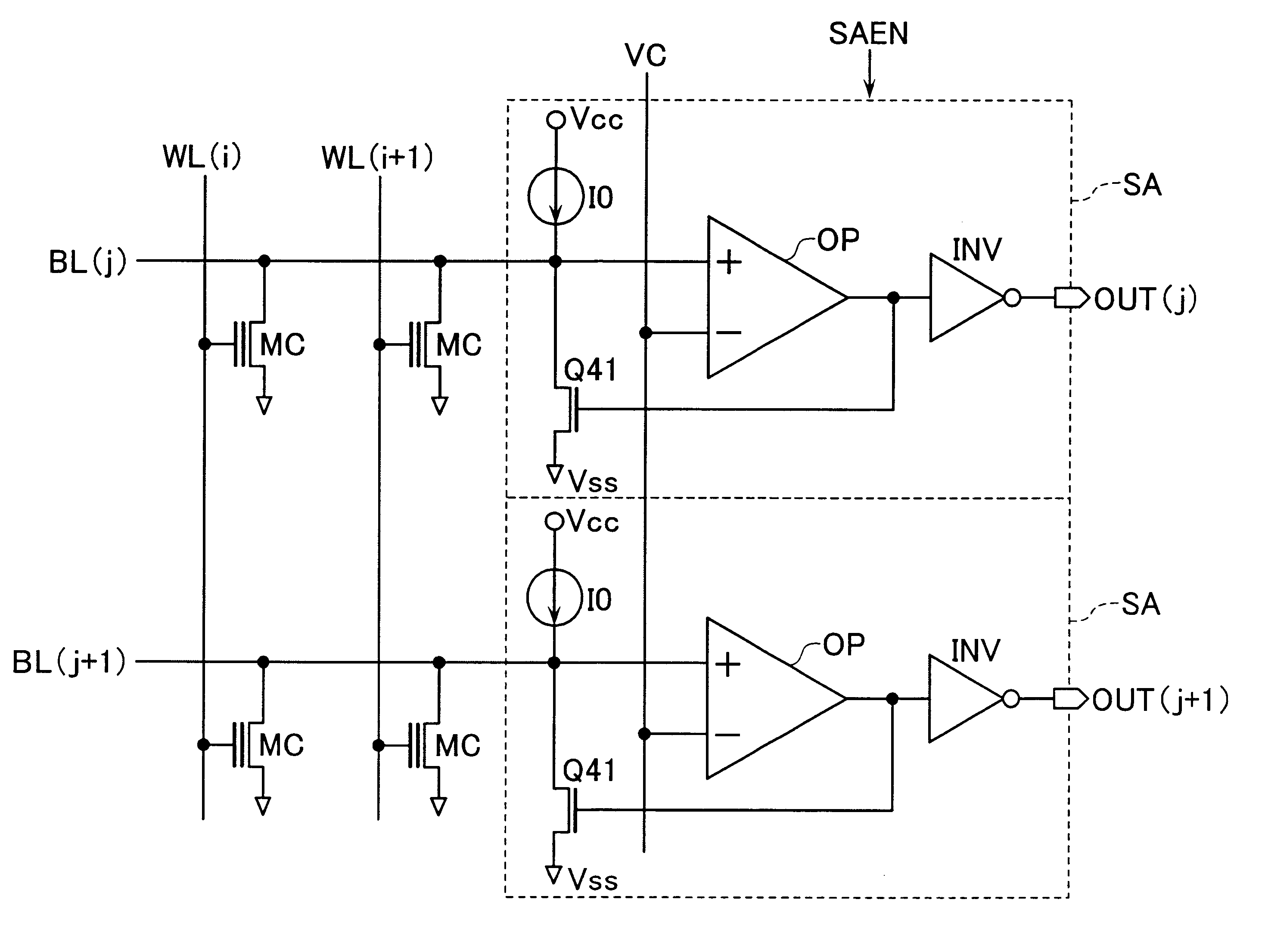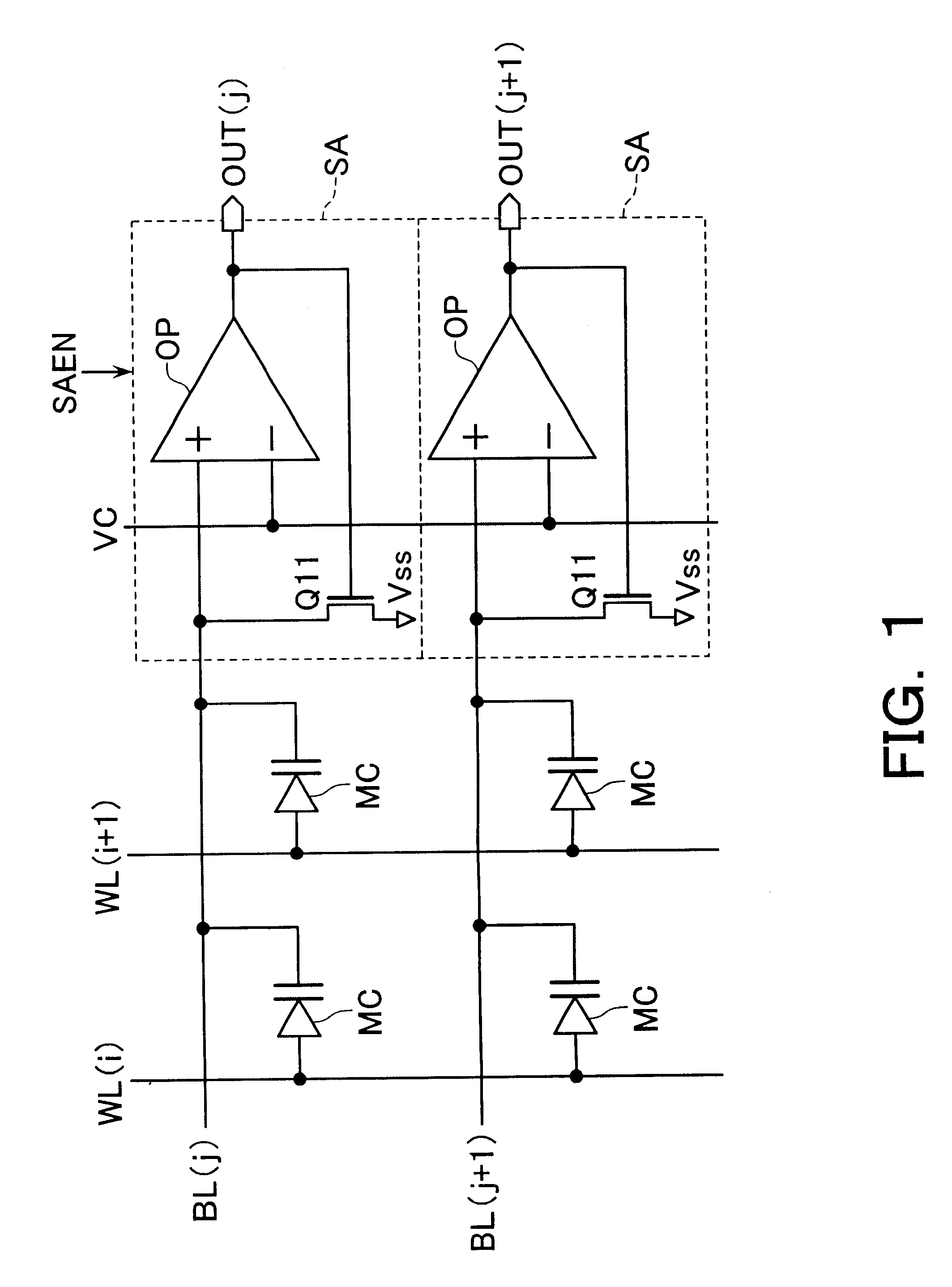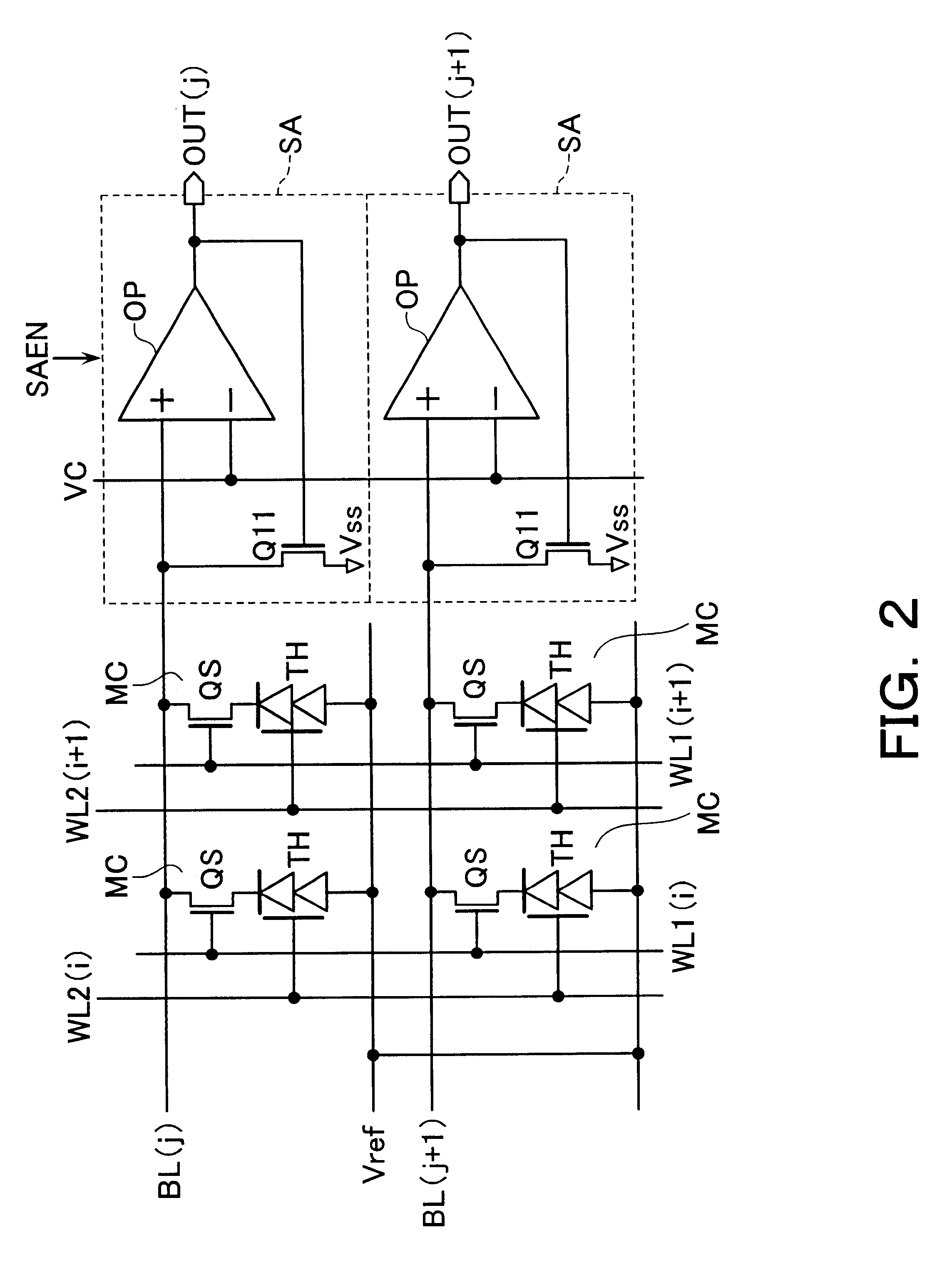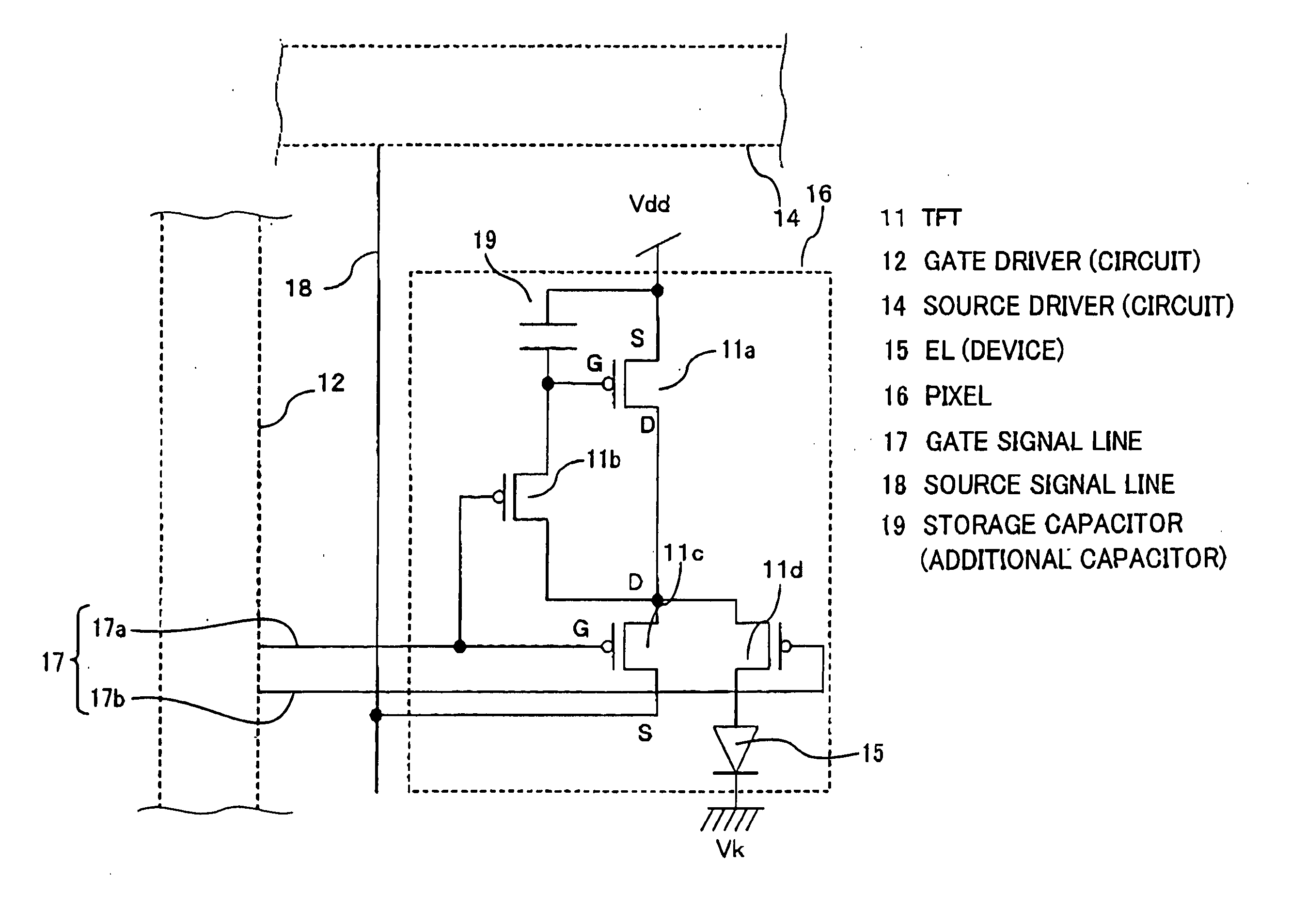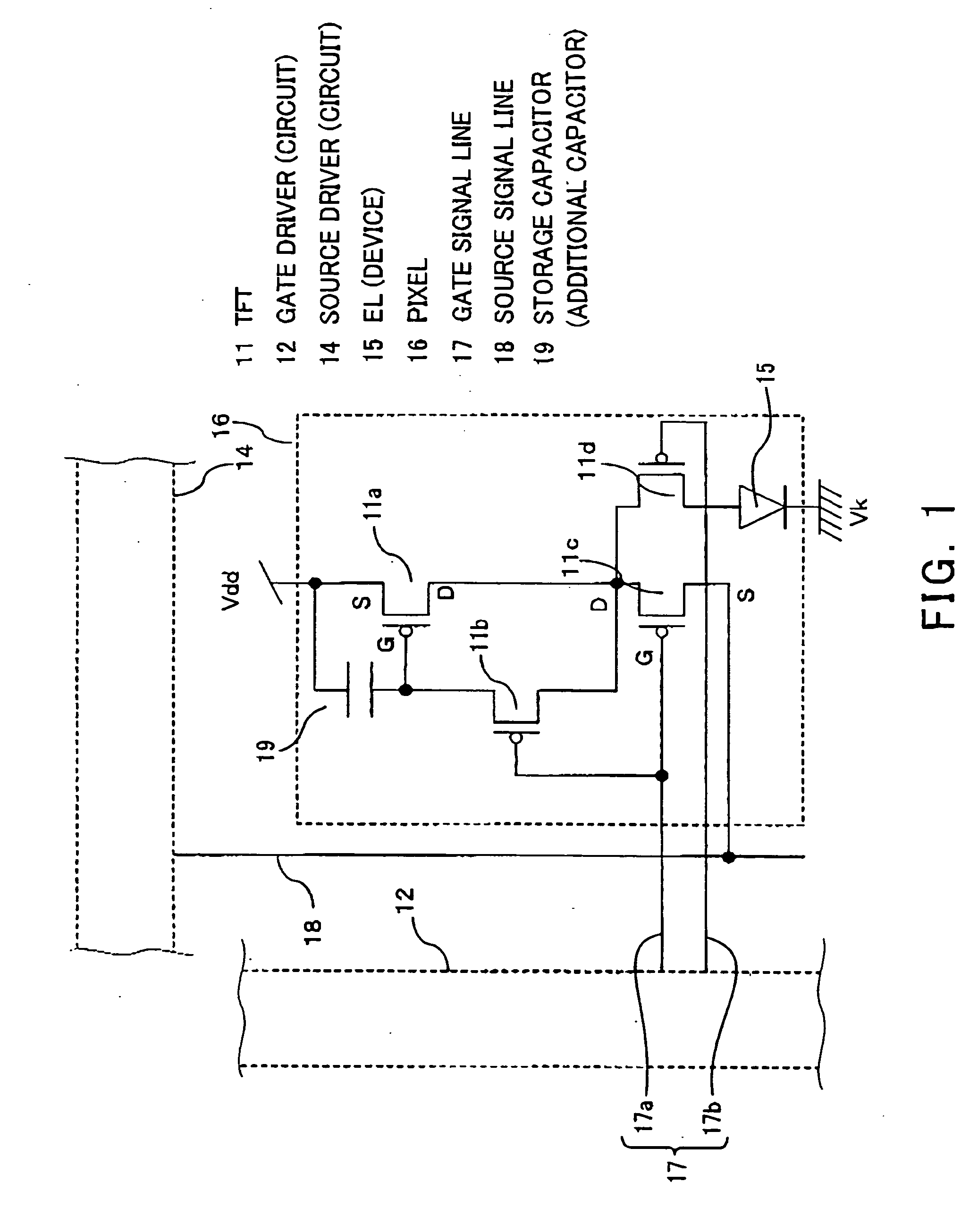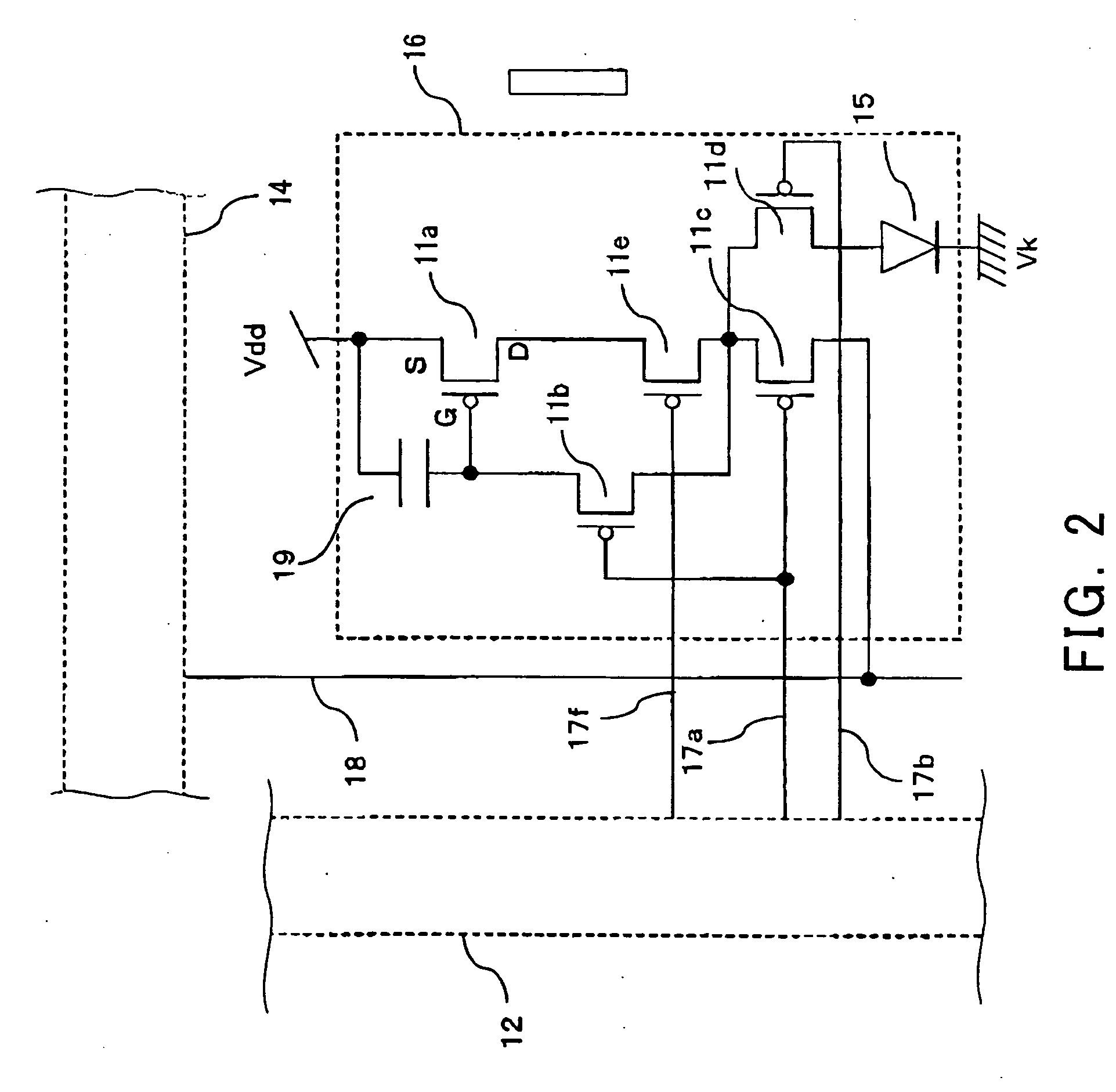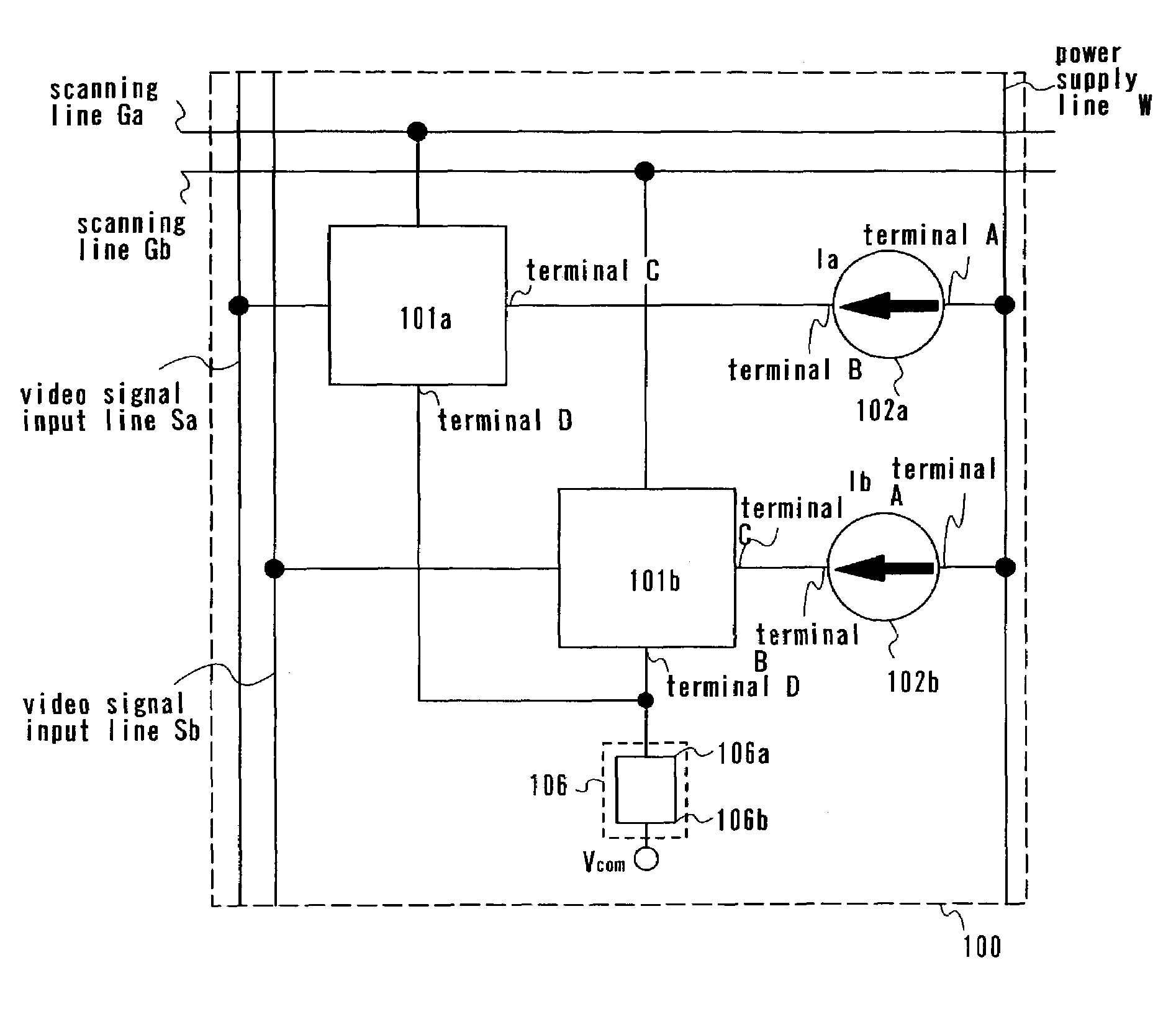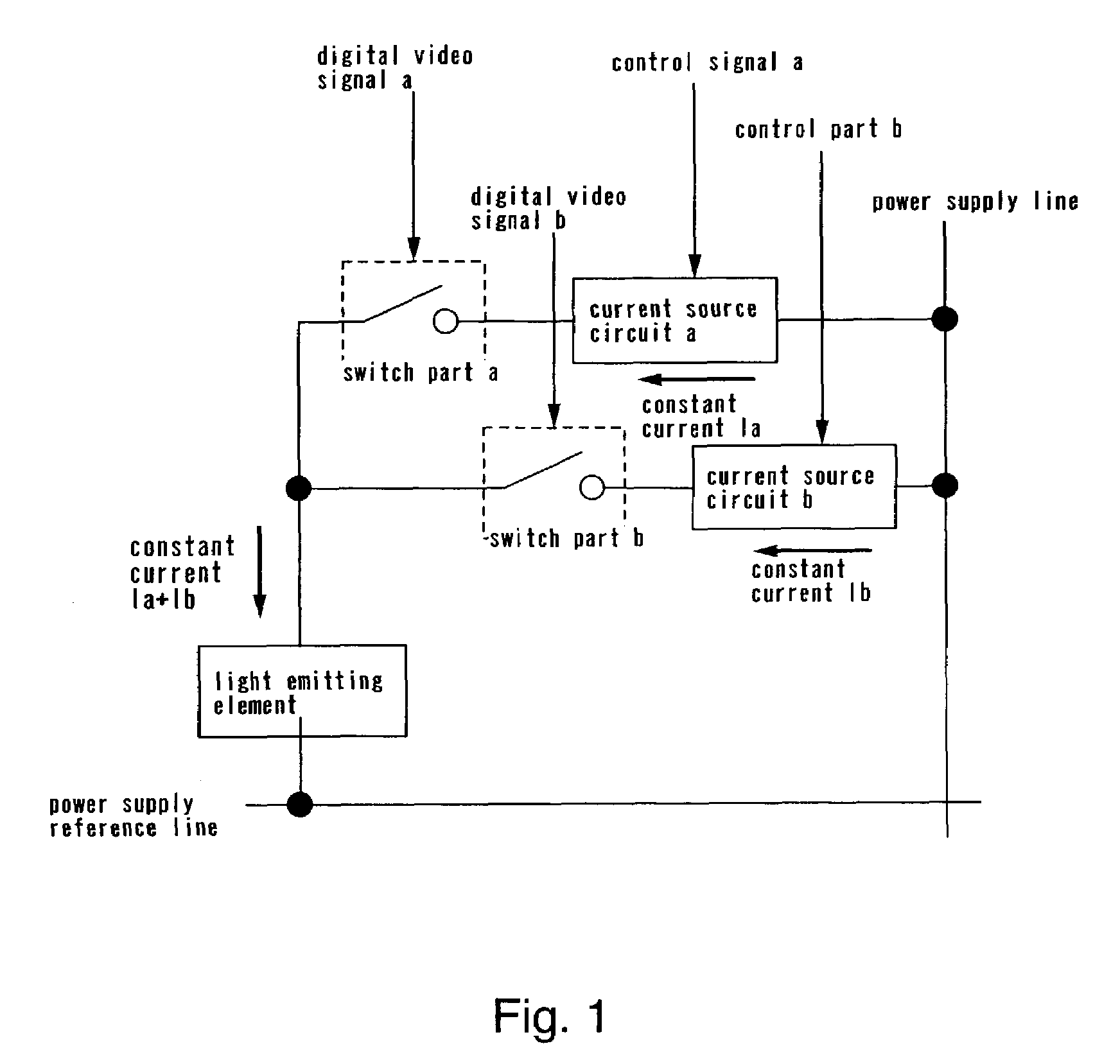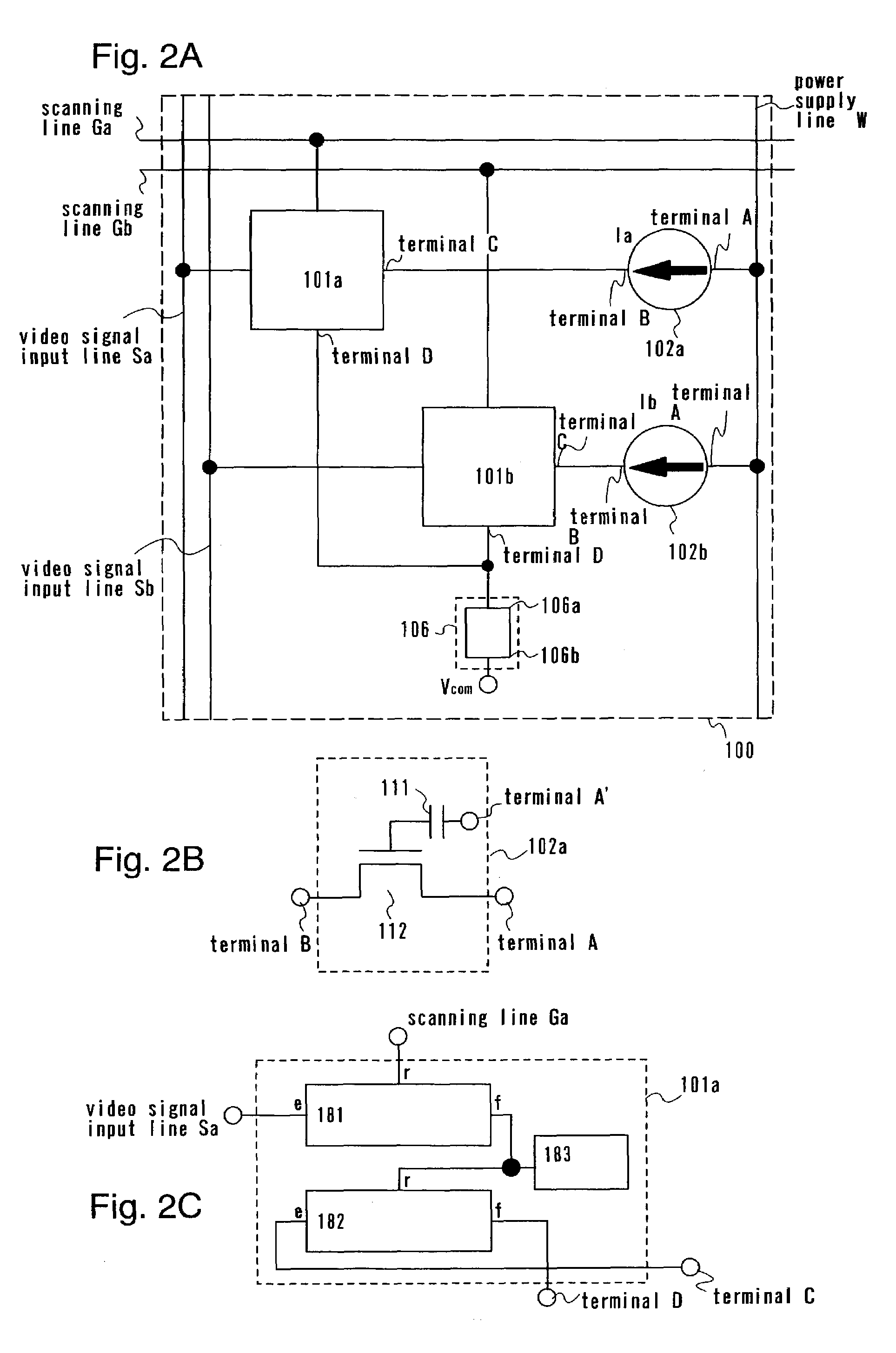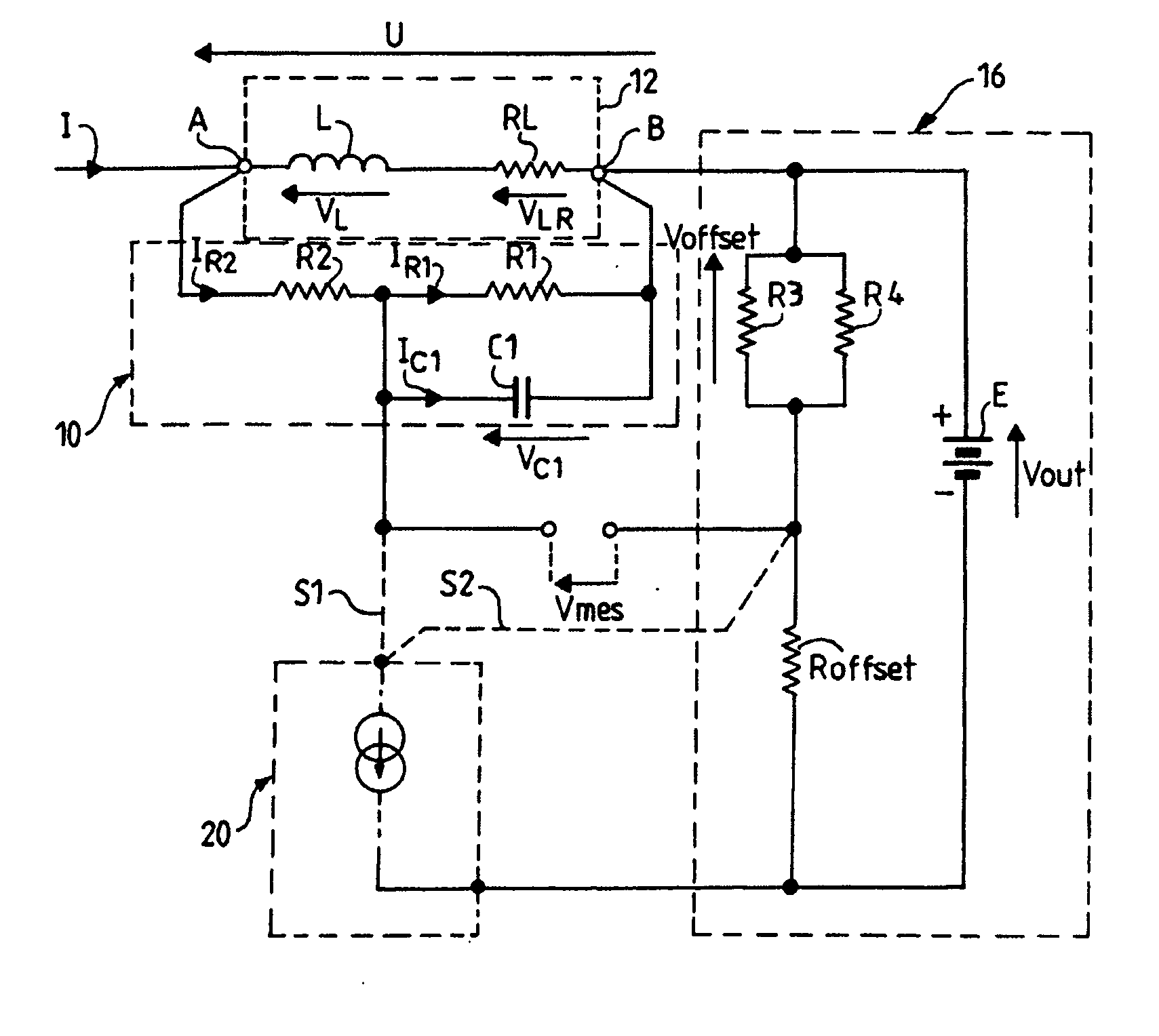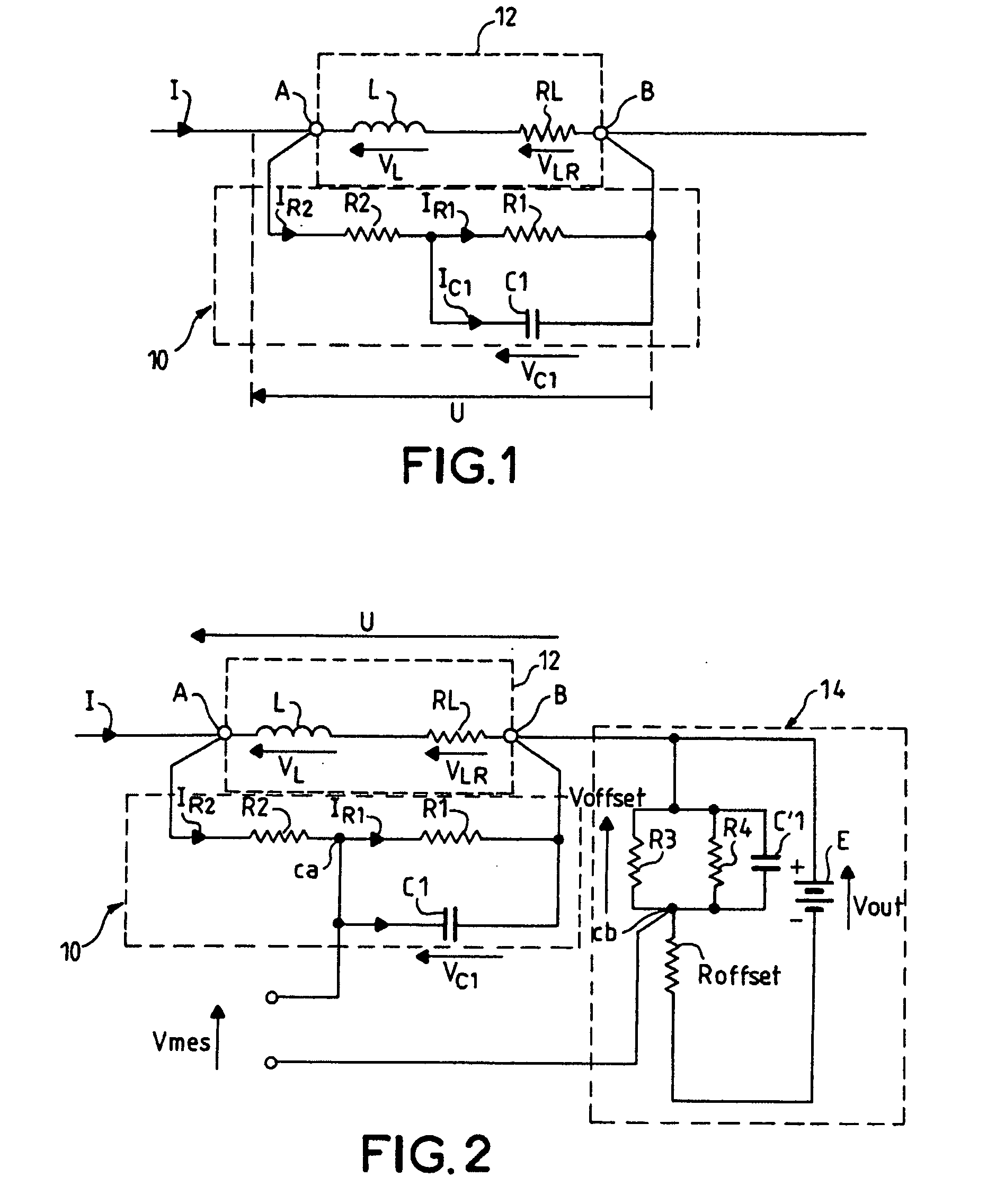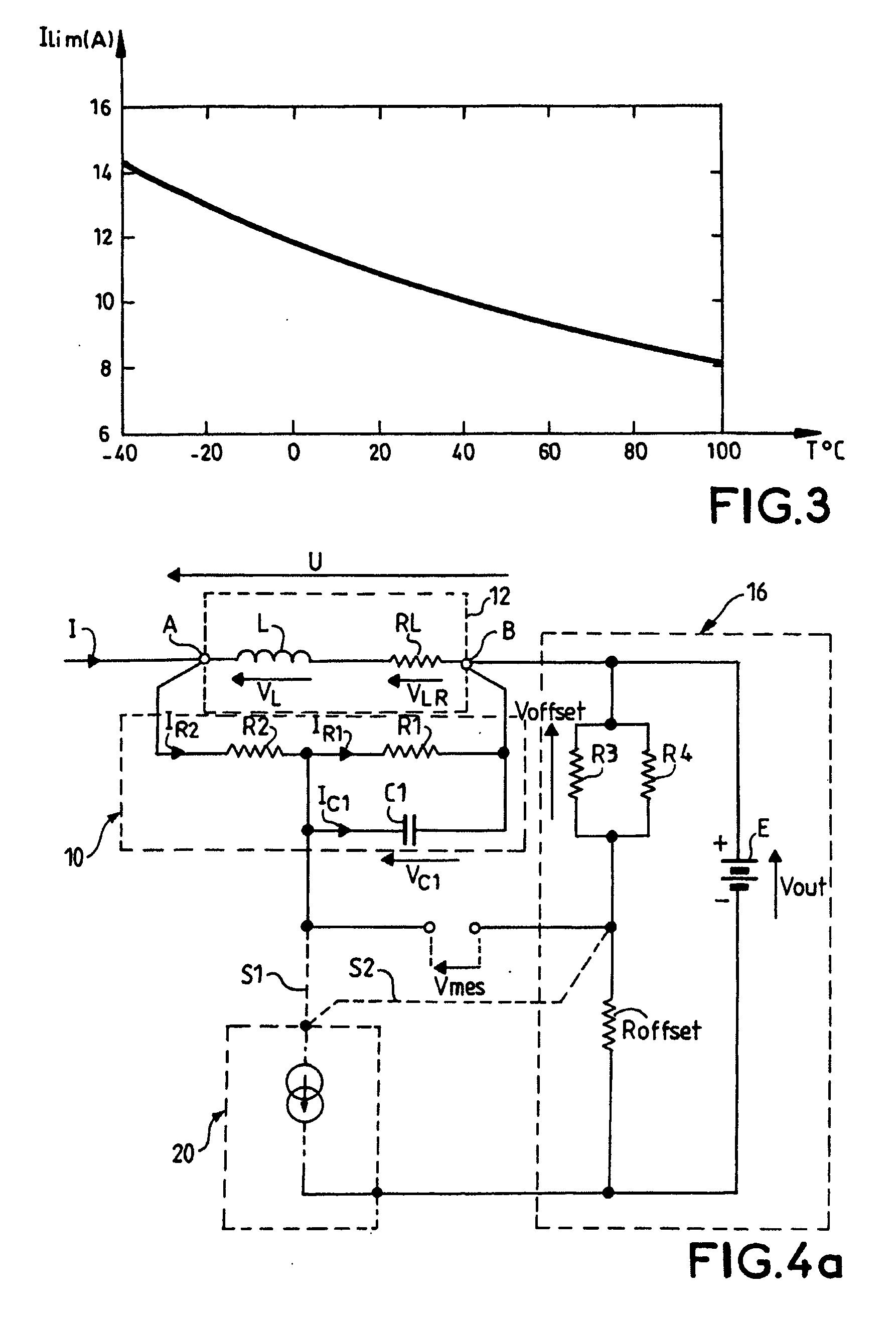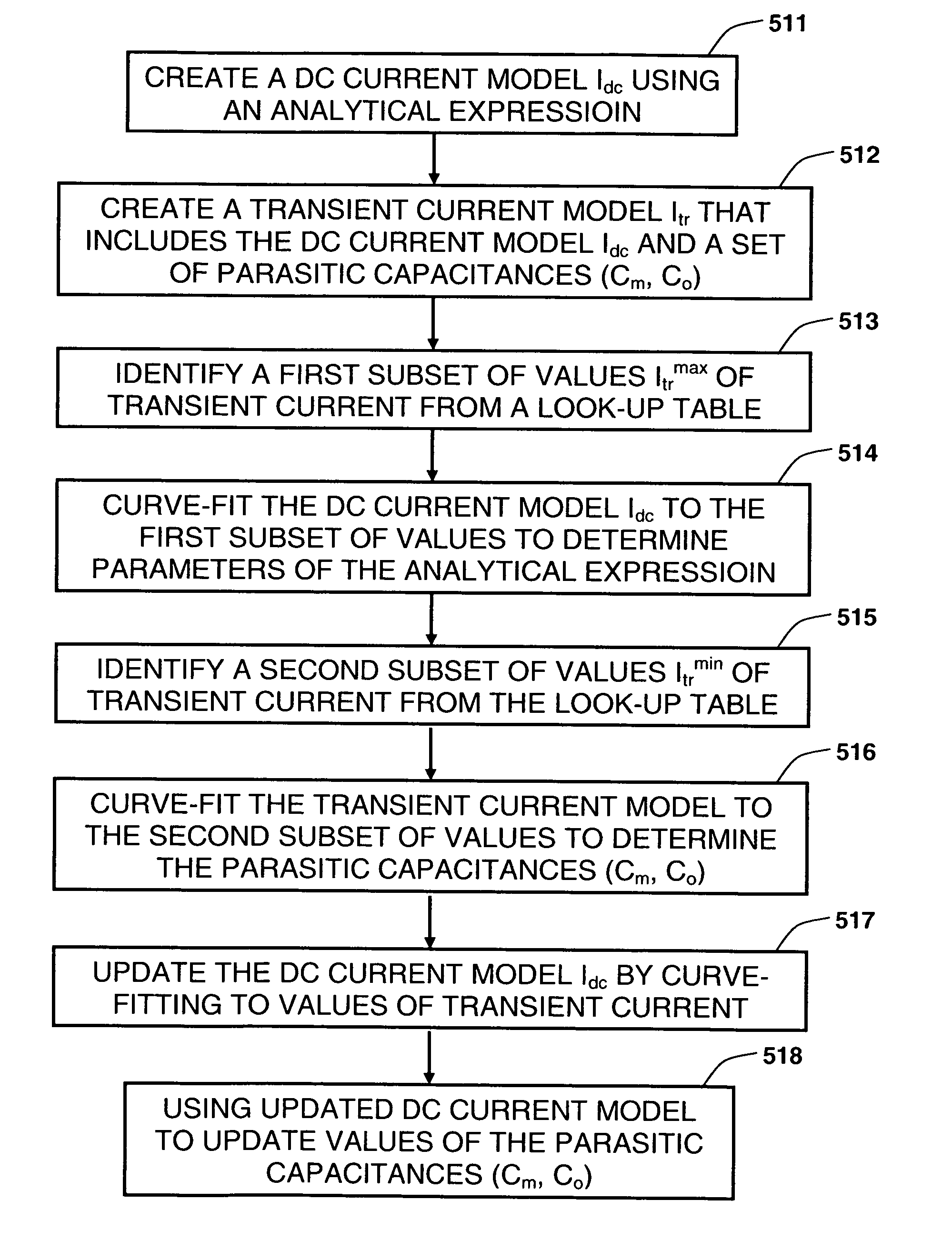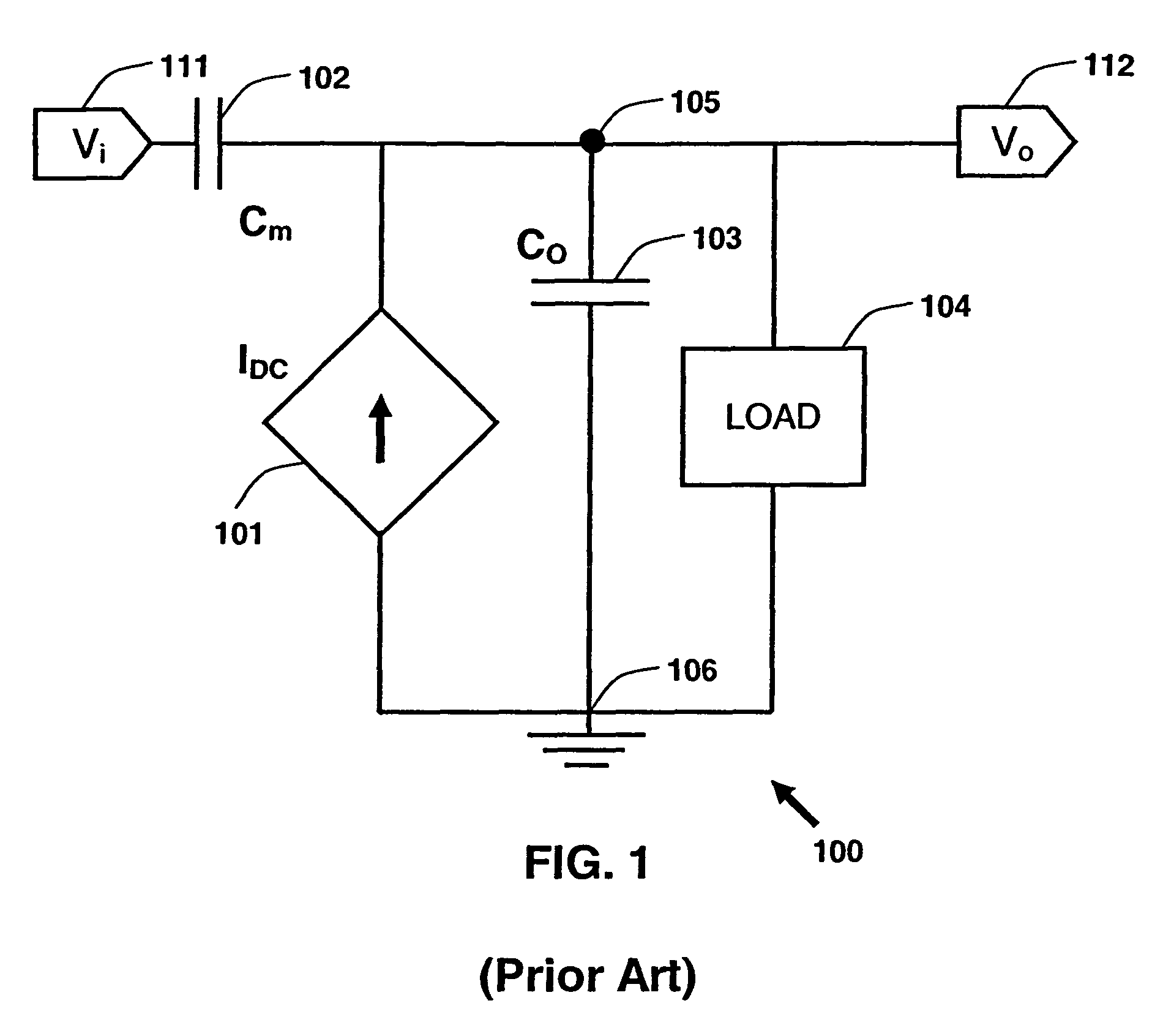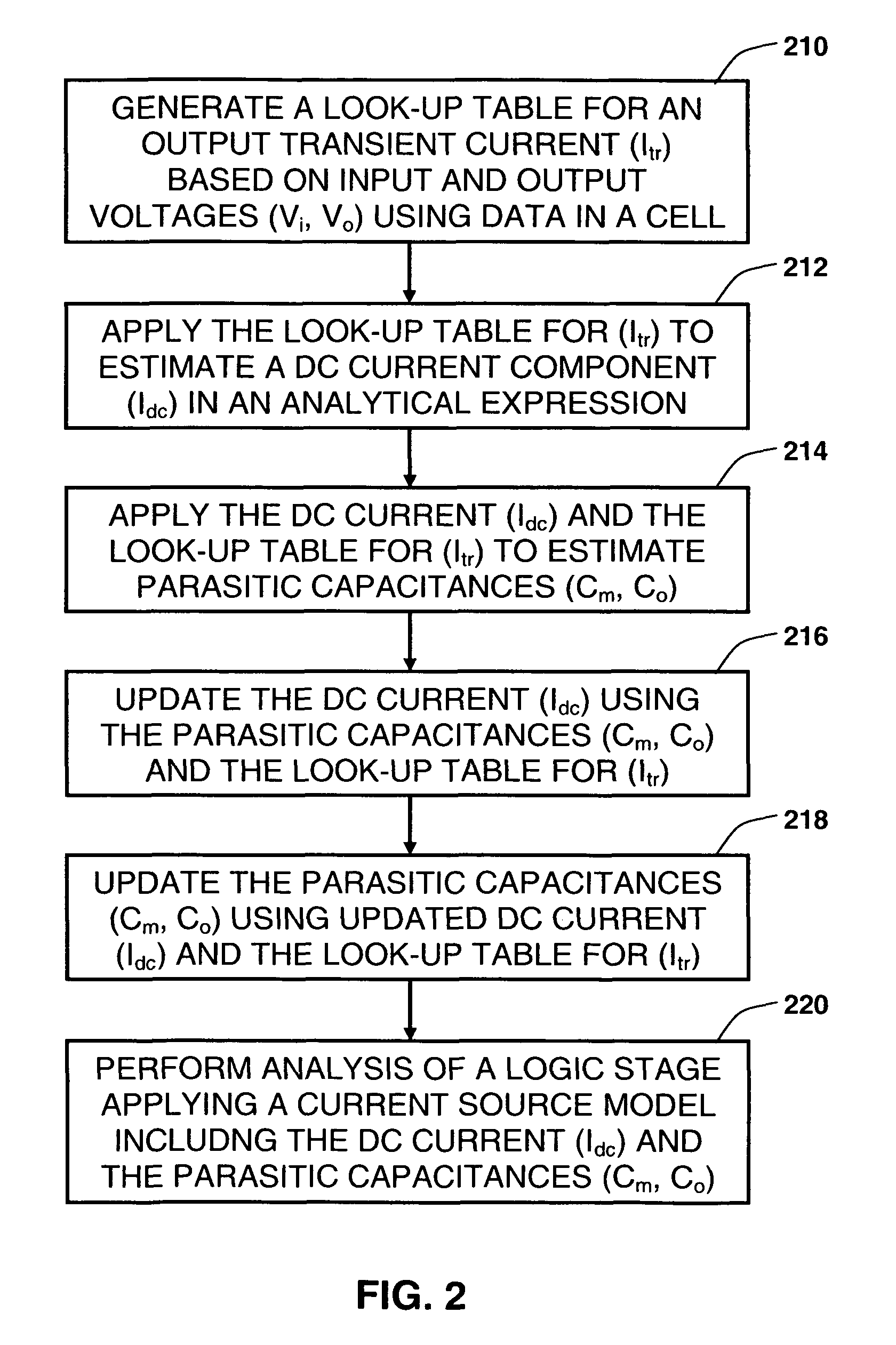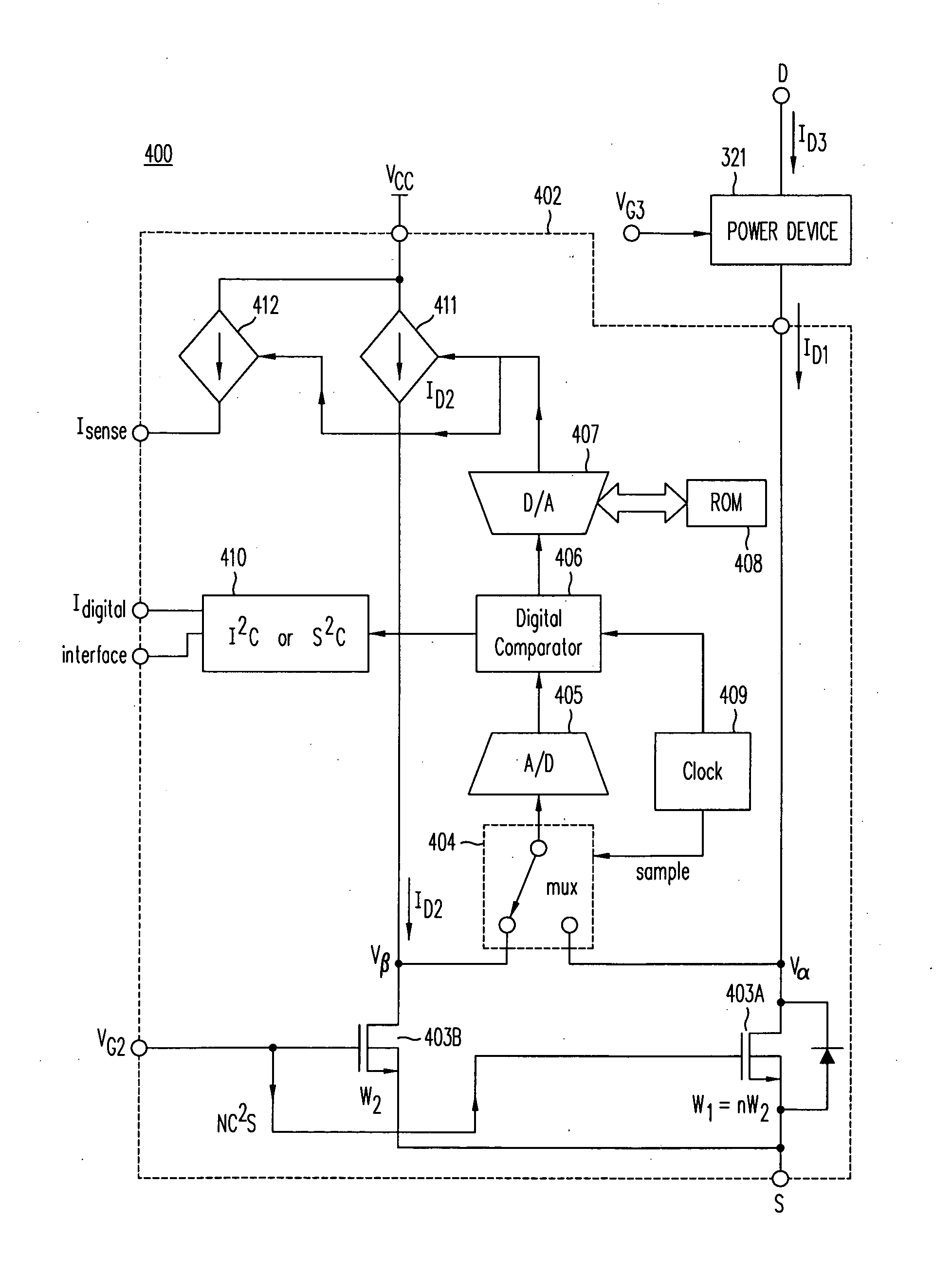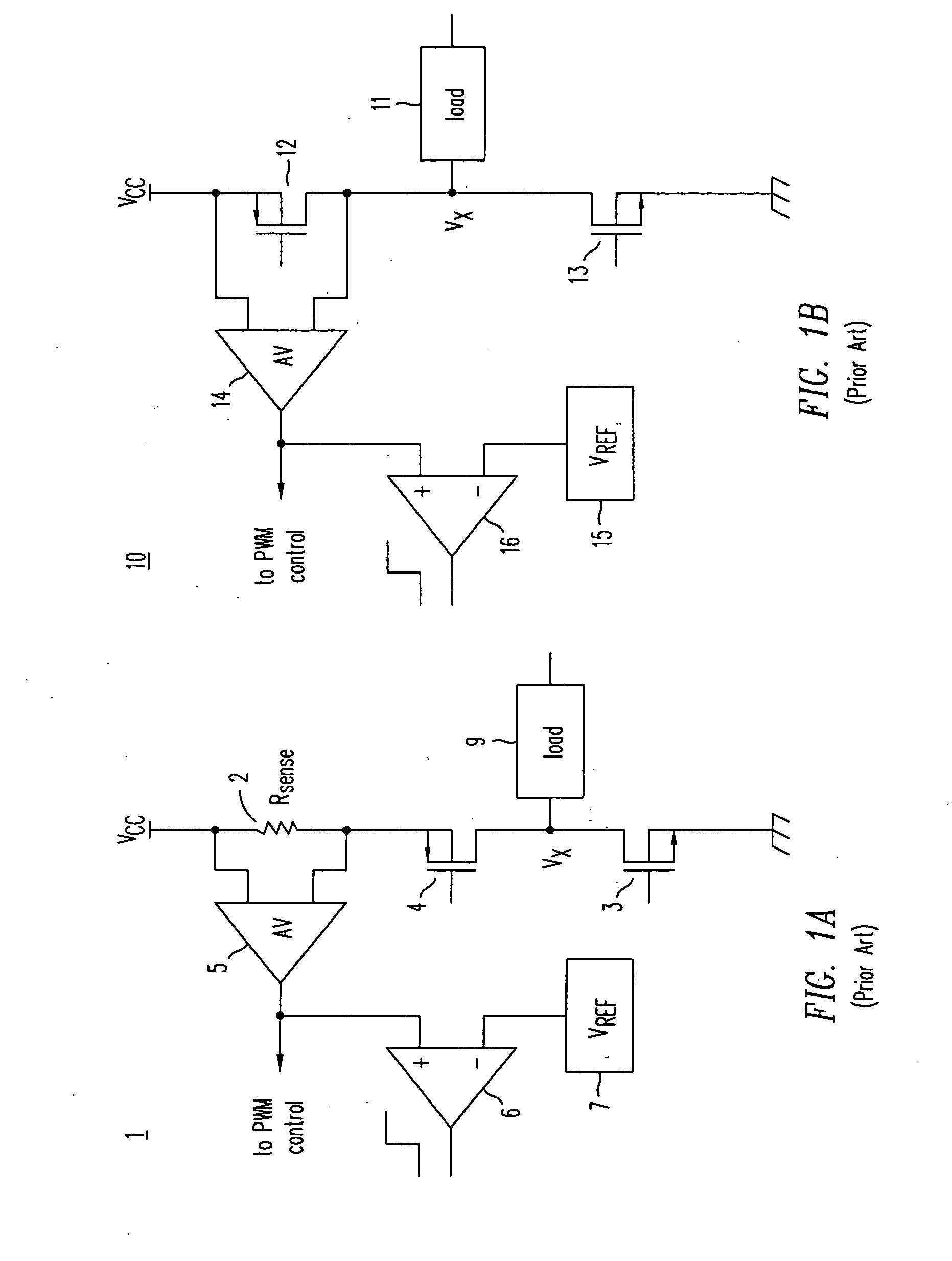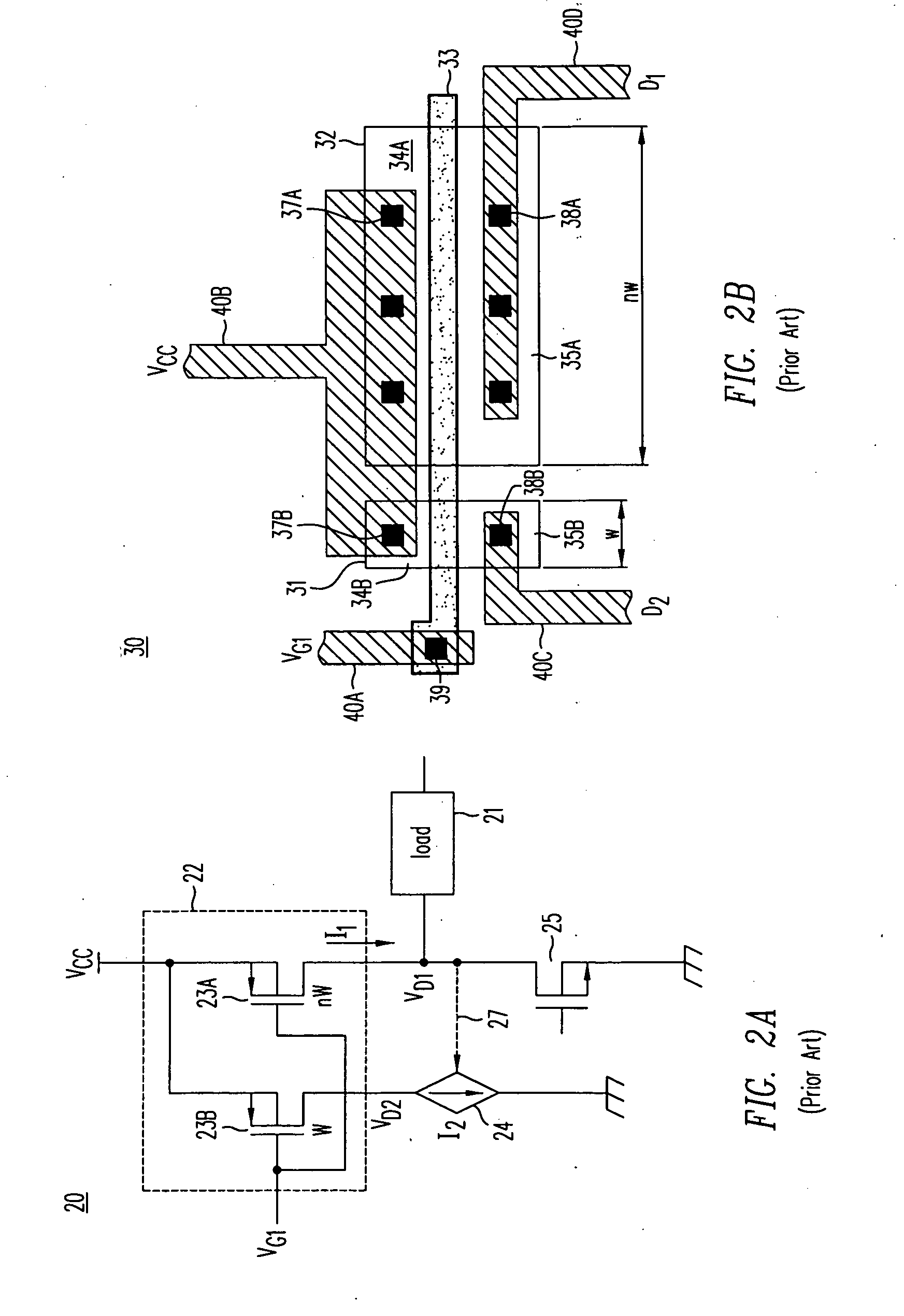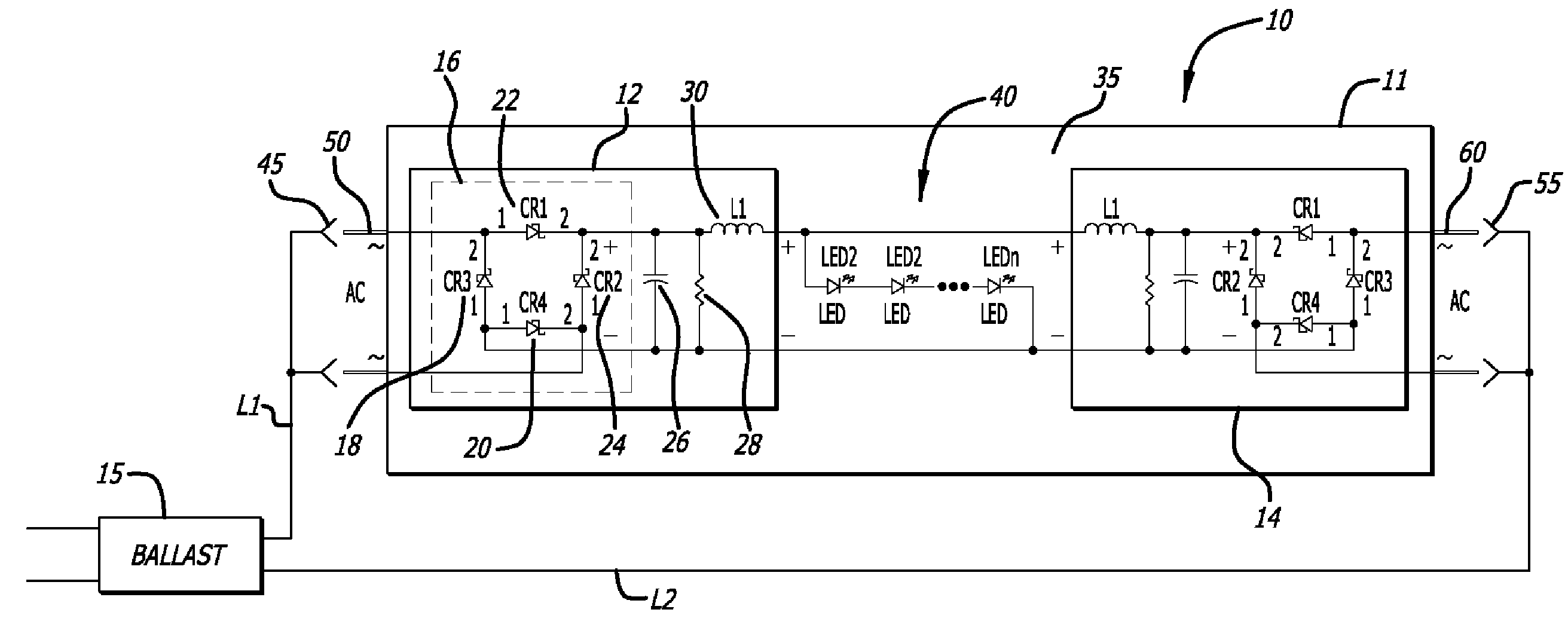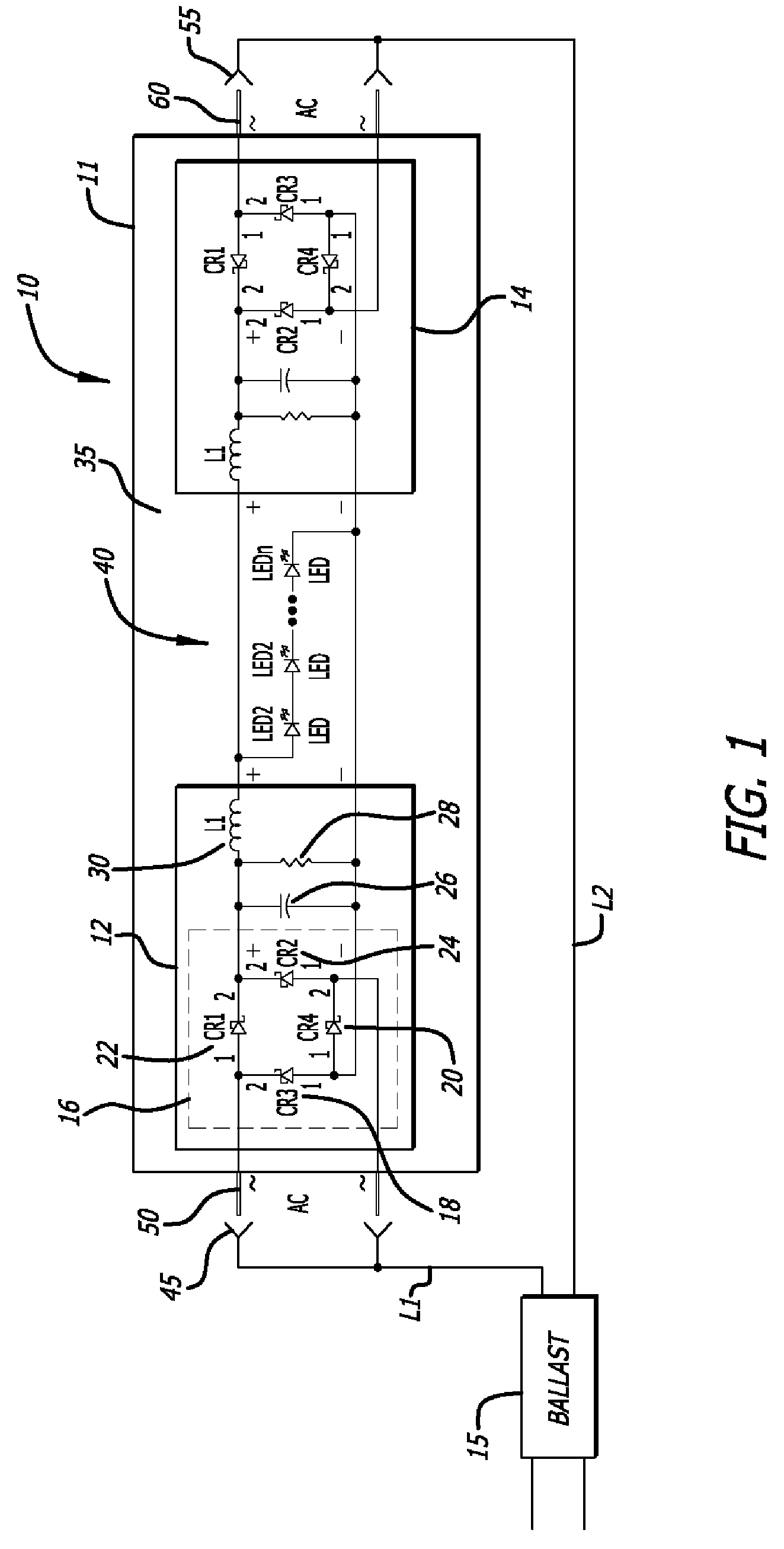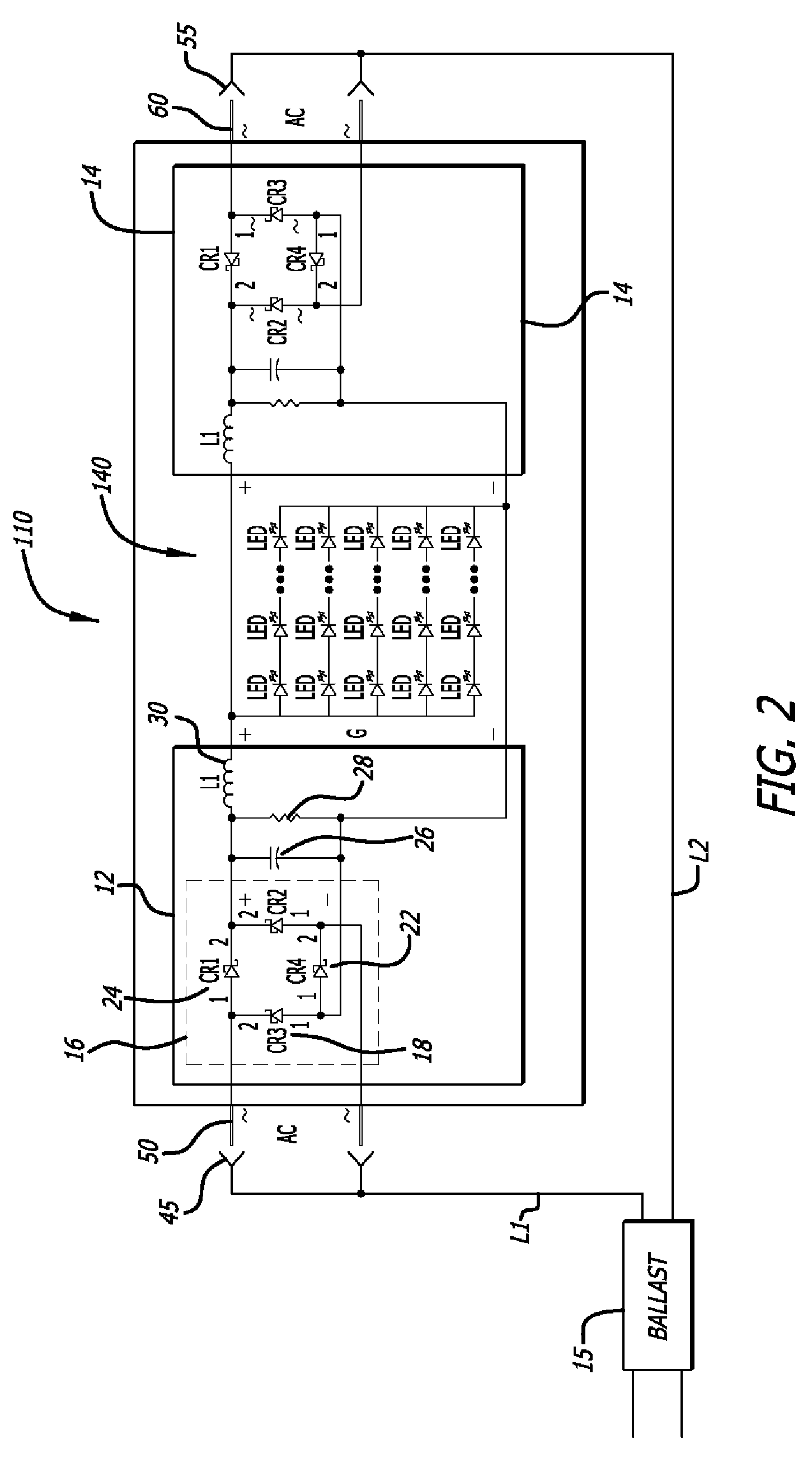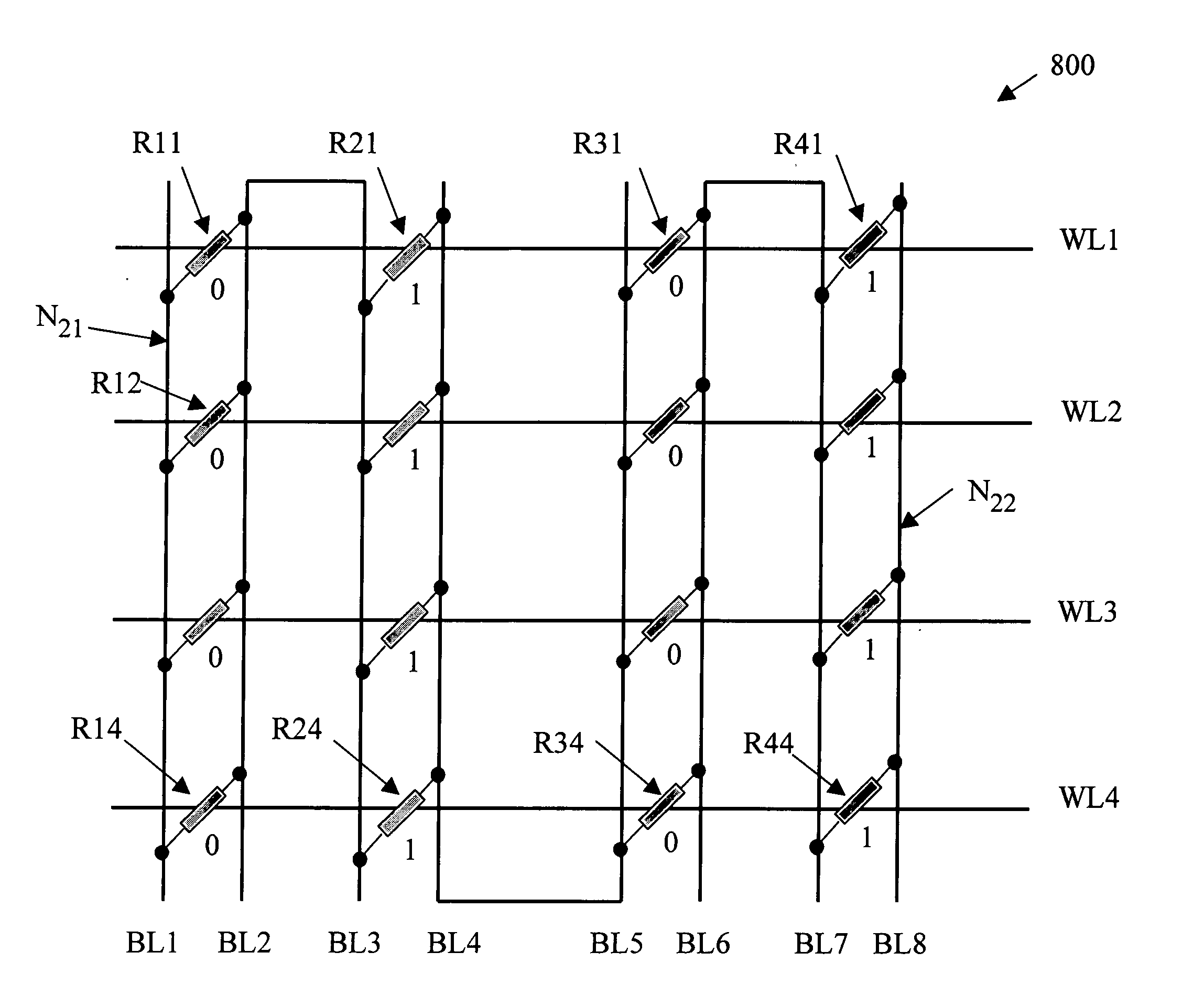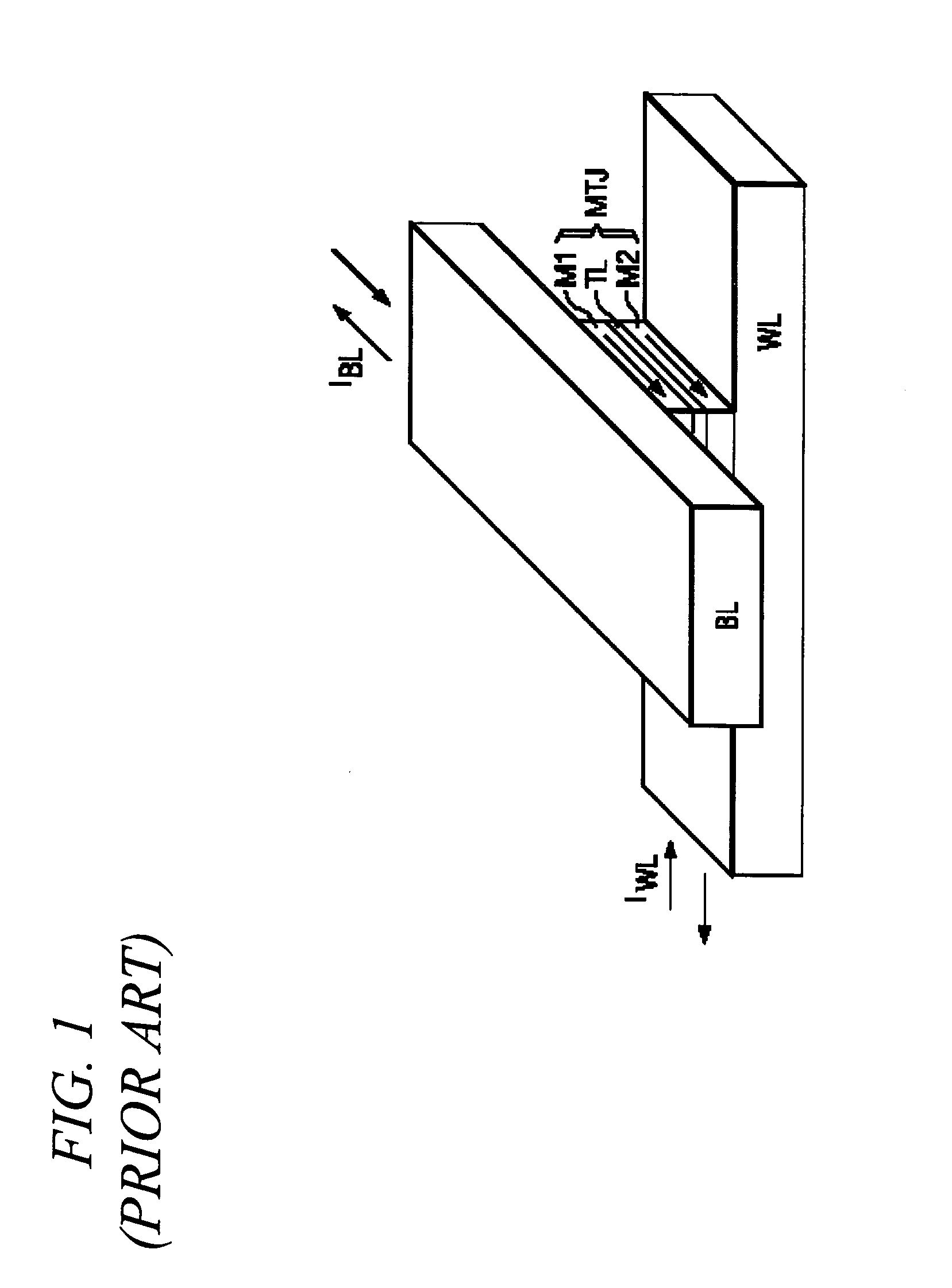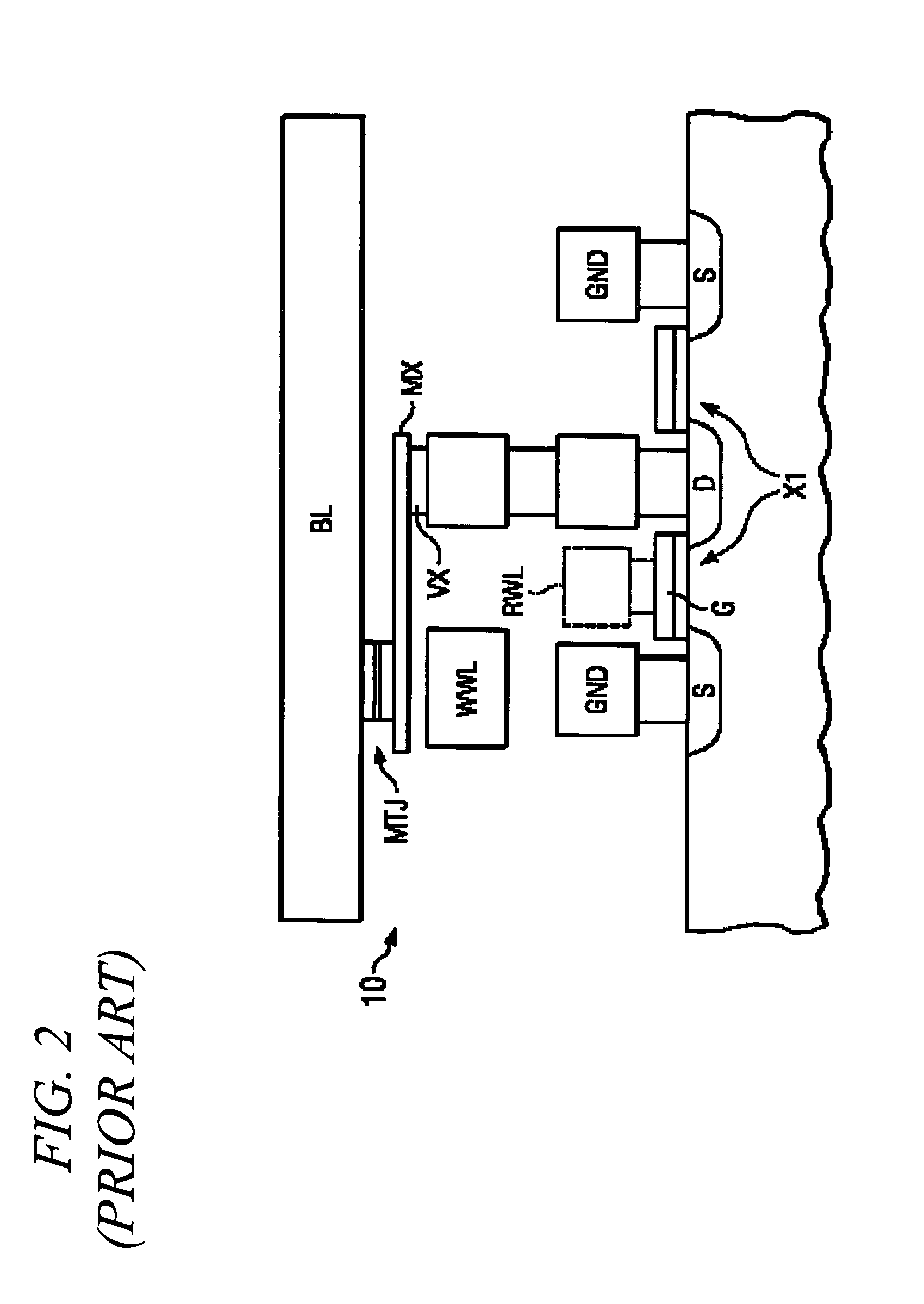Patents
Literature
Hiro is an intelligent assistant for R&D personnel, combined with Patent DNA, to facilitate innovative research.
15084 results about "Current source" patented technology
Efficacy Topic
Property
Owner
Technical Advancement
Application Domain
Technology Topic
Technology Field Word
Patent Country/Region
Patent Type
Patent Status
Application Year
Inventor
A current source is an electronic circuit that delivers or absorbs an electric current which is independent of the voltage across it. A current source is the dual of a voltage source. The term current sink is sometimes used for sources fed from a negative voltage supply. Figure 1 shows the schematic symbol for an ideal current source driving a resistive load. There are two types. An independent current source (or sink) delivers a constant current. A dependent current source delivers a current which is proportional to some other voltage or current in the circuit.
LED brightness control system for a wide-range of luminance control
ActiveUS6987787B1Improve the level ofReduce brightnessLaser detailsElectroluminescent light sourcesControl signalControl system
The LED brightness control system for a wide range of luminance control includes a brightness control module that provides a pulse width modulation (PWM) control signal and a peak current control signal. A pulse width modulation (PWM) converter circuit receives the PWM control signal and converts it to a PWM signal. A multiplier receives the PWM signal and the peak current control signal from the brightness control module and multiplies the same to provide a light emitting diode (LED) current control signal with a variable “on” time as well as variable “on” level. A voltage-controlled current source utilizes the LED current control signal and an LED current feedback signal for providing an LED current. An LED illuminator array receives the LED current. A current sensing element connected to the LED illuminator array for providing an LED current feedback signal representing LED peak current. The voltage-controlled current source controls a drive voltage to the LED illuminator array at a commanded level.
Owner:ROCKWELL COLLINS INC
System and method for adaptive current limit of a switching regulator
ActiveUS9099922B2Efficient power electronics conversionDc-dc conversionControl signalReference current
Owner:SILICON LAB INC
Electrosurgical instrument and method of use
ActiveUS7955331B2Effective “weld” in tissueAvoid flowSurgical instruments for heatingSurgical forcepsElectrical resistance and conductanceHigh intensity
A particular embodiment of the invention provides an electrosurgical working end for performing high strength welding of tissue comprising a body having a tissue contacting energy delivery surface. The body includes pixel portions and non-pixel portions distributed within the tissue contacting surface. The pixel portions comprise a positive temperature coefficient of resistance (PTCR) material with at least one pixel portion configured to switch Rf current on and off in the at least one pixel portion responsive to tissue temperature adjacent the at least one pixel portion. The pixel portions can be configured to be coupled to an Rf current source such as an Rf generator. The pixelated energy delivery surfaces are capable of highly localized modulation of Rf energy application to the engaged tissue to create high strength tissue welds.
Owner:ETHICON ENDO SURGERY INC
Memory device and method of operating same
An array of phase changing memory cells that includes a current source, a voltage sensor, a plurality of conductive bit lines electrically connected to the current source, a plurality of conductive word lines each electrically connected to a ground plane via a first resistor and to the voltage sensor, and a plurality of memory cells. Each memory cell is connected between one of the bit lines and one of the word lines and includes phase change memory material. One of the memory cells is selected by turning on switches just on the bit line and word line connected thereto, or by turning a switch connected in series between the corresponding bit and word lines, where the read current flows through the selected memory cell and the voltage sensor measures a voltage drop across the selected memory cell.
Owner:SILICON STORAGE TECHNOLOGY
El display panel and el display apparatus comprising it
InactiveUS20050057580A1Quality improvementSuppress mutationSolid-state devicesCathode-ray tube indicatorsDisplay deviceGate voltage
In a source driver (14) provided in an electroluminescent (EL) display device of the present invention, the gate voltage of a first-stage current source formed by a transistor (631) is applied to the gate of a transistor (632a) which is a second-stage current source situated next to the transistor (631) and, as a result, a current flowing through the transistor (632a) is transferred to a transistor (632b) which is a second-stage current source. In addition, the gate voltage of the transistor (632b) is applied to the gate of a transistor (633a) which is a third-stage current source situated next to the transistor (632b) and, as a result, a current flowing through the transistor (633a) is transferred to a transistor (633b) which is a third-stage current source. The gate of the transistor (633b) is provided with a large number of current sources (634) corresponding to the number of bits required.
Owner:PANASONIC CORP
Method and apparatus of using magnetic material with residual magnetization in transient electromagnetic measurement
ActiveUS20050189945A1Facilitates highly effective generationQuick switchElectric/magnetic detection for well-loggingAcoustic wave reradiationWell loggingTransmitter antenna
Owner:BAKER HUGHES INC
Transformerless static voltage inverter for battery systems
InactiveUS7046531B2Improve efficiencyReduce weightDc source parallel operationDc-ac conversion without reversalDc currentVoltage inverter
A static inverter for a battery of elementary, current sources or cells electrically in series and a number N of intermediate voltage taps along the chain of elementary DC current sources, wherein the number of elementary cells comprised between an intermediate tap and another intermediate tap adjacent to it or an end terminal of said chain is proportionate to the amplitude in the respective phase interval of a number N of discretization phases of the waveform of the AC voltage to be output in a quadrant; is implemented by arranging for: a number N of power switches each connecting a respective intermediate tap and a first end terminal of a first polarity of said chain of elementary cells in series to a common circuit node of said first polarity; an output bridge stage constituted by at least four power switches controlled in pairs for switching the current paths through the bridge stage, having a first pair of nodes coupled to said common circuit node of said first plurality and to the other end terminal of polarity opposite to said first polarity of said chain of elementary cells, respectively, and a second pair of nodes constituting an AC output; and a control circuit sequentially and cyclically turning on, in a continuous manner, one switch at the time of said N switches; each for a phase interval of 1 / (4N) times the period of said AC output, and alternately tuning on by pairs said four power switches of said output bridge stage at every half a period.
Owner:SQUIRREL HLDG
Control of inductive power transfer pickups
InactiveUS6483202B1Reliable fail-safe control featureDecrease in saturation capacityRail devicesElectromagnetic wave systemDc currentEngineering
Secondary resonant pickup coils (102) used in loosely coupled inductive power transfer systems, with resonating capacitors (902) have high Q and could support large circulating currents which may destroy components. A current limit or "safety valve" uses an inductor designed to enter saturation at predetermined resonating currents somewhat above normal working levels. Saturation is immediate and passive. The constant-current characteristic of a loosely coupled, controlled pickup means that if the saturable section is shared by coupling flux and by leakage flux, then on saturation the current source is terminated in the saturated inductor, and little detuning from resonance occurs. Alternatively an external saturable inductor (1101, 1102) may be introduced within the resonant circuit (102 and 902), to detune the circuit away from the system frequency. Alternatively DC current may be passed through a winding to increase saturation of a saturable part of a core. As a result, a fail-safe pickup offering a voltage-limited constant-current output is provided.
Owner:AUCKLAND UNISERVICES LTD
Data voltage current drive amoled pixel circuit
InactiveUS20030095087A1Facilitates a reverse bias of a scanned OLED arrayEasy to operateCathode-ray tube indicatorsInput/output processes for data processingHemt circuitsLight-emitting diode
There is provided a circuit for driving an organic light emitting diode (OLED). The circuit includes a current source for providing current to a first terminal of the OLED, and a generator for providing a variable voltage signal to a second terminal of the OLED to facilitate control of the current.
Owner:INNOLUX CORP
Correction of aging in amoled display
The data line voltage on the data line of the AMOLED sub-pixels is measured while the OLED is being driven by a reference current, in order to determine the age of the OLED in the sub-pixel. The pixel transistor serves as a current source for driving the OLED in the sub-pixel with the reference current. The data line voltage is substantially equal to the forward voltage VF(aged) of the aged OLED being driven at the reference current. The forward voltage VF (un-aged) of a reference (un-aged) OLED sub-pixel also measured at the reference current, and is subtracted from the measured OLED diode forward voltage VF (aged) to obtain their difference ΔVF=VF(aged)−VF(un-aged). ΔVF is an indicator of the age of the OLED in the sub-pixel, and is used as an index to a look-up-table that stores the corresponding aging offset data for generating the incremental pixel current needed to maintain constant luminance in the aged OLED pixel.
Owner:SILICONFILE TECH INC
Display apparatus and display control method
ActiveUS20050068270A1Peak luminance can be increasedDisplay luminance can be enhancedCathode-ray tube indicatorsInput/output processes for data processingDriven elementLight emission
The present invention comprises: a display unit having a plurality of pixels arranged therein, each pixel including an organic EL element 24, a switching TFT, and a drive TFT; a data signal drive circuit for receiving image data for each frame period and outputting an image signal based on the image data; a scanning signal drive circuit for outputting a scanning signal for controlling a timing at which the switching element of each of the plurality of pixels receives the image signal; and a current source (a light emission power supply unit and a cathode potential control circuit together) for outputting a current supplied to the light emitting unit of each of the plurality of pixels through its drive element; wherein the current source modulates the value of the output current within each frame period.
Owner:SAMSUNG DISPLAY CO LTD +1
Inductively powered battery charger
InactiveUS6100663AExtended service lifeImprove reliabilityCharge equalisation circuitElectromagnetic wave systemElectrical conductorEngineering
PCT No. PCT / NZ97 / 00053 Sec. 371 Date Nov. 3, 1998 Sec. 102(e) Date Nov. 3, 1998 PCT Filed May 2, 1997 PCT Pub. No. WO97 / 42695 PCT Pub. Date Nov. 13, 1997Loosely coupled inductive power for charging batteries is rectified from a first power pickup winding and the resulting current source is connected to a battery unit. Each current source is controlled by shorting a second resonant winding. Battery banks may be charged using multiple isolated position-tolerant pickups independently controlled according to the condition of the connected battery unit and by overall commands communicated over an isolated link. The battery unit may be a single cell. In a self-stabilizing bank or monoblock a primary inductive conductor is energized using all the cells, individual cells are separately monitored by control means and any below-average cell can be individually charged from the inductive conductor, thus correcting between-cell variations. The charge in all cells within a bank can be held within 30% to 70% of full charge and prevented from drifting towards full or empty during repetitive charge and discharge times.
Owner:AUCKLAND UNISERVICES LTD
System and Method for Treating Nausea and Vomiting by Vagus Nerve Stimulation
ActiveUS20080208266A1Relieve nauseaReduce vomitingInternal electrodesImplantable neurostimulatorsIntestinal structureAbdomen
A system and method for treating nausea and vomiting are provided, including one or more electrodes (10, 12) applied on or under the skin, the electrodes being connected to an external current source (34). The electrodes can be implanted under the skin and connect to internal stimulator electronics (22), which can form a magnetic inductive link to the external current source (34). Alternatively, the electrodes can be placed on the skin and directly linked by wires to the external current source. As a further alternative, the vagus nerve can be directly stimulated in the neck, or the esophagus, stomach, duodenum, or intestines can be directly stimulated by magnetic stimulation. The electrodes can stimulate the vagus nerve in the neck to reduce nausea and vomiting, or can be arranged near the chest or abdomen, so as to stimulate the esophagus, stomach, duodenum or intestines. Because the current source is provided outside the body, it is not necessary to implant batteries or another power supply in the body.
Owner:THE JOHN HOPKINS UNIV SCHOOL OF MEDICINE
Data voltage current drive amoled pixel circuit
InactiveUS7071932B2Threshold voltage shift is minimizedMinimizes stress effectCathode-ray tube indicatorsInput/output processes for data processingHemt circuitsEngineering
There is provided a circuit for driving an organic light emitting diode (OLED). The circuit includes a current source for providing current to a first terminal of the OLED, and a generator for providing a variable voltage signal to a second terminal of the OLED to facilitate control of the current.
Owner:INNOLUX CORP
Electrosurgical method using laterally arranged active electrode
InactiveUS6960204B2Control depthReducing power deliveryHeart valvesDiagnosticsActive electrodeElectrode array
An electrosurgical probe comprises a shaft having an electrode array (12) at its distal end and a connector at its proximal end. The array (12) includes a plurality of isolated electrode terminals, and an electrosurgical power supply (28) is provided with a multiplicity of independently limited or controlled current sources and a connector. The electrosurgical probe and the power supply may be connected through their respective connectors so that the independent current sources are connected to individual electric terminals. By applying very high frequency electrical energy to the electrode array, target tissue may be cut or ablated while heat dissipation through low impedance paths, such as blood and normal saline, will be minimized.
Owner:ARTHROCARE
Photovoltaic power plant with distributed DC-to-DC power converters
A solar photovoltaic plant is disclosed where a number of distributed DC-to-DC converters are used in conjunction with a central DC-to-AC converter. Each DC-to-DC converter is dedicated to a portion of the photovoltaic array and tracks the maximum power point voltage thereof. The DC-to-DC converters also boost the photovoltaic voltage and regulate a DC output current for transmission to the central DC-to-AC converter. Five distinct advantages are had over the prior art. First, efficiencies in intra-field power collection are greatly improved by transferring power at higher DC voltages. Second, the number of independent photovoltaic maximum power point trackers in the power plant can be increased, in a cost effective manner, to optimize the overall photovoltaic array energy harvest. Third, each DC-to-DC converter output “looks” like a current source at the input of the DC-to-AC converter and therefore can be easily paralleled. Fourth, the current source nature of the DC-to-DC converter outputs enables the DC-to-AC converter to operate with a minimum, fixed DC bus voltage to provide maximum DC-to-AC power conversion efficiencies. And fifth, each distributed DC-to-DC converter can isolate a faulted portion of the photovoltaic array while the remainder of the array continues producing power.
Owner:PARKER INTANGIBLES LLC
Highly efficient series string LED driver with individual LED control
ActiveUS20070257623A1Reduce power consumptionIncrease brightnessElectrical apparatusElectroluminescent light sourcesControl signalEngineering
A current source generates, with high efficiency, a current that is substantially constant over a wide range of output voltages. This current is injected into the first end of a series-connected string (hereinafter referred to as string) of LEDs, with the second end of the string connected through a resistor to ground. The voltage developed across this resistor, which is a measure of current flow in the series string, is fed back to the current source, wherein feedback maintains nearly constant current output over a wide range of output voltages. A switch, such as a field effect transistor (FET) is placed in parallel with each LED in the string. A level shift gate driver couples a pulse width modulated control signal to the gate of each FET. When the FET across a particular LED is on, substantially all the current flows through the FET rather than the LED, and little or no light is emitted. Because the one resistance of the FET is very low, the power dissipated in the FET (current squared times resistance) is also very low. With the FET turned on, the forward voltage drop of the LED it is controlling drops to near zero, since little current is flowing through the LED. However, because the current source is designed to provide constant current over a wide range of output voltages, the current flow through the other LEDs in the series string changes little. When the FET is turned off, substantially all of the current flows through the associated LED, turning it on. By modulating the duty cycle of each FET, the brightness of each associated LED may be varied smoothly over its full range.
Owner:TEXAS INSTR INC
Controlled downhole chemical injection
InactiveUS6981553B2Improve efficiencyImprove flow characteristicsNear-field transmissionSurveyElectrical conductorPetroleum
A petroleum well having a well casing, a production tubing, a source of time-varying current, a downhole chemical injection device, and a downhole induction choke. The casing extends within a wellbore of the well. The tubing extends within the casing. The current source is located at the surface. The current source is electrically connected to, and adapted to output a time-varying current into, the tubing and / or the casing, which act as electrical conductors for providing downhole power and / or communications. The injection device having a communications and control module, a chemical container, and an electrically controllable chemical injector. The communications and control module is electrically connected to the tubing and / or the casing. The chemical injector is electrically connected to the communications and control module, and is in fluid communication with the chemical container. The downhole induction choke is located about a portion of the tubing and / or the casing. The chemical injector is electrically connected to the communications and control module, and is in fluid communication with the chemical container. The downhole induction choke is located about a portion of the tubing and / or the casing. The induction choke is adapted to route part of the electrical current through the communications and control module by creating a voltage potential between one side of the induction choke and another side of the induction choke. The communications and control module is electrically connected across the voltage potential. Also, a method is provided for controllably injecting a chemical into the well downhole, which may be used to: improve lift efficiency with a foaming agent, prevent deposition of solids with a paraffin solvent, improve a flow characteristic of the flow stream with a surfactant, prevent corrosion with a corrosion inhibitor, and / or prevent scaling with scale preventers.
Owner:SHELL OIL CO
Assessing and/or determining of user authorizations using a transponder, a finger print recognition routine or the like
InactiveUS7523069B1Easy to carryUser identity/authority verificationUnauthorized memory use protectionControl systemEngineering
The invention describes a welding device (1) or a current source (2), with a control system (4), preferably comprising a microprocessor controller with a memory unit, a power component (3), in particular a current-inverting source, and additional components such as a welding torch (10), a wire feed device (11), etc., which are connected to the welding device (1) or the current source (2) via appropriate interfaces. An add-on module (27) is connected to the control system (4) or to the current source (2) for identifying a person by means of biometric physical characteristics such as an electronic fingerprint, voice recognition, iris recognition, recognition of a facial shape, recognition of writing, etc. or alternatively a transponder code via a transponder system.
Owner:FRONIUS INTERNATIONAL GMBH
Active-clamp current-source push-pull dc-dc converter
InactiveUS20070247877A1Improve power conversion efficiencyReduce voltage stressEfficient power electronics conversionDc-dc conversionFull wavePush pull
Provided is a current-source push-pull DC-DC converter using an active clamp circuit for reusing energy of leakage inductances by not only diodes on a secondary side of a transformer being zero-current switched using a series-resonant full-wave rectifier, but also the active clamp circuit on a primary side of the transformer, which provides a discharge path of the energy stored in the leakage inductances, increases power conversion efficiency even for a wide input voltage range and reduces a switch voltage stress as compared to a conventional current-source push-pull circuit by operating even for a duty ratio below 0.5 by flowing a current of an input inductor through capacitors of the active clamp circuit when both main switches are off.
Owner:POSTECH ACAD IND FOUND
Current sensing circuit
ActiveUS20070205778A1Efficient detectionEfficiently sensedResistance/reactance/impedenceElectronic switchingElectrical resistance and conductanceEngineering
A circuit arrangement for detecting a load current through a load includes a main transistor, a sensing transistor through which a load current flows that is a measure of the load current flowing through the main transistor, a means of resistance which is connected in series with the load path of the sensing transistor, a current source which is connected to a node which is arranged between the sensing transistor and the means of resistance, and a detector which detects the load current flowing through the main transistor by measuring the voltage across the means of resistance.
Owner:INFINEON TECH AG
Self-powered current monitor
A self-powered current monitor for monitoring current in electric power systems. Various data relating to input currents may be displayed, such as current magnitude, current demand, and harmonics levels. Operating power is derived from one or more of the input currents. The power supply configuration may include a burden-reducing means to reduce the burden on input current sources during sampling of the input currents. The self-powered current monitor (1) includes a power supply section (3), input resistors (R1 and R3), an analog-to-digital converter circuit (5), a microprocessor circuit (6), a memory circuit (9), and a display circuit (7). Optional features include a burden-reducing circuit (2), input circuit protective elements (D1, D2, D3, D4, R2, and R4), an amplifier circuit (4), a user interface circuit (10), and an interface circuit (8) for communication to other equipment.
Owner:EDEL THOMAS G
Magnetoresistive memory device
An integrated semiconductor memory device with an array of memory cells MC using magnetic tunnel junction (MTJ) cells is disclosed. A sense amplifier SA that is connected to a bit line BL for data readout of a selected memory cell MC is arranged using an operational amplifier OP. The operational amplifier OP has an inverting input terminal which is connected to the bit line BL and a non-inverting input terminal, to which a potentially fixed constant voltage VC is given. A PMOS transistor Q31 is provided, which can also do double-duty as a current source load. This PMOS transistor has its drain and gate that are connected to the inverting input terminal, and a source as connected to an output terminal of the operational amplifier OP whereby the transistor is under feedback control in response to an output of the operational amplifier OP so that a clamped voltage potential of the bit lime BL is fixed to the voltage VC.
Owner:KK TOSHIBA
El display, el display driving circuit and image display
InactiveUS20050030264A1Avoid it happening againSuppress flickerStatic indicating devicesSolid-state devicesEngineeringVoltage source
The EL display apparatus according to this invention is provided with an EL light emitting element, a current driving device for driving the EL light emitting element by a current responsive to a source signal represented by a current, and a signal current source (634) for outputting the source signal in response to image signal to the current driving device via a source signal line, the EL display apparatus being further provided with a precharge voltage source (631) for outputting a predetermined voltage and a switching and connecting unit (636, 637) capable of selectively connecting either the signal current source or the precharge voltage source to the source signal line (638).
Owner:PANASONIC CORP
Display apparatus and driving method thereof
InactiveUS7474285B2Suppress mutationReduce variationStatic indicating devicesDigital videoEngineering
This invention provides a display apparatus in which it is possible to have a light emitting element emitted light with constant luminance without coming under the influence of deterioration over time, and it is possible to realize accurate gray scale express, and yet, it is possible to speed up writing of a signal current to each pixel, and influence of noise of a leak current etc. is suppressed, and a driving method thereof. A plurality of pairs of switch parts and current source circuits are disposed in each pixel. Switching of each of a plurality of the switch parts is controlled by a digital video signal. When the switch part is turned on, by a current supplied from the current source circuit making a pair with the switch part, the light emitting element emits light. A current which is supplied from one current source circuit to the light emitting element is constant. A value of a current flowing through the light emitting element is comparable to a value of added currents which are supplied to the light emitting element from respective all current source circuits making pairs with the switch parts which are in the conductive states.
Owner:SEMICON ENERGY LAB CO LTD
Device for non-dissipative measurement of the current in an inductor
ActiveUS20070075711A1The equipment is easy to operateHigh precisionResistance/reactance/impedenceElectrical measurement instrument detailsMeasurement deviceInductor
The invention relates to a device for measuring current in an inductor, which device is intended to be connected in parallel with said inductor, comprising two terminals A and B. The device comprises: a network in parallel with the inductor and connected to the terminals A and B having a resistor R2 in series with a resistor R1 in parallel with a capacitor C1; a voltage offset circuit having a DC voltage generator E connected in parallel with an offset resistor (Roffset) in series with two resistors in parallel R3 and R4, the positive pole of this voltage source being connected to terminal B of the inductor; a temperature compensation circuit comprising a current source controlled as a function of the temperature, one of the two terminals of the current source being connected to the negative pole of the generator E, the other terminal of the current source being connected to different points of the measurement device according to the direction of variation of the current of the source as a function of the temperature. The measurement of voltage Vmes, the image of the current I in the inductor 12, is performed between the common point between the resistors R1, R2 of the network and the common point between the offset resistor and the two resistors R3 and R4.
Owner:THALES SA
Synthesizing current source driver model for analysis of cell characteristics
InactiveUS7761275B2Analogue computers for electric apparatusCAD circuit designParasitic capacitanceEngineering
A method for performing an analysis of at least one logic stage in a netlist, which include one or more drivers, is provided. The method includes operations of generating at least one look-up table for an output transient current to be based on values of input and output voltages using data available from a cell library; synthesizing analytically at least one current source model, which includes a DC component and a plurality of parasitic capacitances, using the look-up table; simulating the logic stage using the current source model to model the drivers; and obtaining characteristics of the simulated logic stage. A system and a machine-readable medium for performing the method are also provided.
Owner:INT BUSINESS MASCH CORP
Cascode Current Sensor For Discrete Power Semiconductor Devices
InactiveUS20090039869A1Accurate detectionTransistorElectrical measurement instrument detailsMOSFETCascode
A cascode current sensor includes a main MOSFET and a sense MOSFET. The drain terminal of the main MOSFET is connected to a power device whose current is to be monitored, and the source and gate terminals of the main MOSFET are connected to the source and gate terminals, respectively, of the sense MOSFET. The drain voltages of the main and sense MOSFETs are equalized, in one embodiment by using a variable current source and negative feedback. The gate width of the main MOSFET is typically larger than the gate width of the sense MOSFET. Using the size ratio of the gate widths, the current in the main MOSFET is measured by sensing the magnitude of the current in the sense MOSFET. Inserting the relatively large MOSFET in the power circuit minimizes power loss.
Owner:ADVANCED ANALOGIC TECHNOLOGIES INCORPORATED
Fluorescent Light Fixture Assembly with LED Lighting Element and Converter Modules
ActiveUS20110121756A1Electrical apparatusElectroluminescent light sourcesElectrical ballastFluorescence
The present invention is directed to a fluorescent light fixture assembly including a ballast and a novel lighting element that includes an array of LEDs and at least one converter module that enables the existing ballast providing an AC power input to supply DC power to the LED array. The lighting element includes a body that contains the LED array and the converter modules and shares the configuration of the lighting element that is to be retrofitted. The lighting element receives power from the pre-existing ballast, wherein the converter module provides a constant current source to power the LED array. Thus, the lighting element, including the converter module, replaces the conventional fluorescent light tube in a cost-effective retrofit manner with the existing ballast.
Owner:ELECTRALED
Reference current source for current sense amplifier and programmable resistor configured with magnetic tunnel junction cells
InactiveUS20060092689A1Improve reliabilityWithout compromising device design marginDigital storageAudio power amplifierReference current
A reference current source for a magnetic memory device is preferably configured with magnetic tunnel junction cells and includes more than four reference magnetic memory cells to improve reliability of the magnetic memory device and to reduce sensitivity at a device level to individual cell failures. The reference current source includes a large number of magnetic memory cells coupled in an array, and a current source provides a reference current dependent on the array resistance. In another embodiment a large number of magnetic memory cells are coupled to current sources that are summed and scaled to produce a reference current source. A current comparator senses the unknown state of a magnetic memory cell. In a further embodiment, an array of magnetic memory cells is configured to provide a non-volatile, adjustable resistance. In a further embodiment, the array of magnetic memory cells is configured with a tap to provide a non-volatile, adjustable potentiometer.
Owner:INFINEON TECH AG
Features
- R&D
- Intellectual Property
- Life Sciences
- Materials
- Tech Scout
Why Patsnap Eureka
- Unparalleled Data Quality
- Higher Quality Content
- 60% Fewer Hallucinations
Social media
Patsnap Eureka Blog
Learn More Browse by: Latest US Patents, China's latest patents, Technical Efficacy Thesaurus, Application Domain, Technology Topic, Popular Technical Reports.
© 2025 PatSnap. All rights reserved.Legal|Privacy policy|Modern Slavery Act Transparency Statement|Sitemap|About US| Contact US: help@patsnap.com
